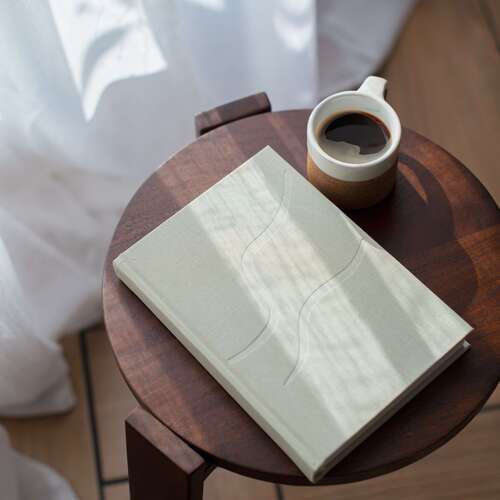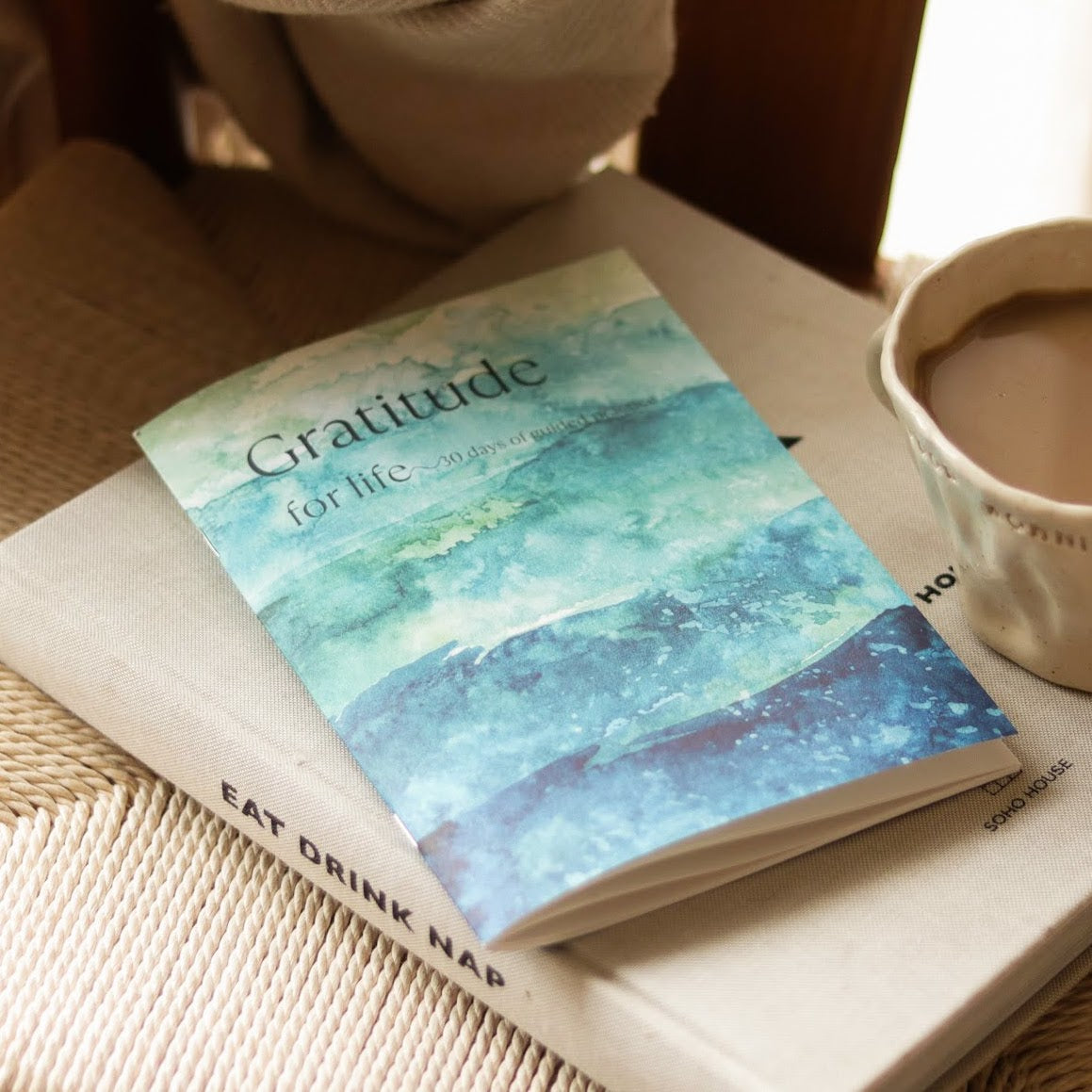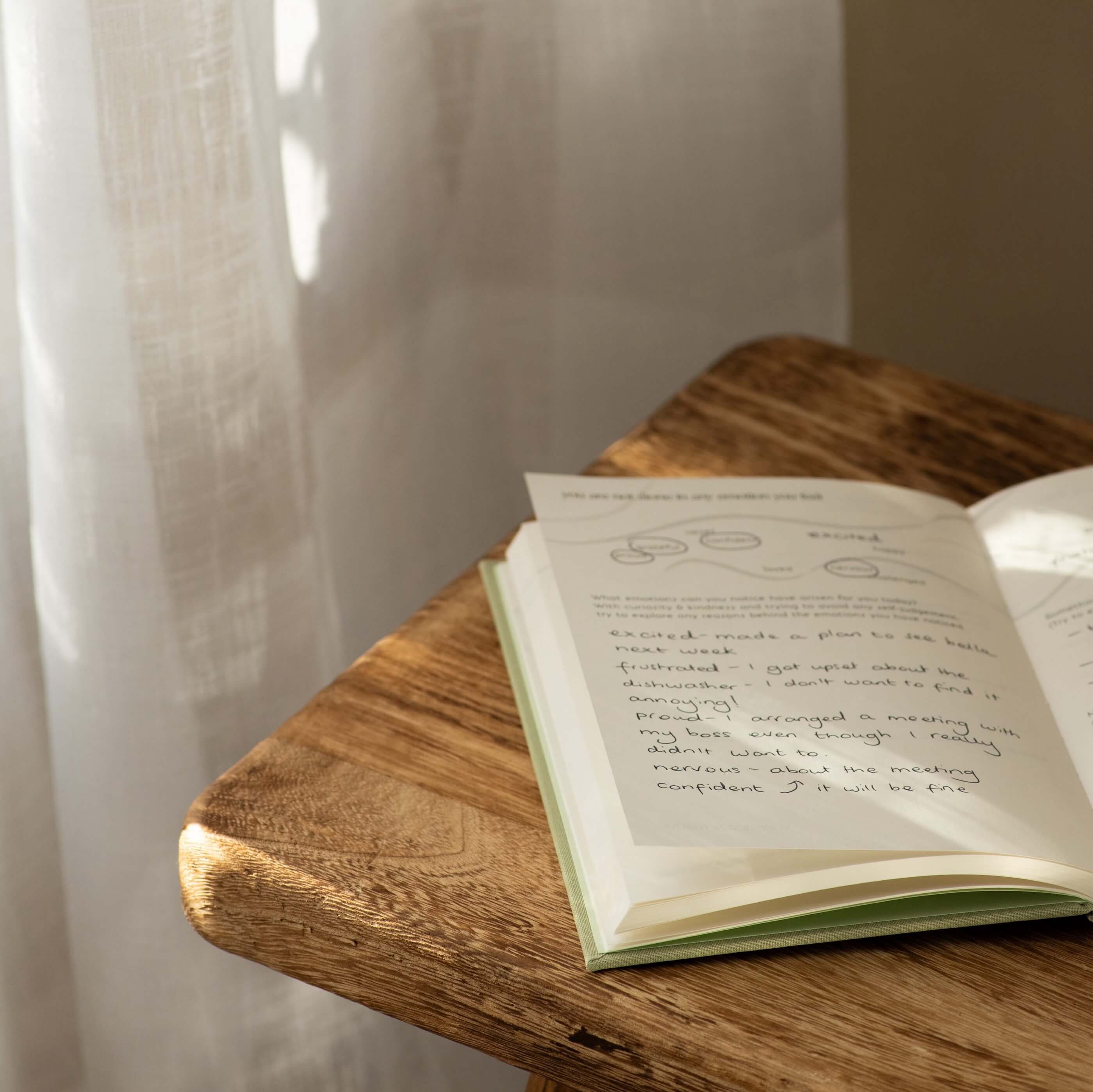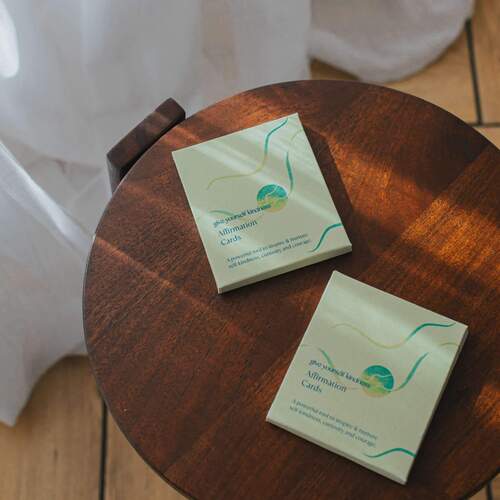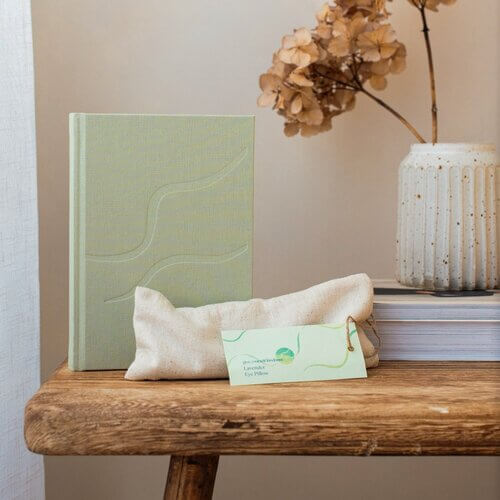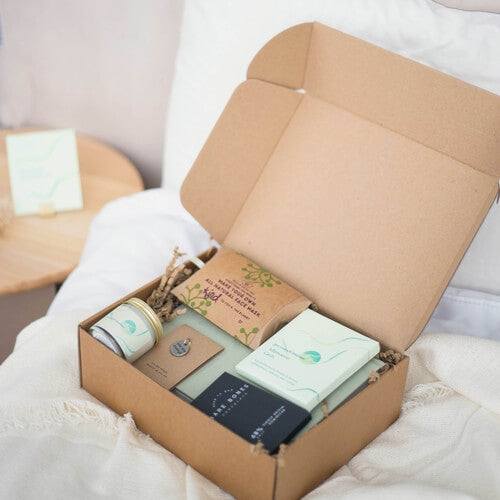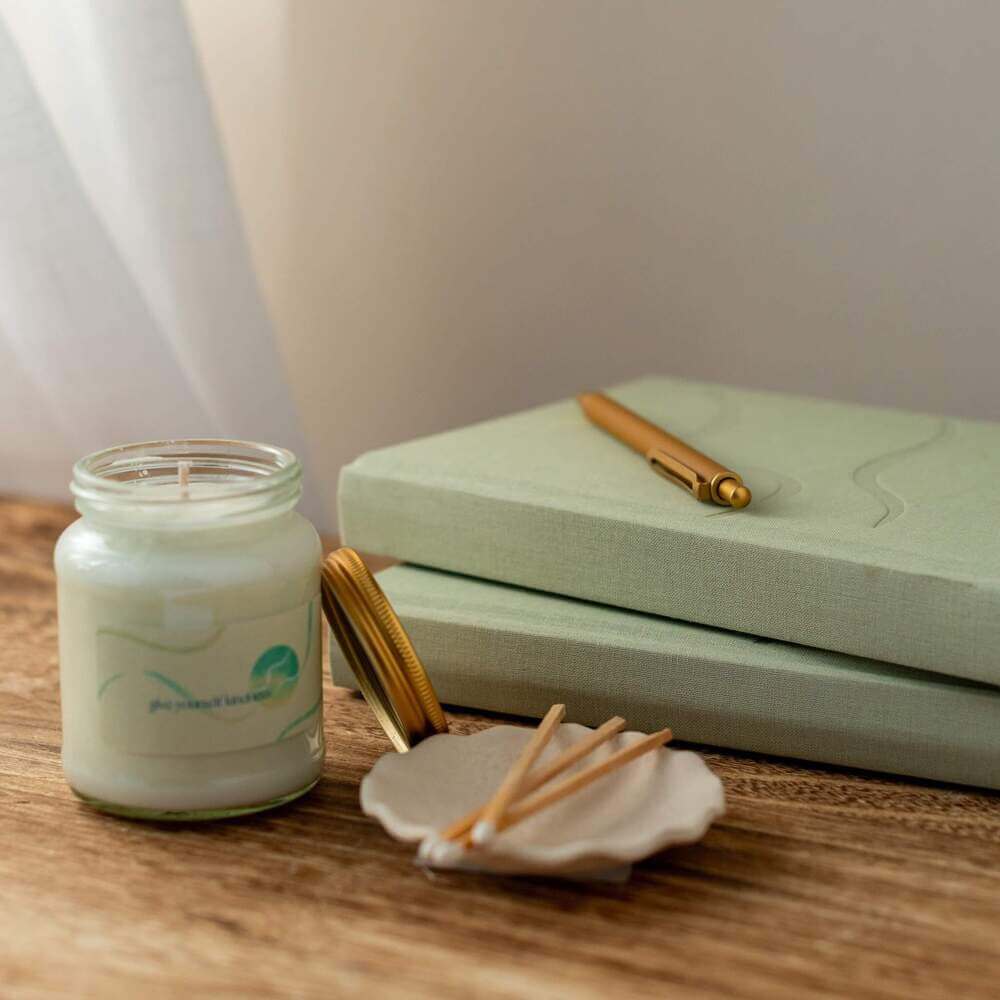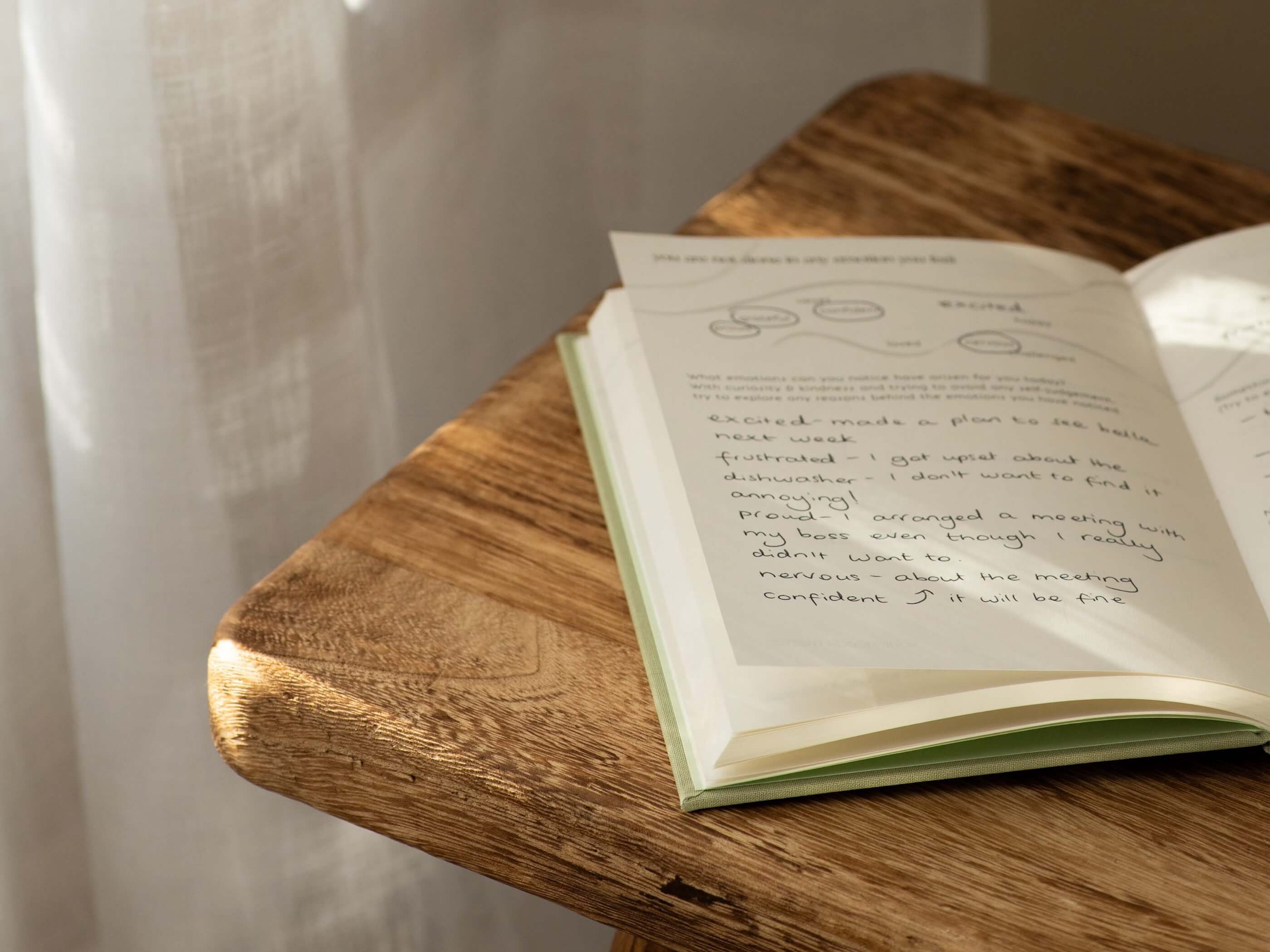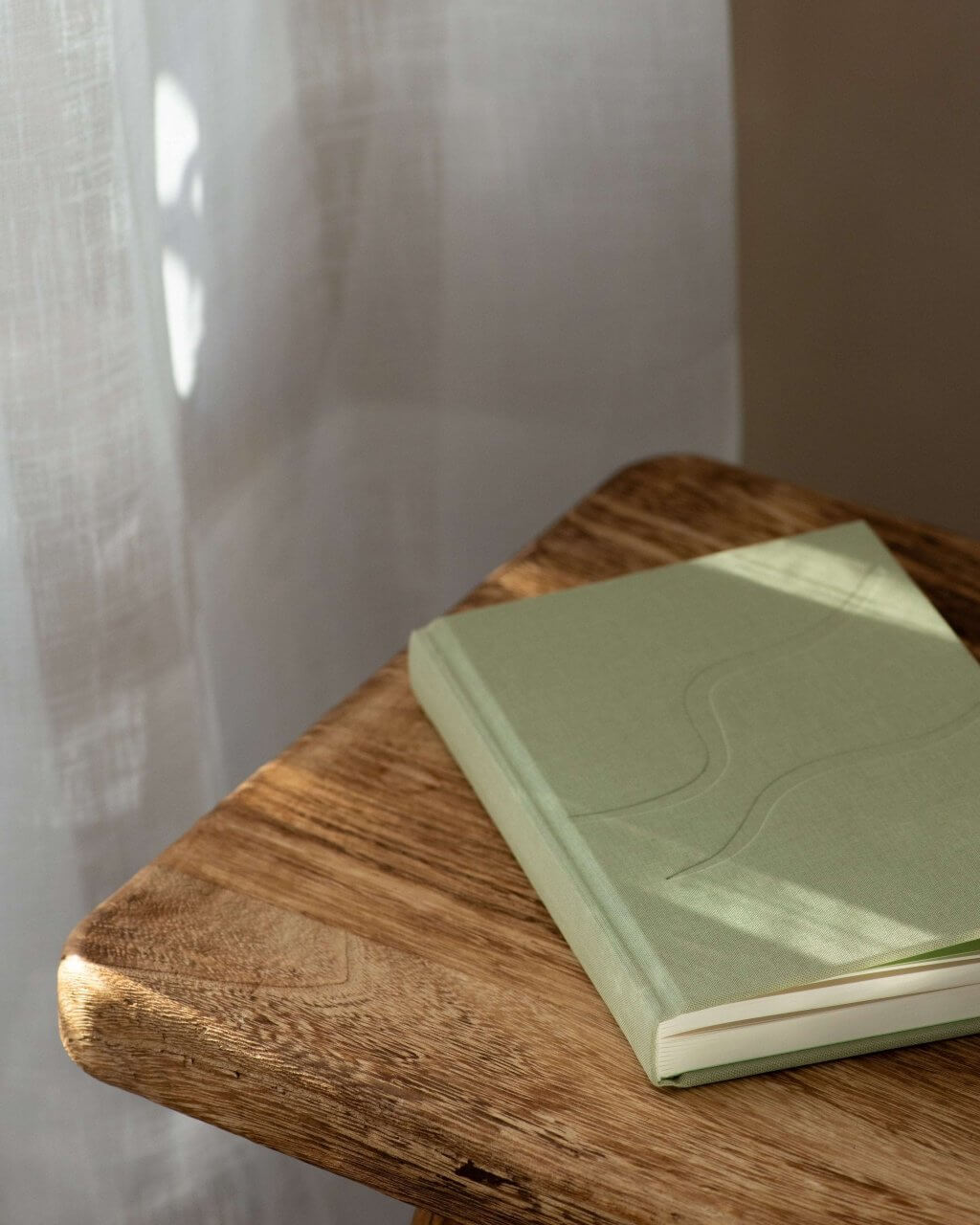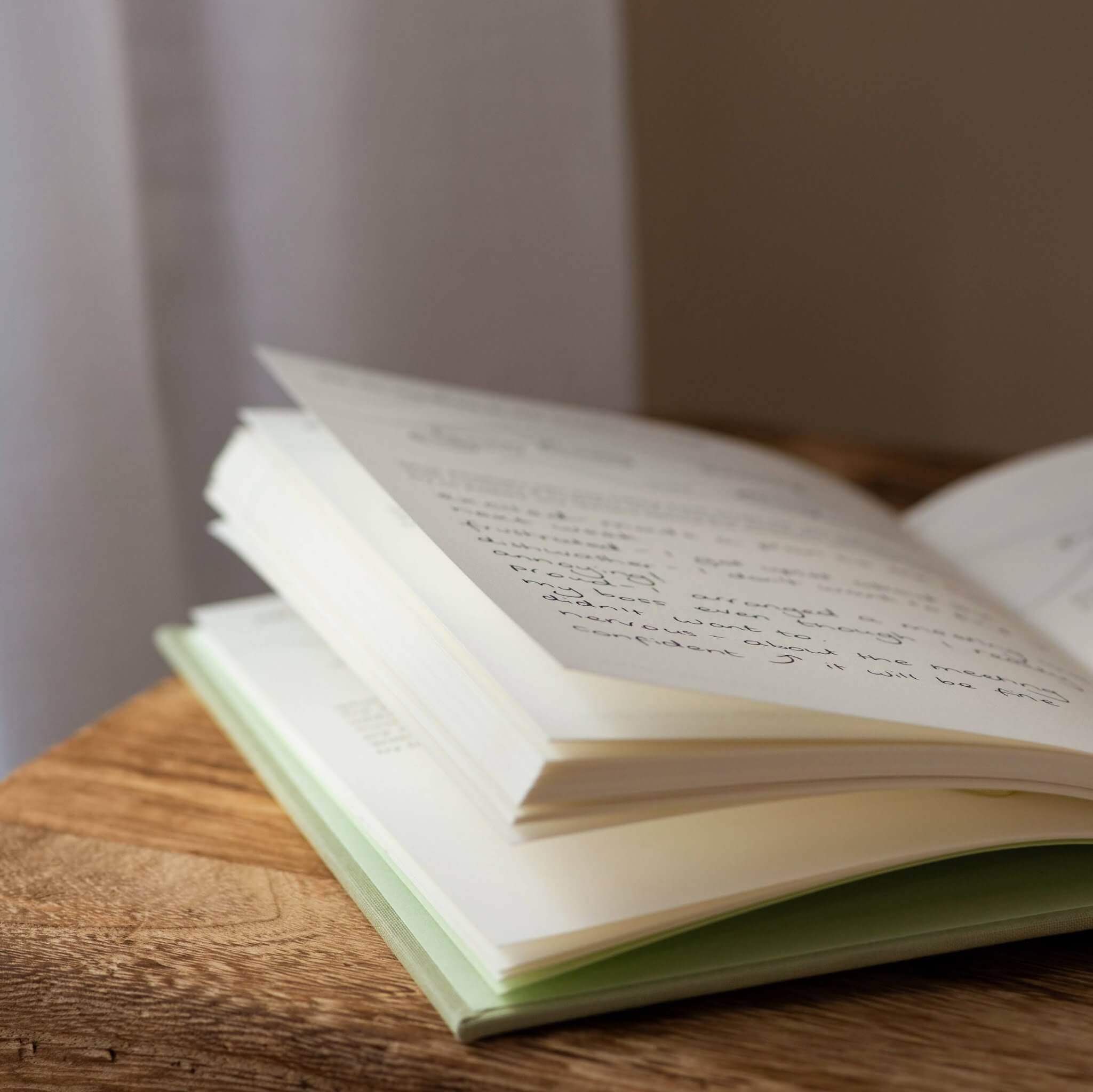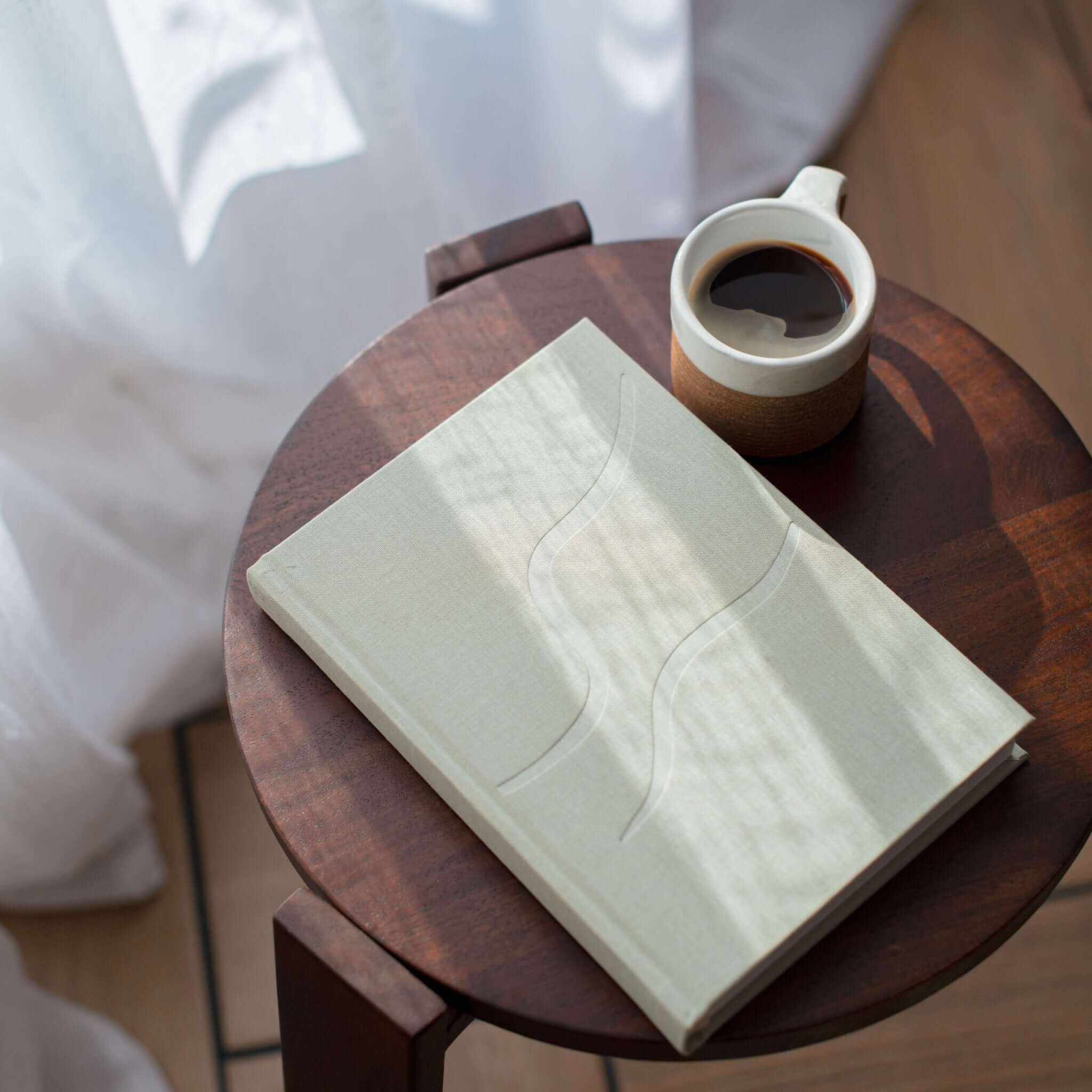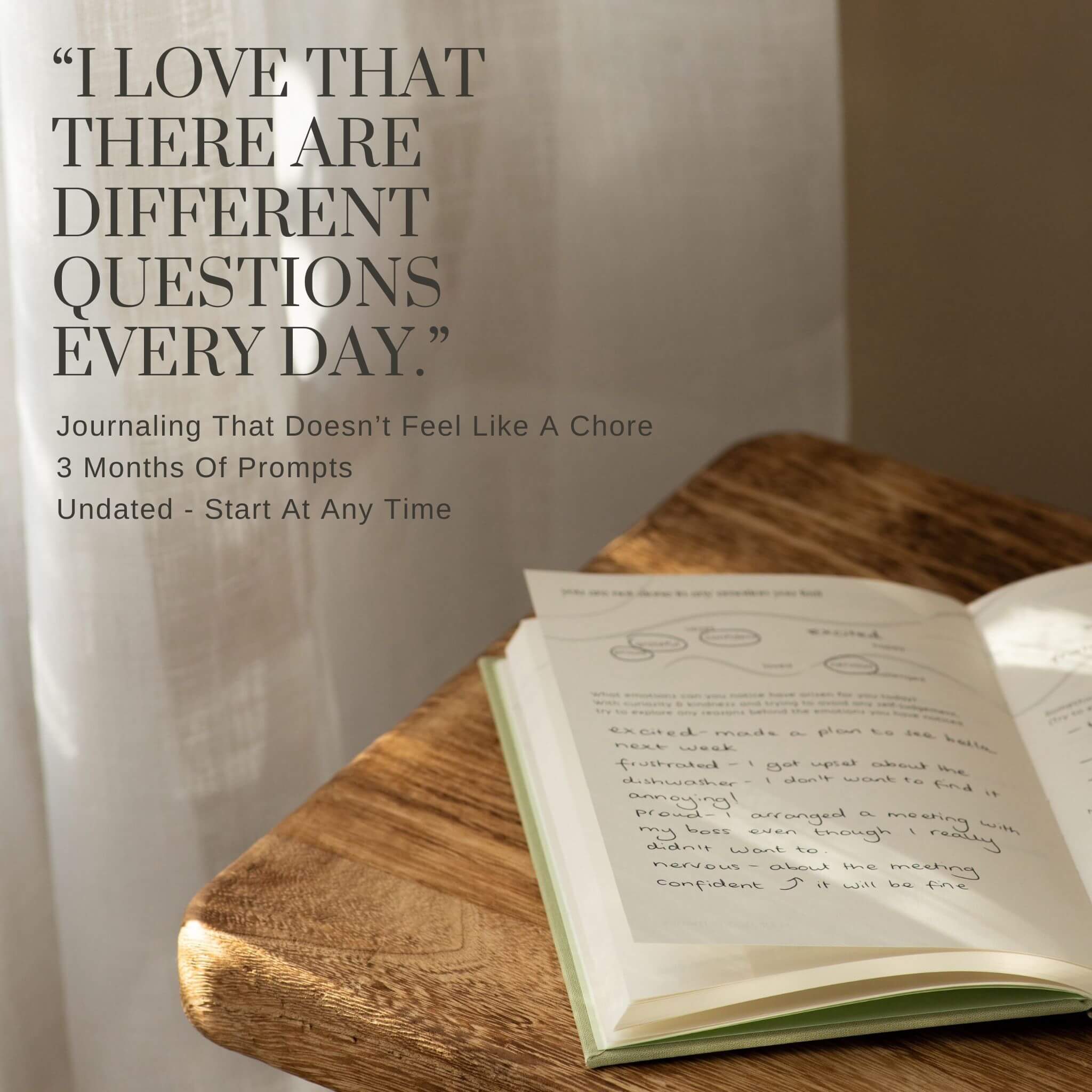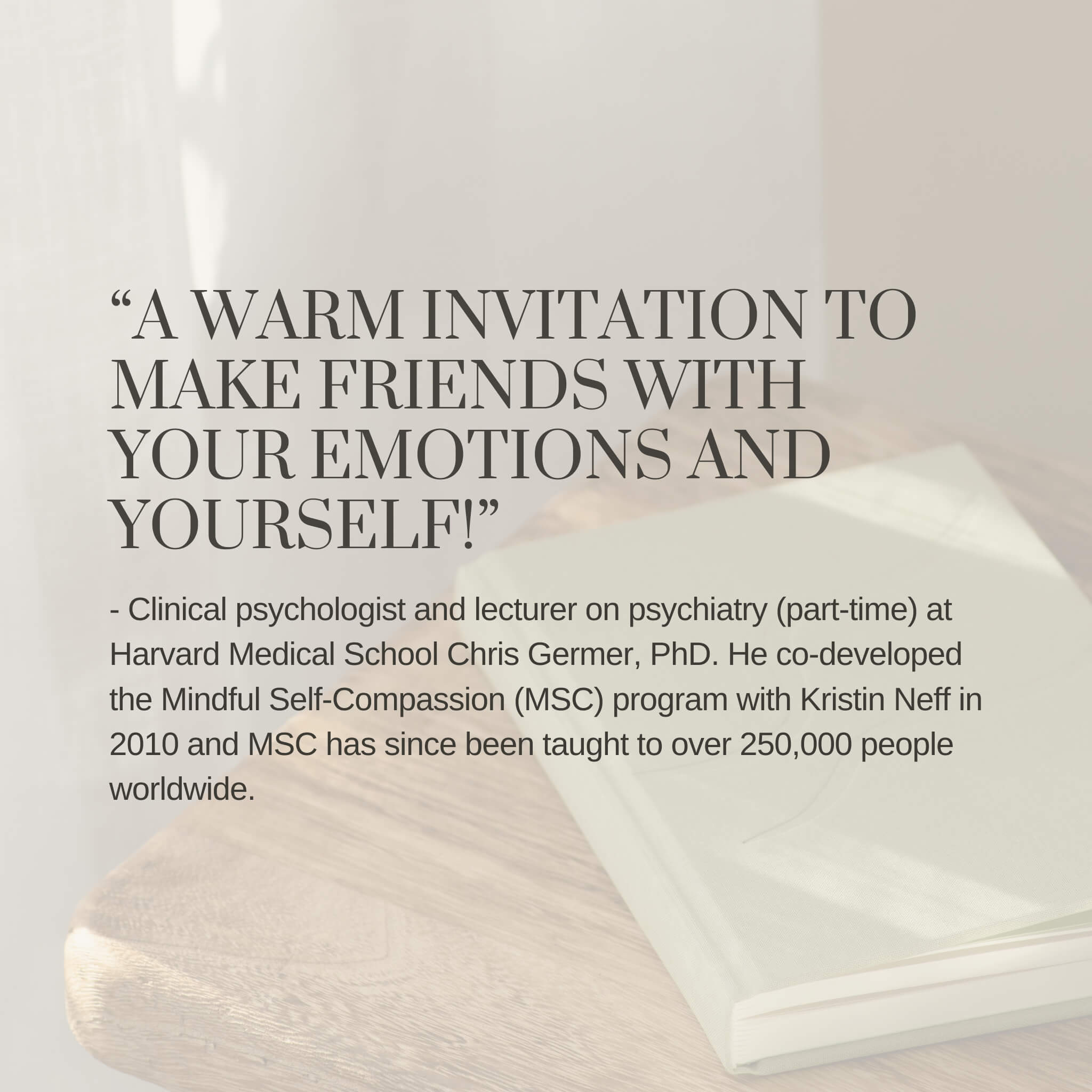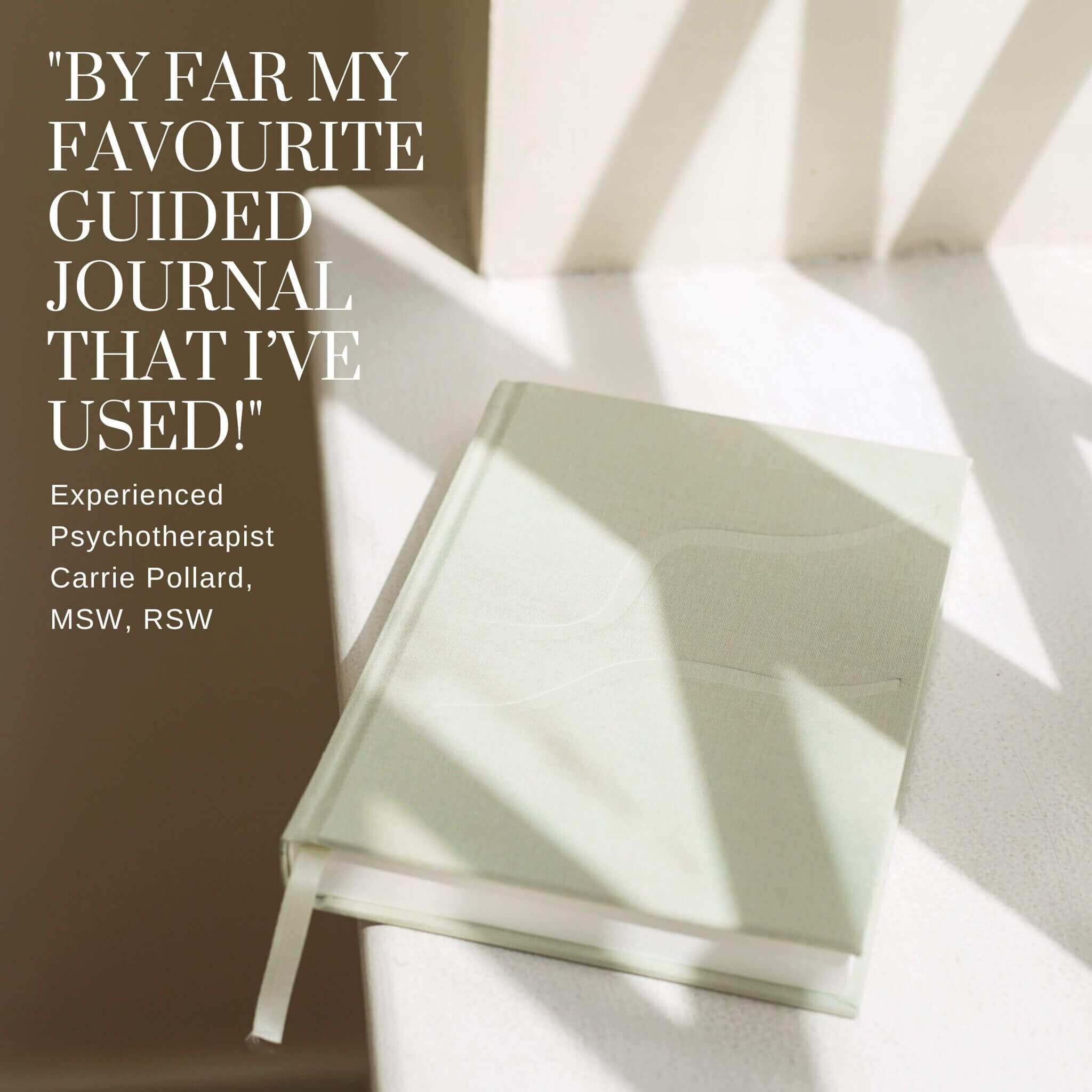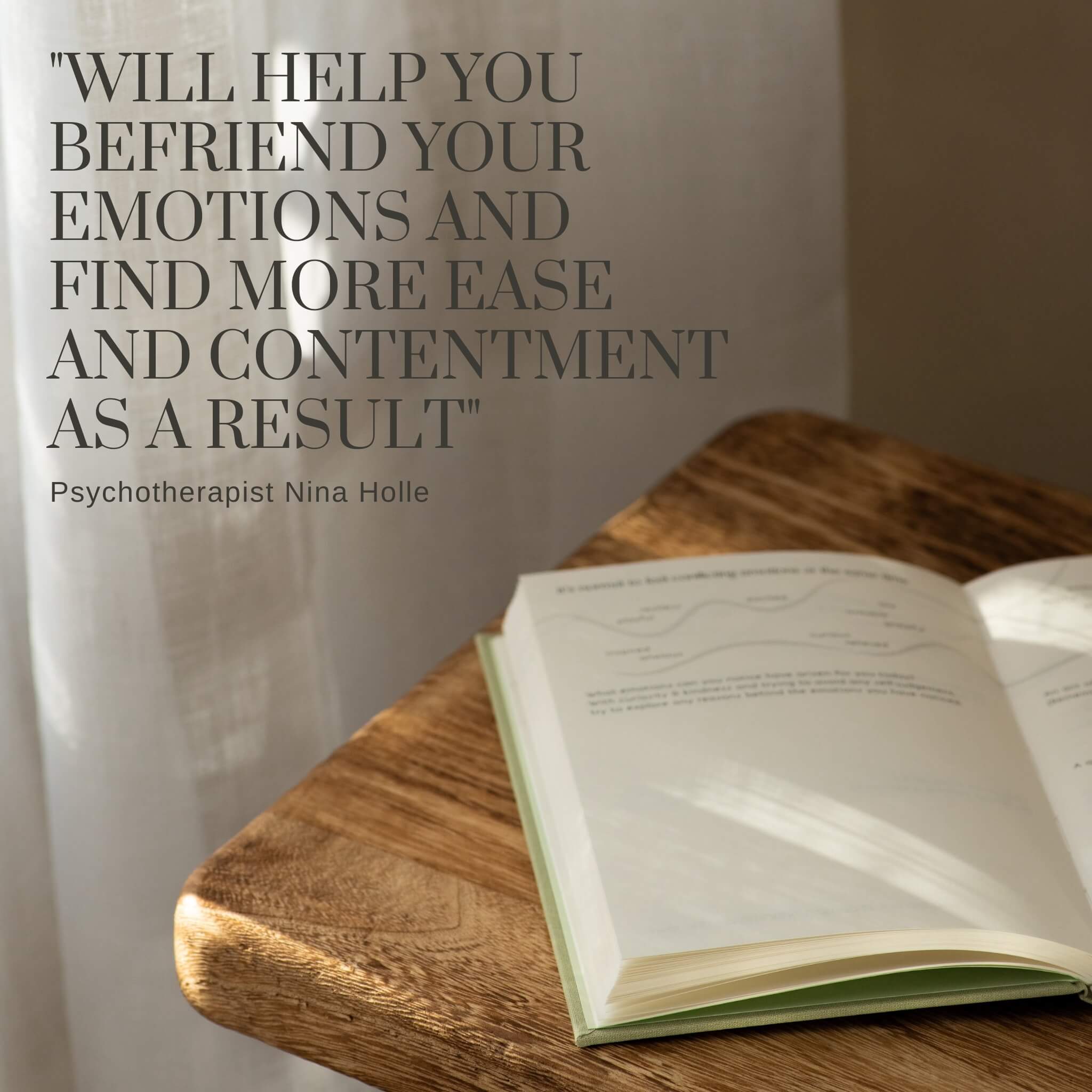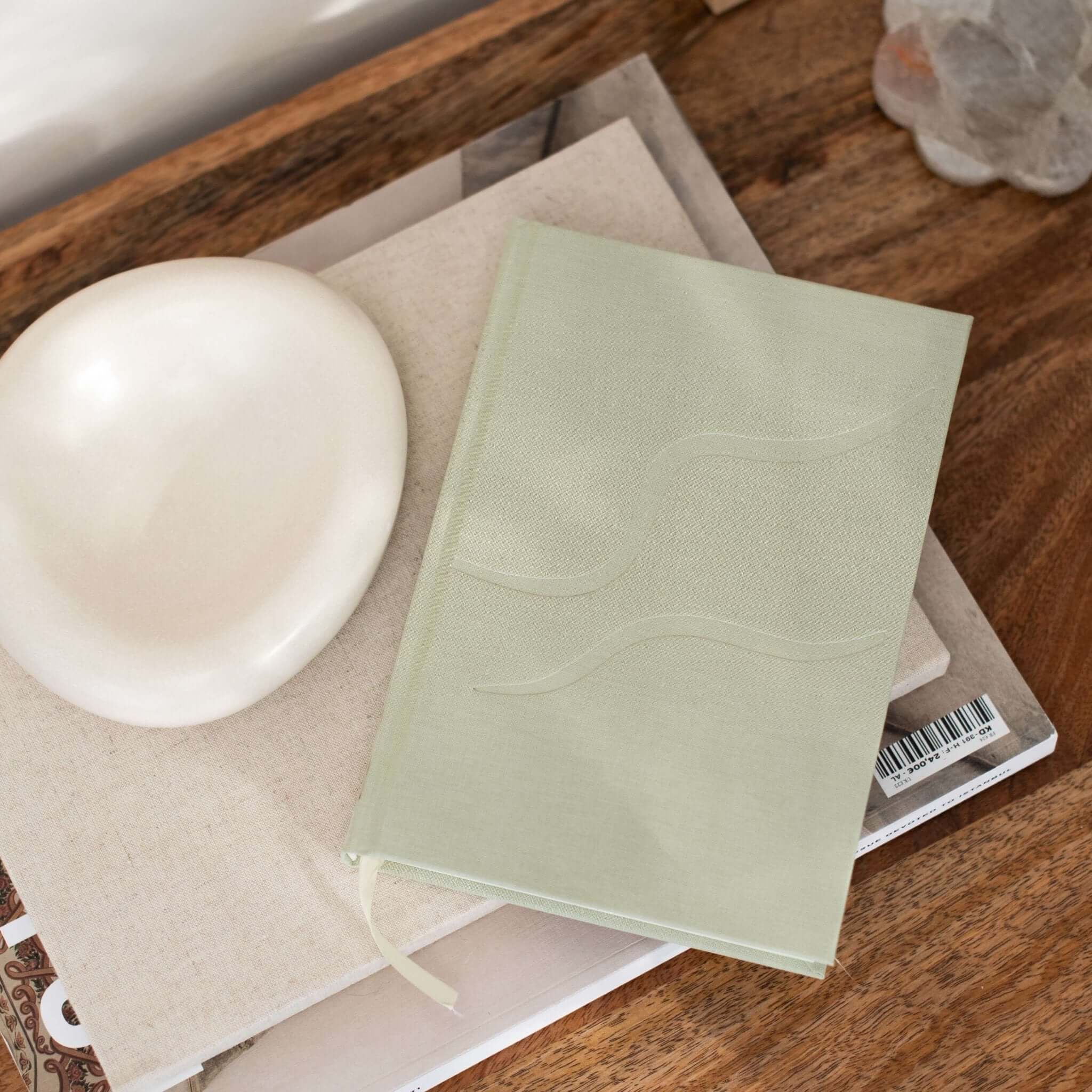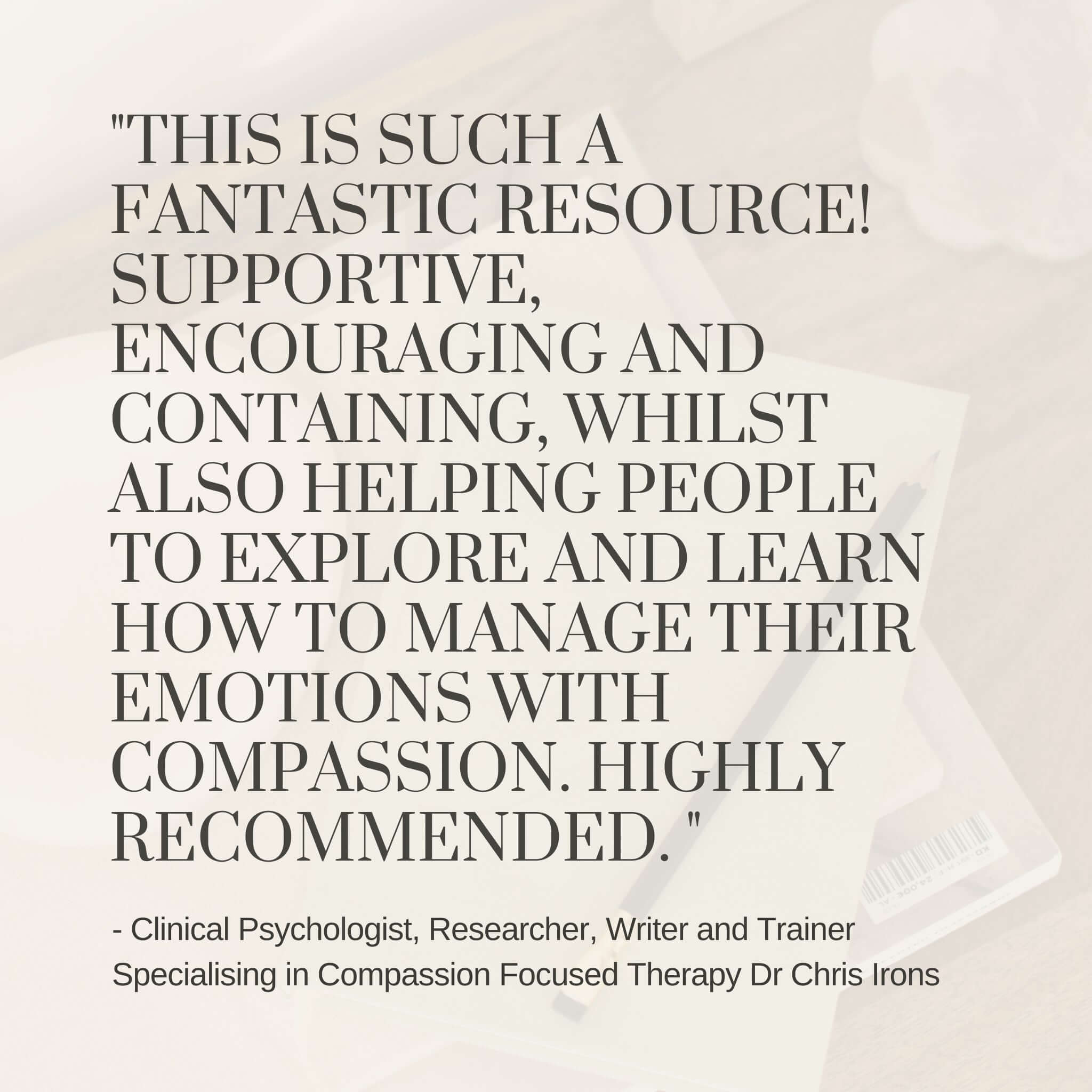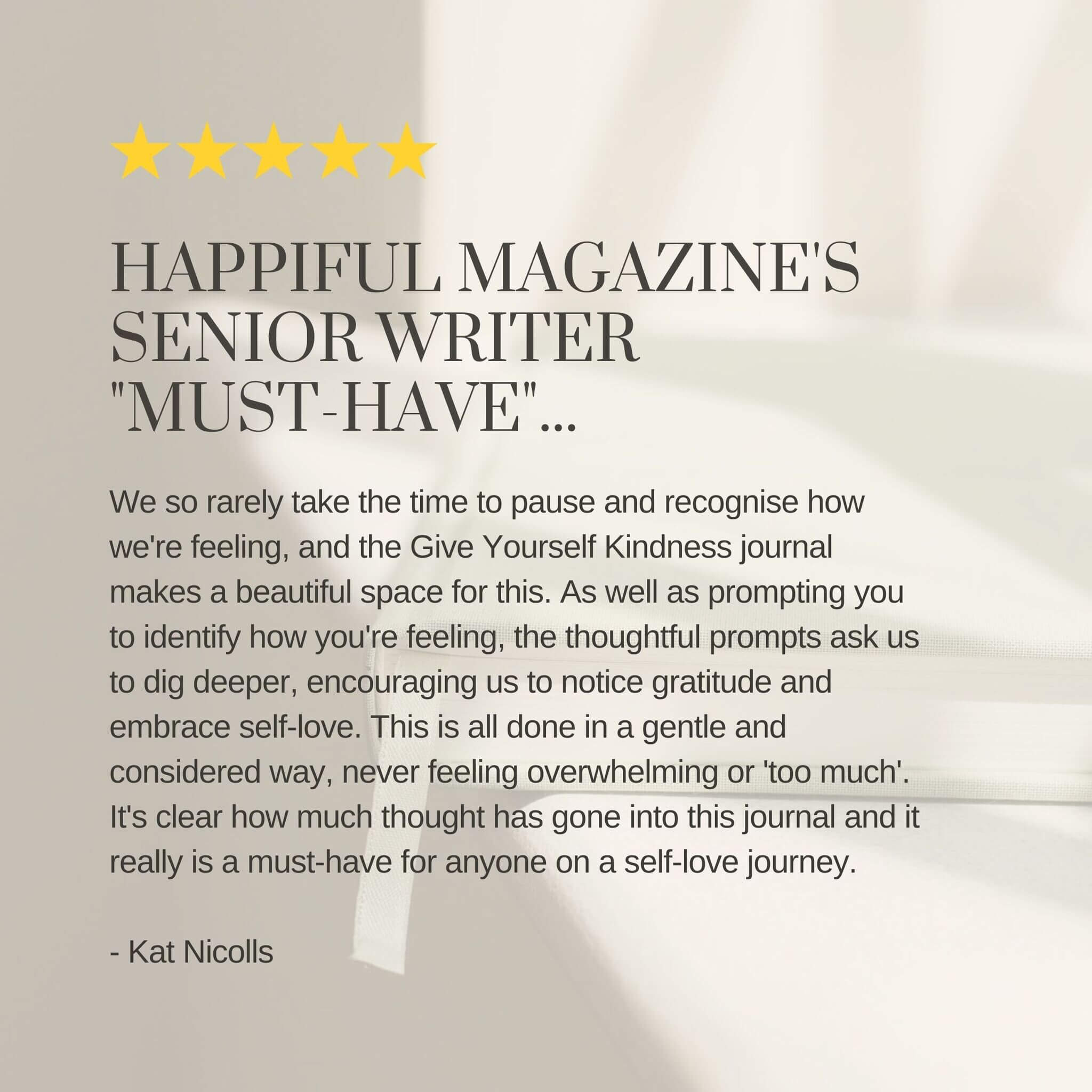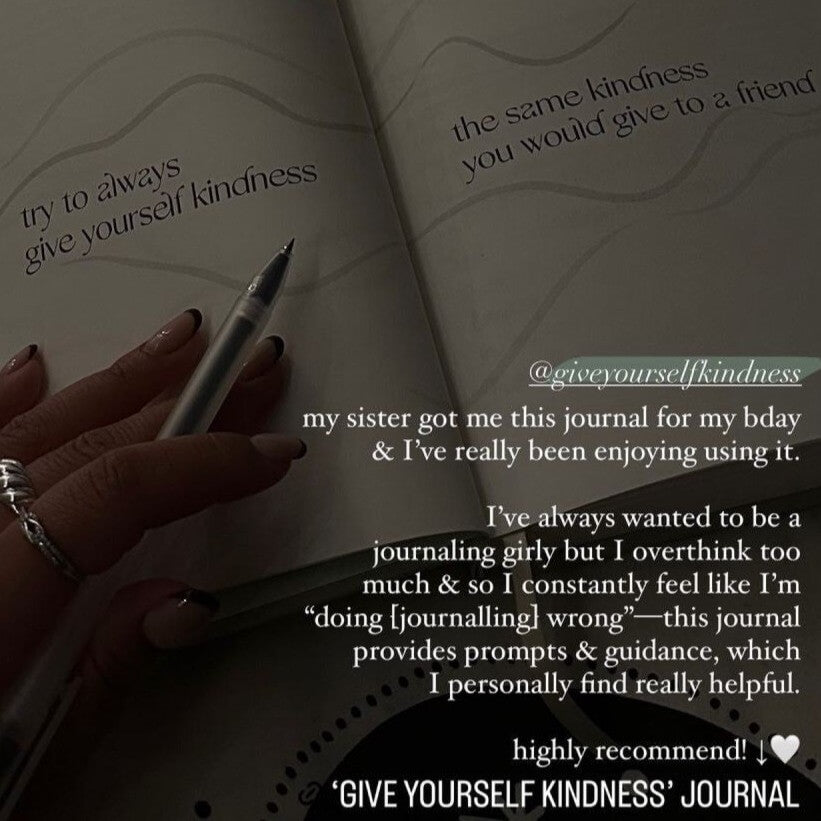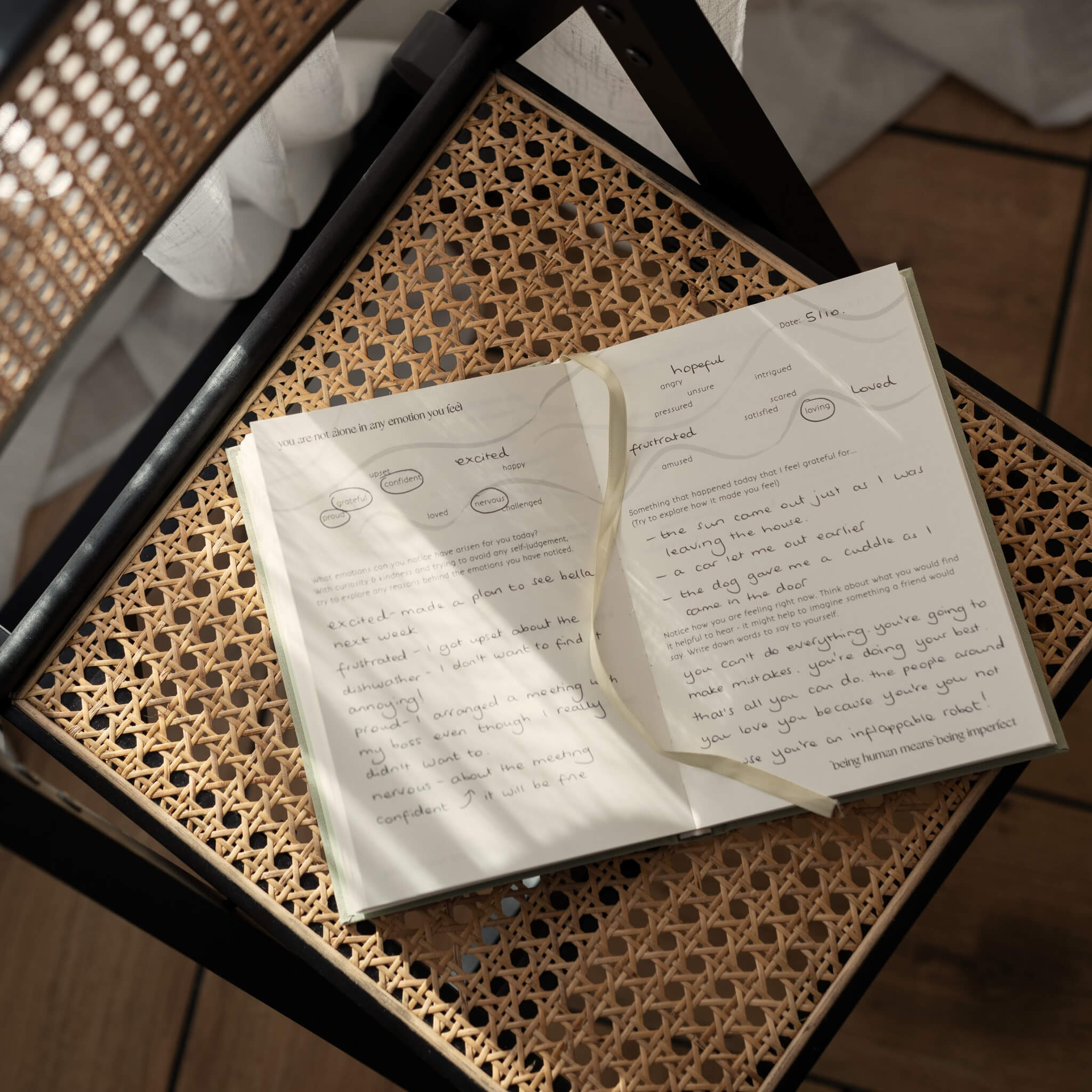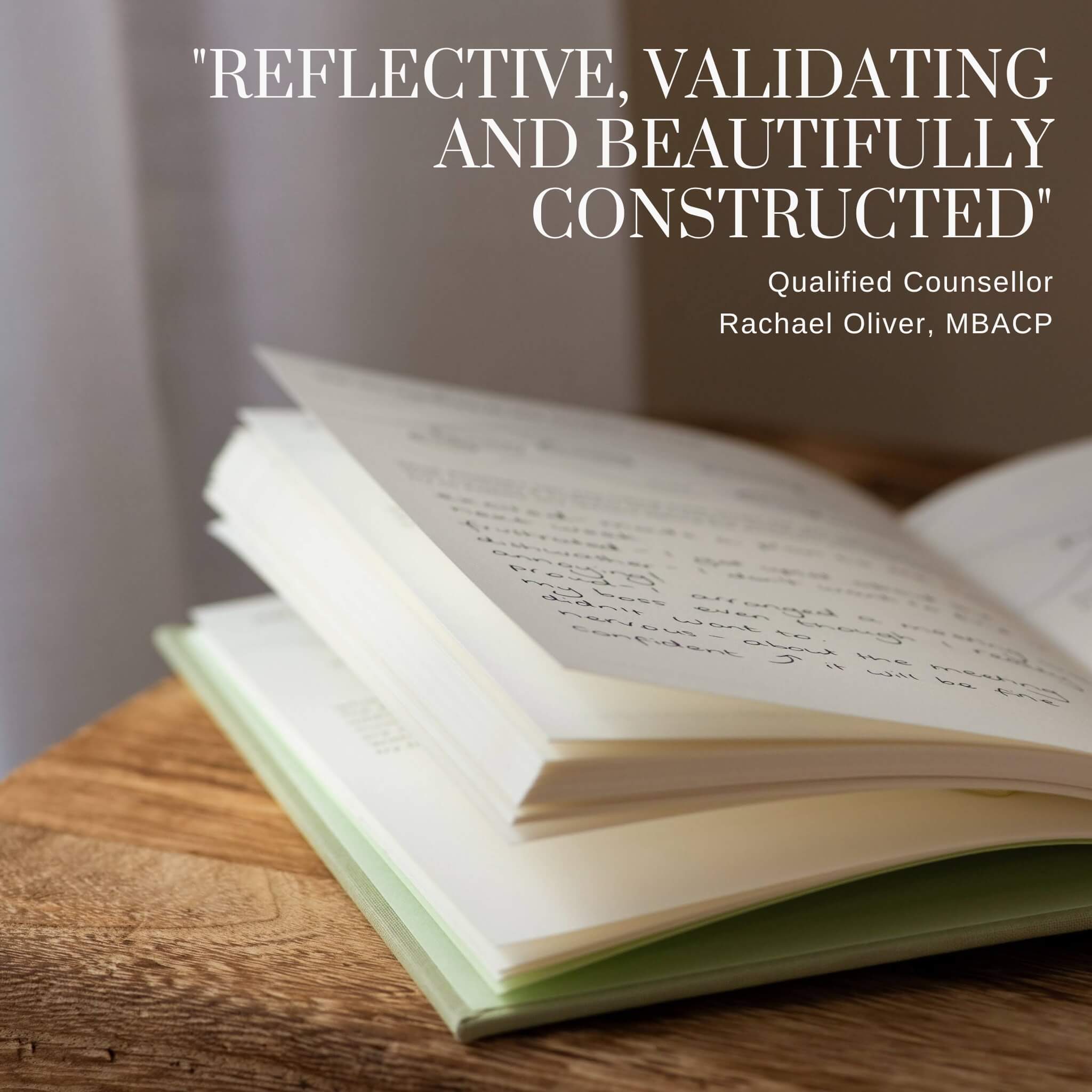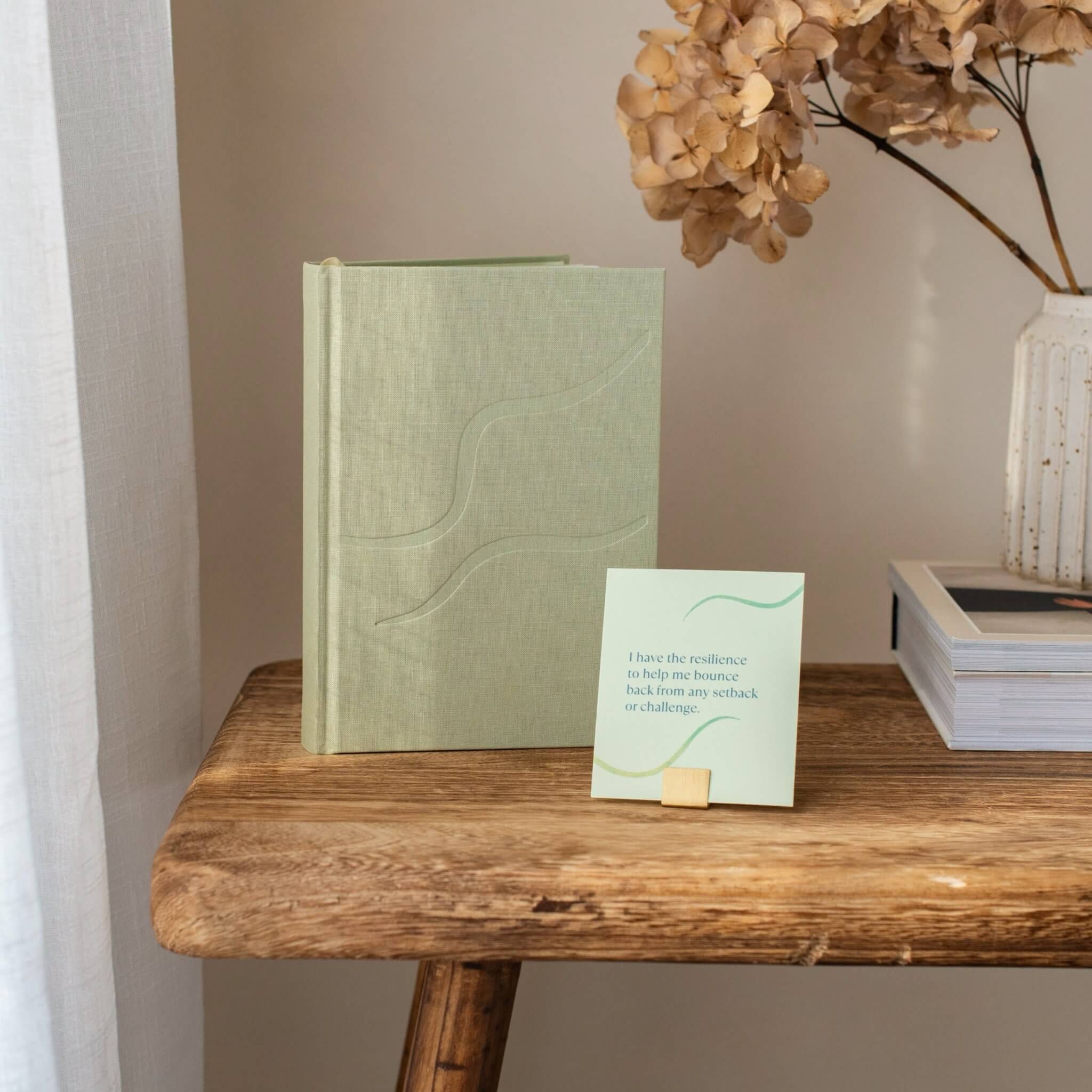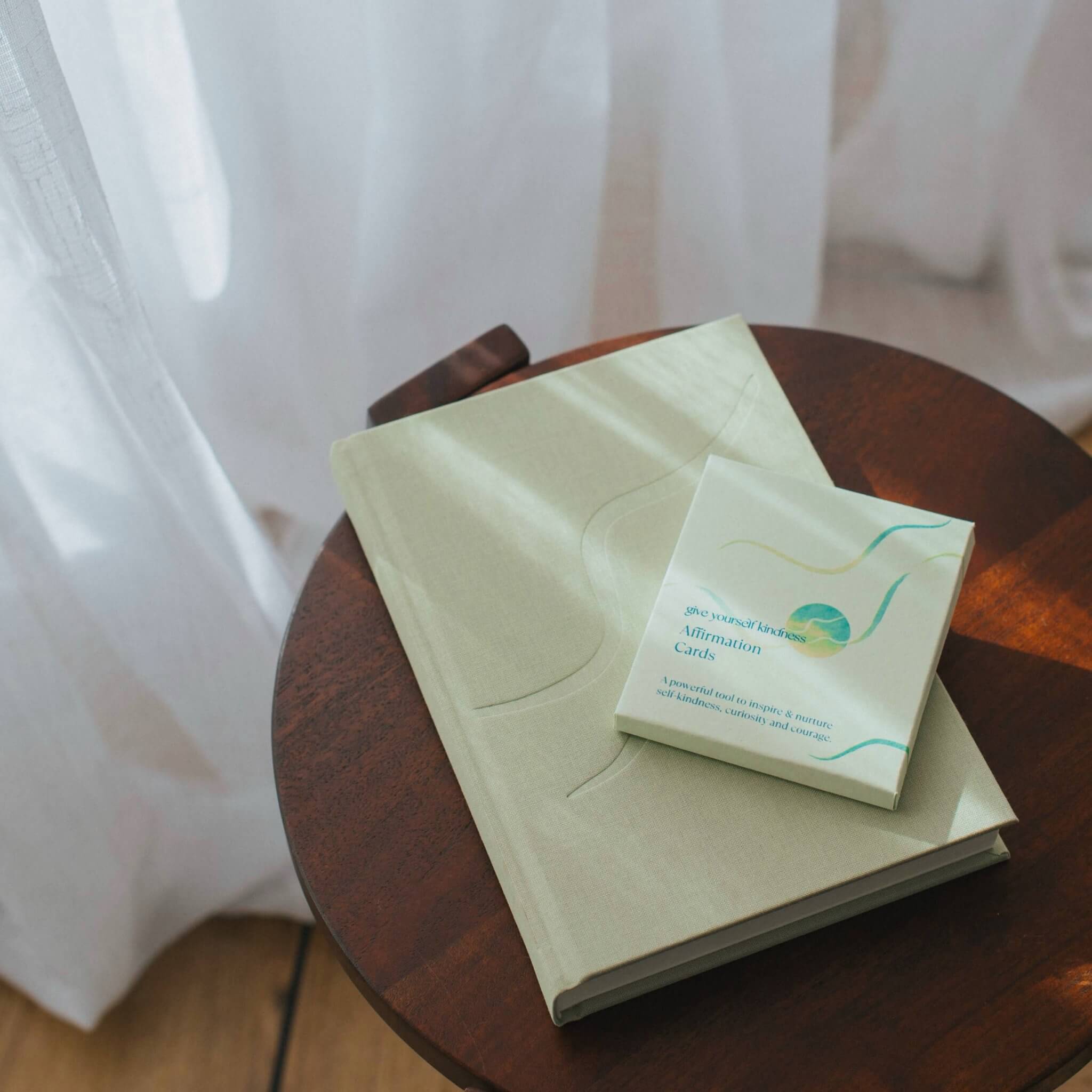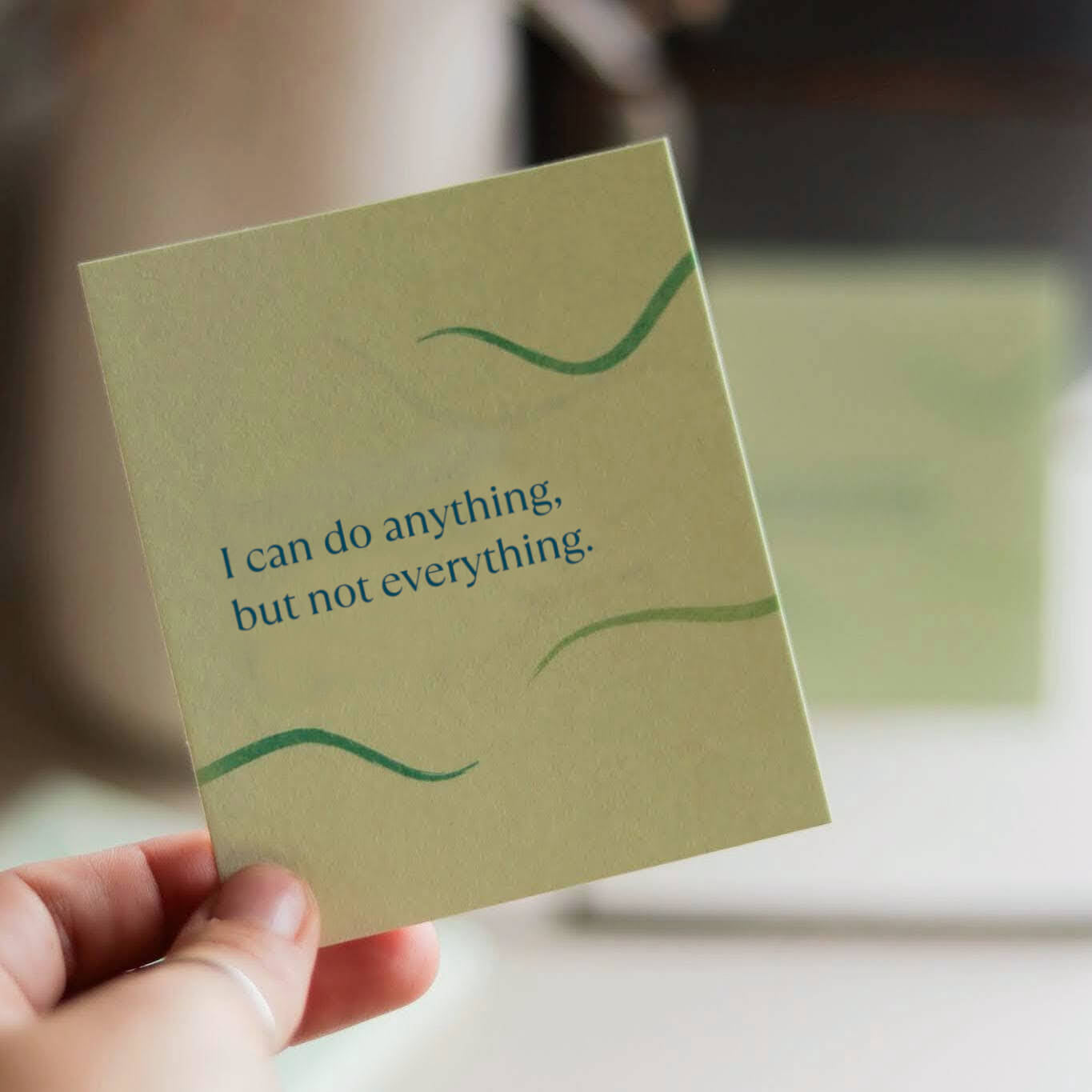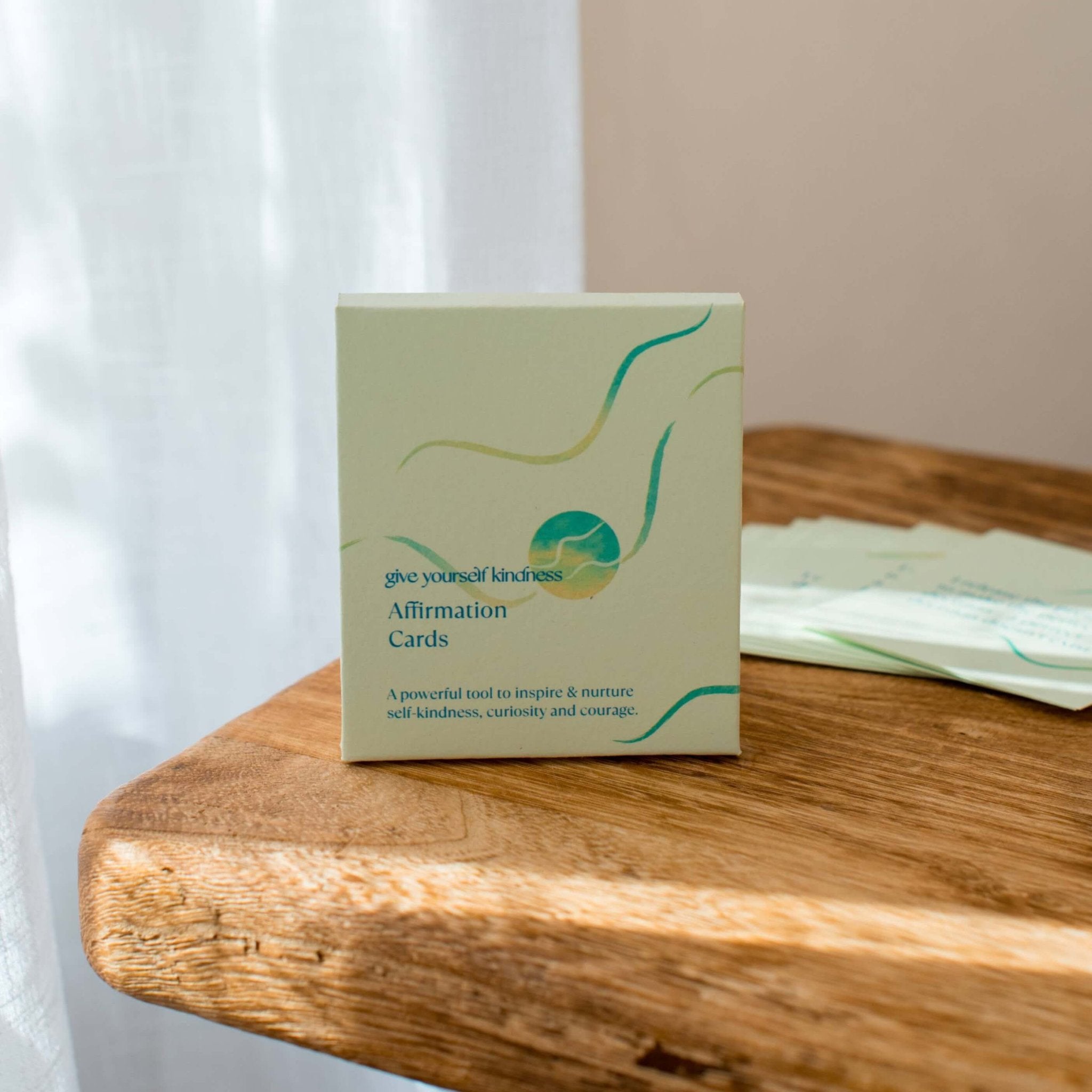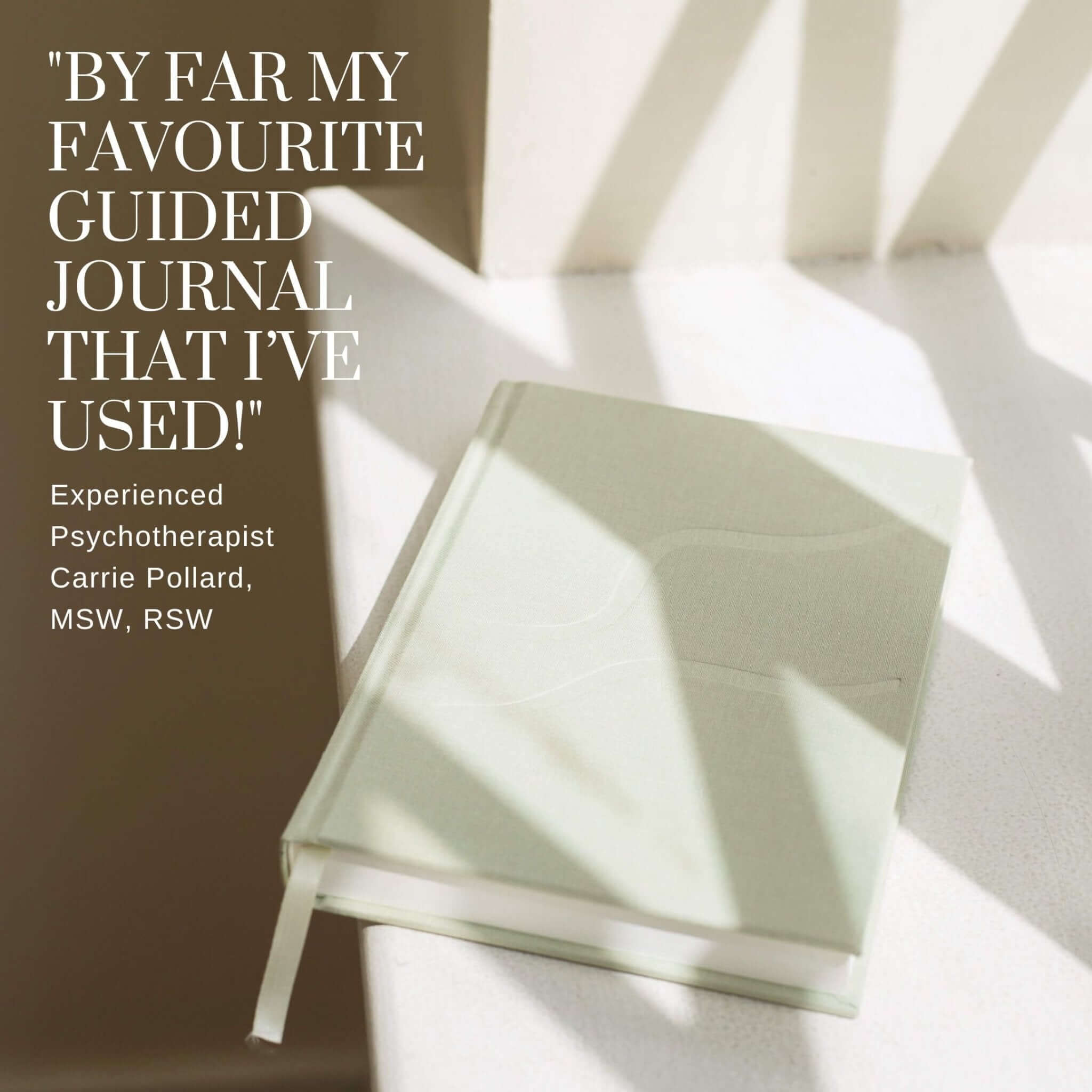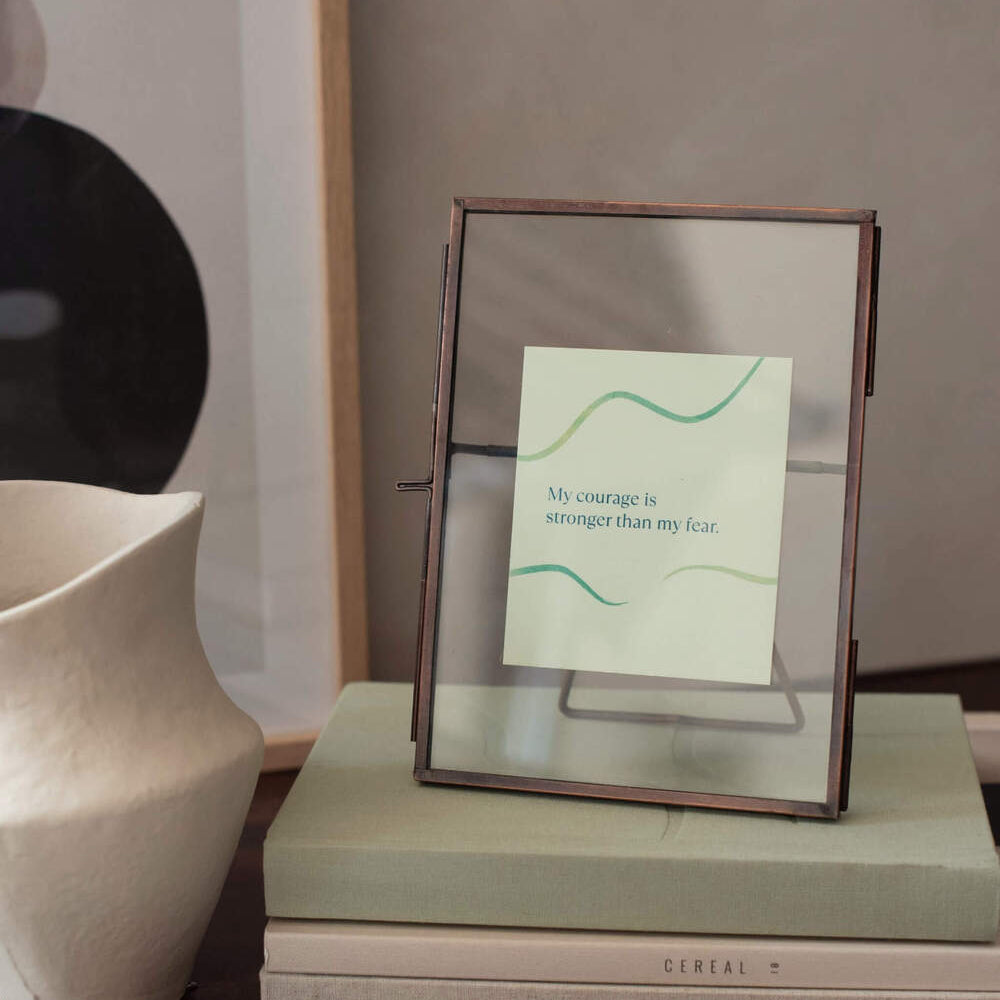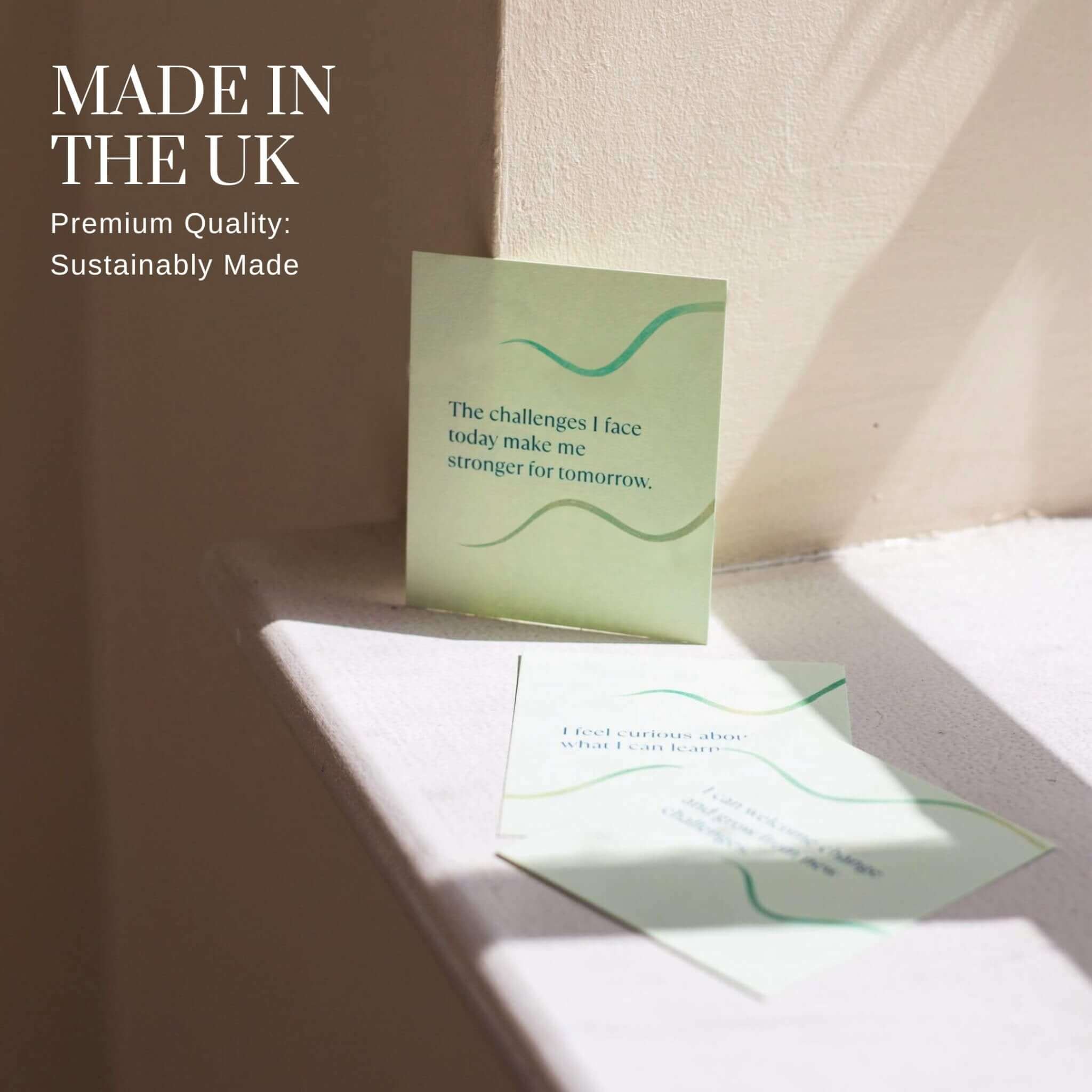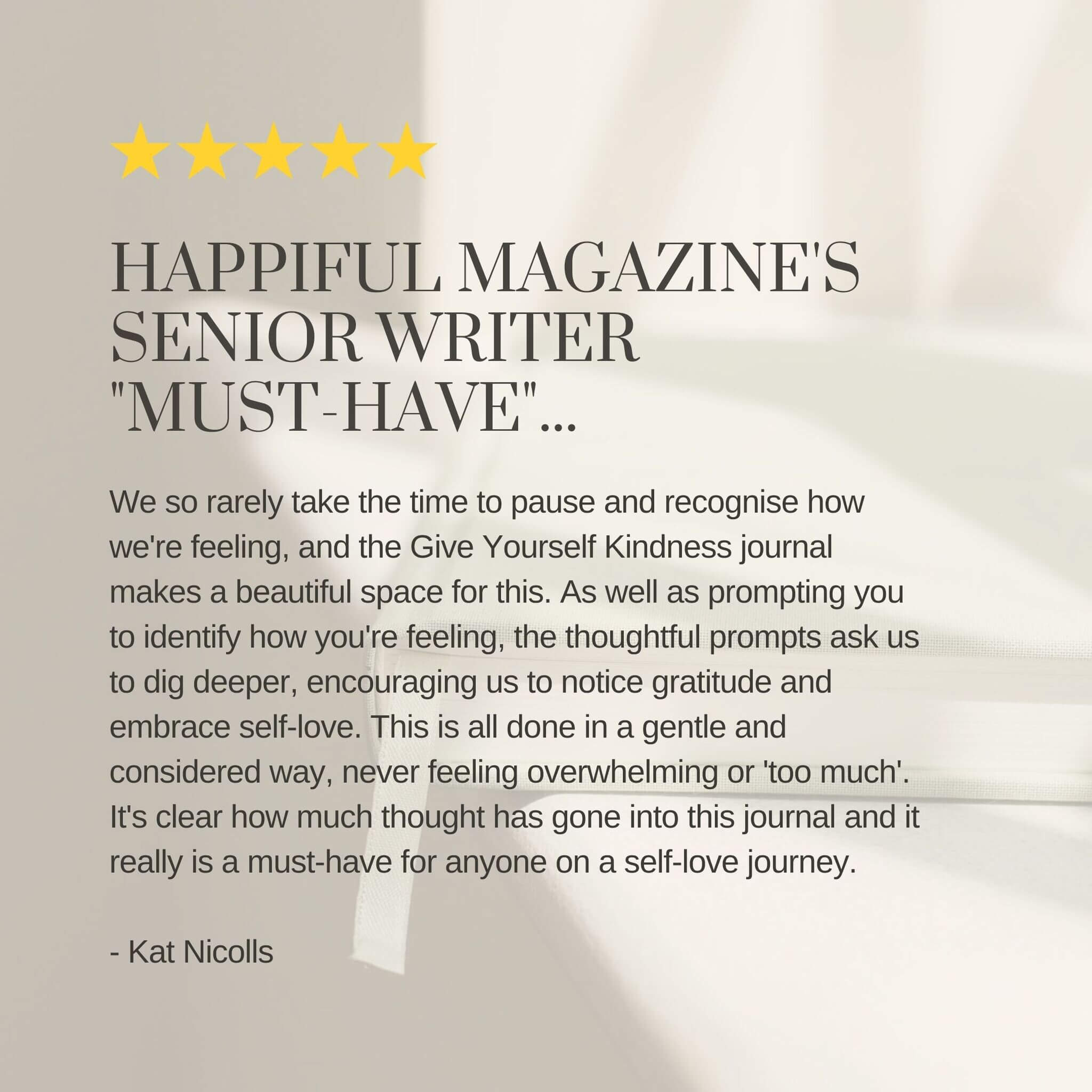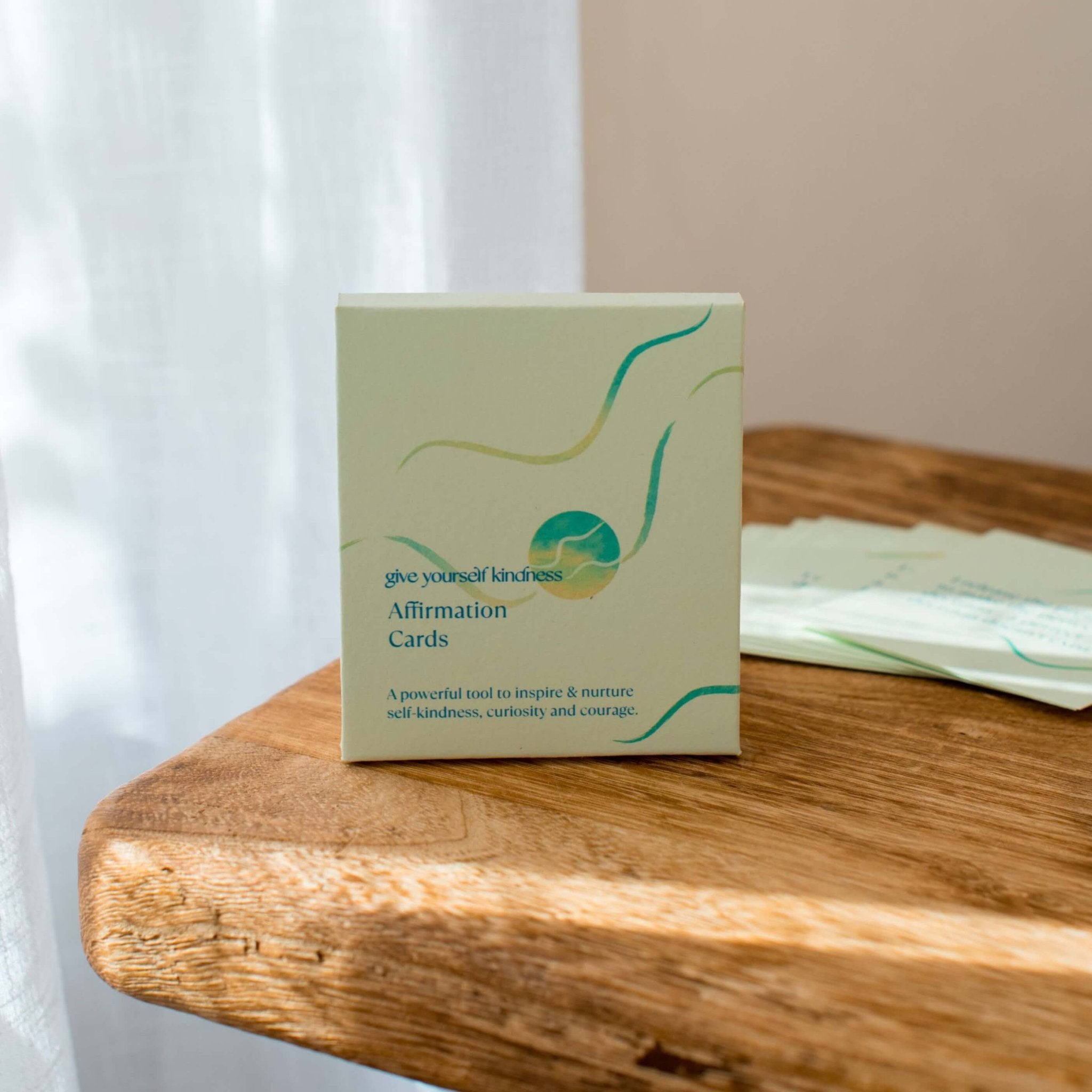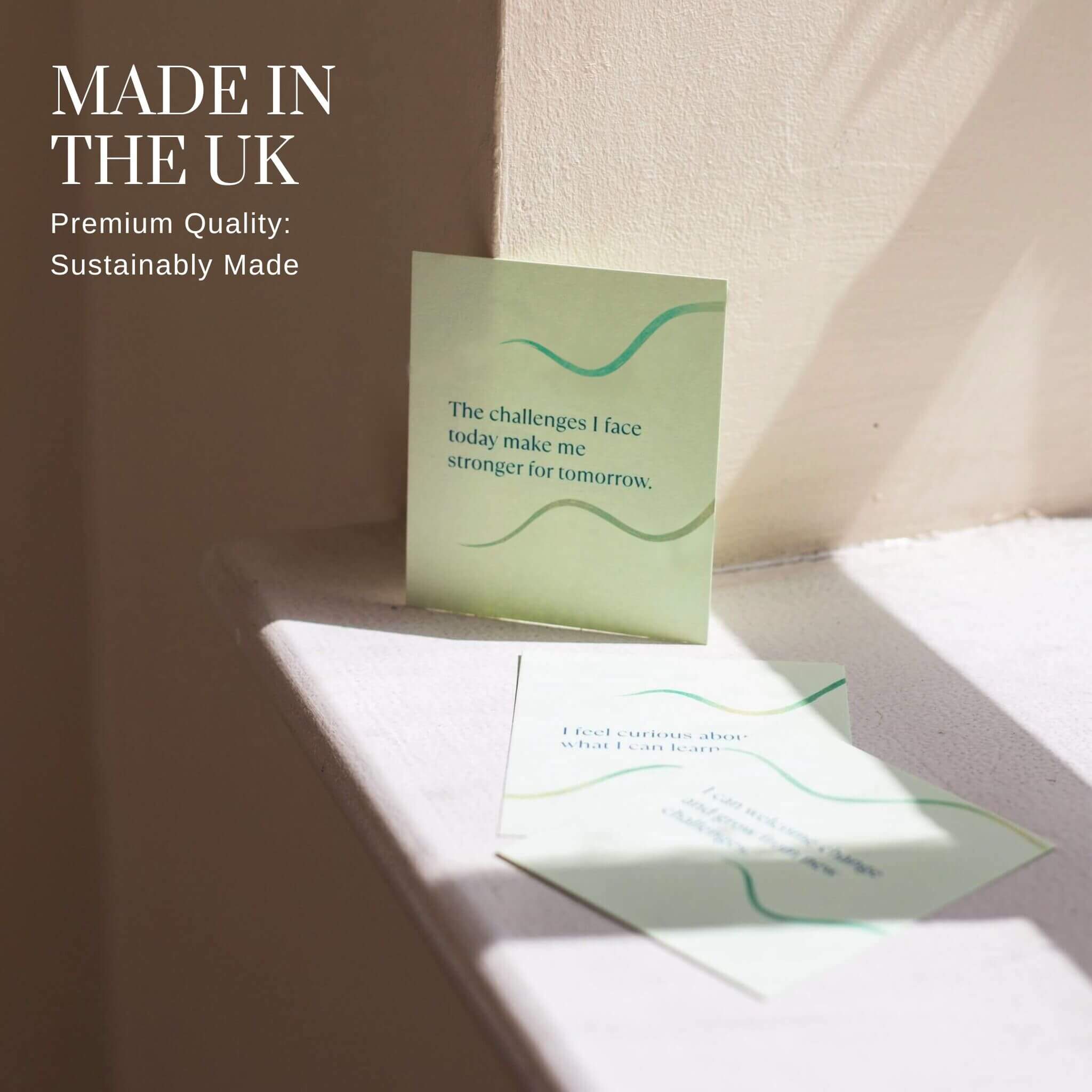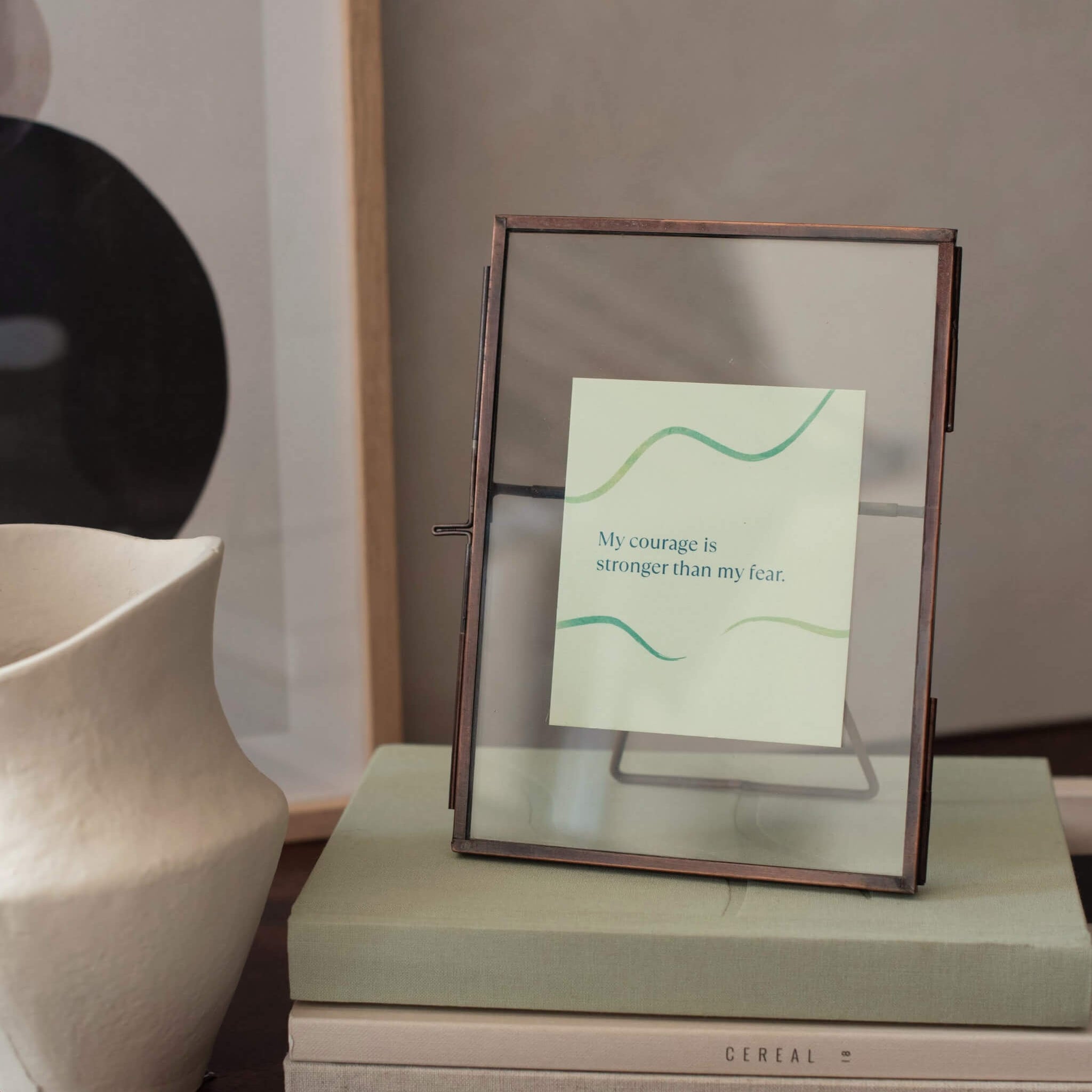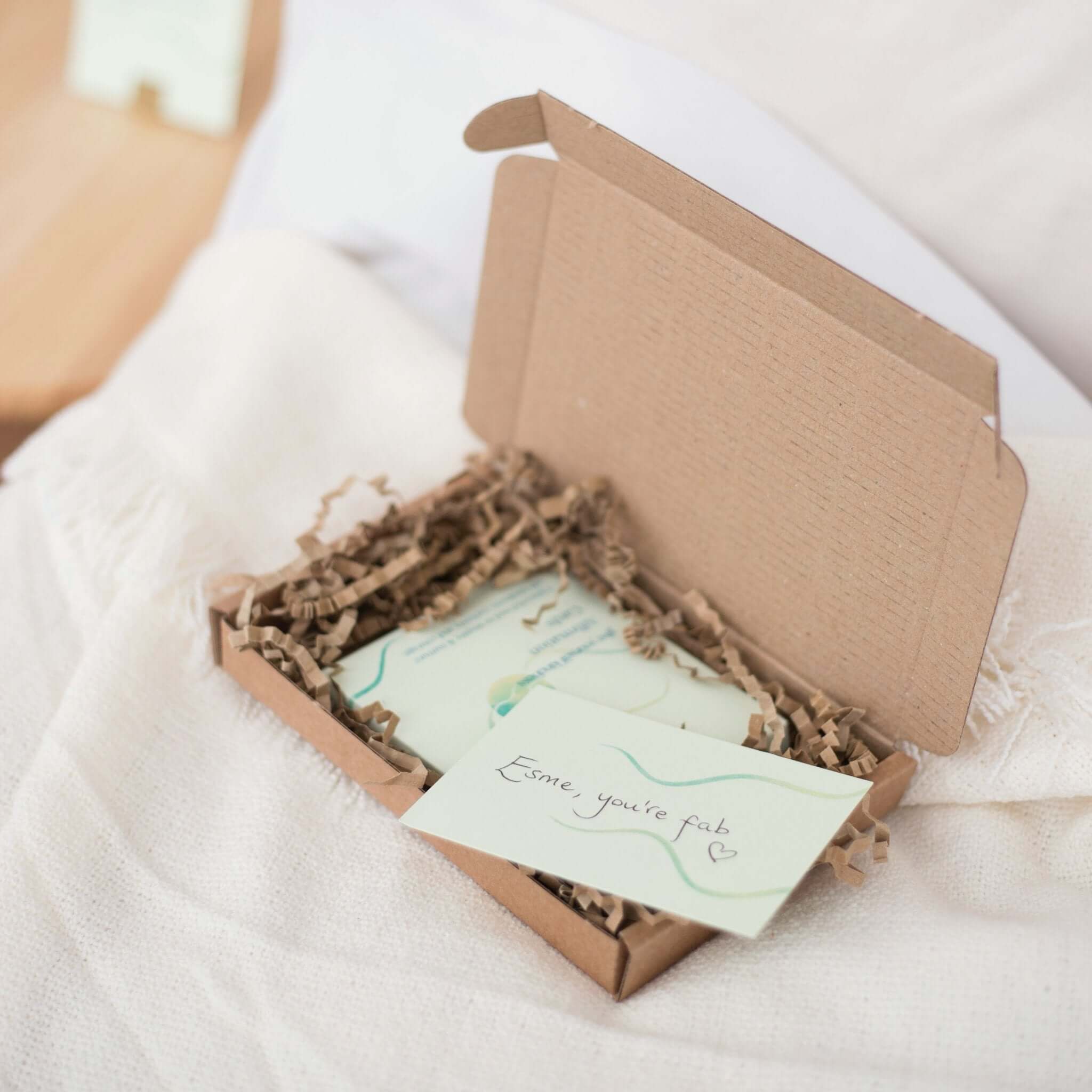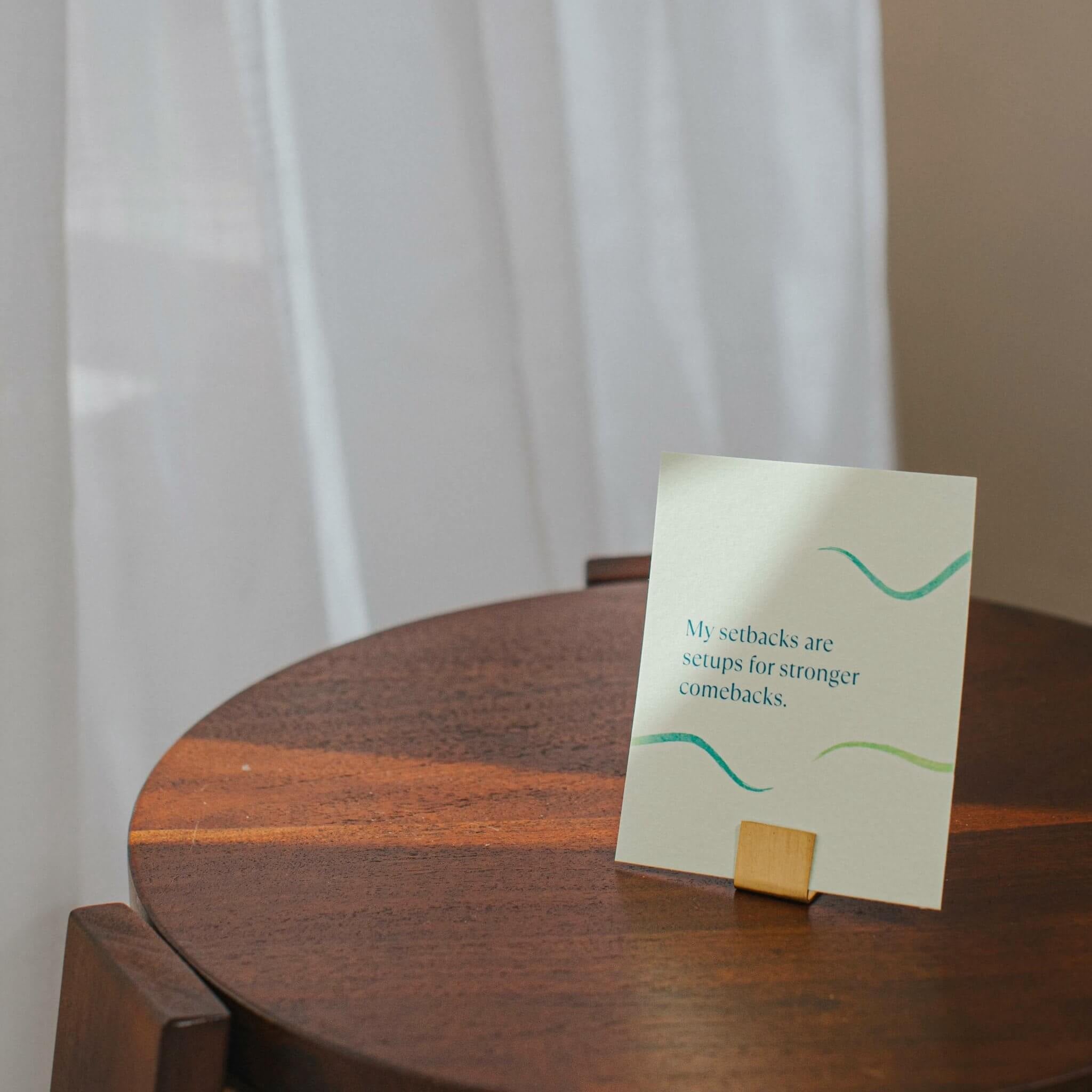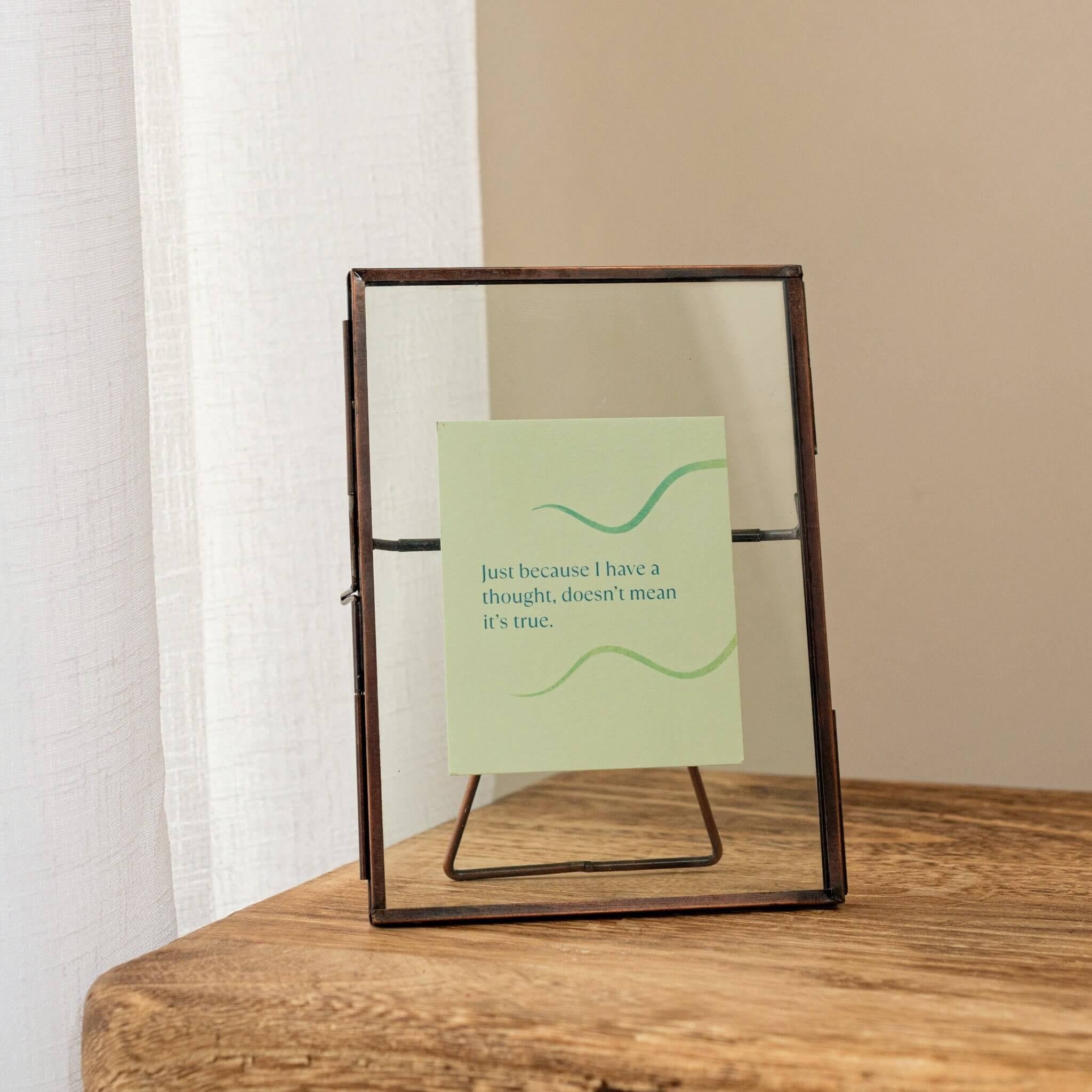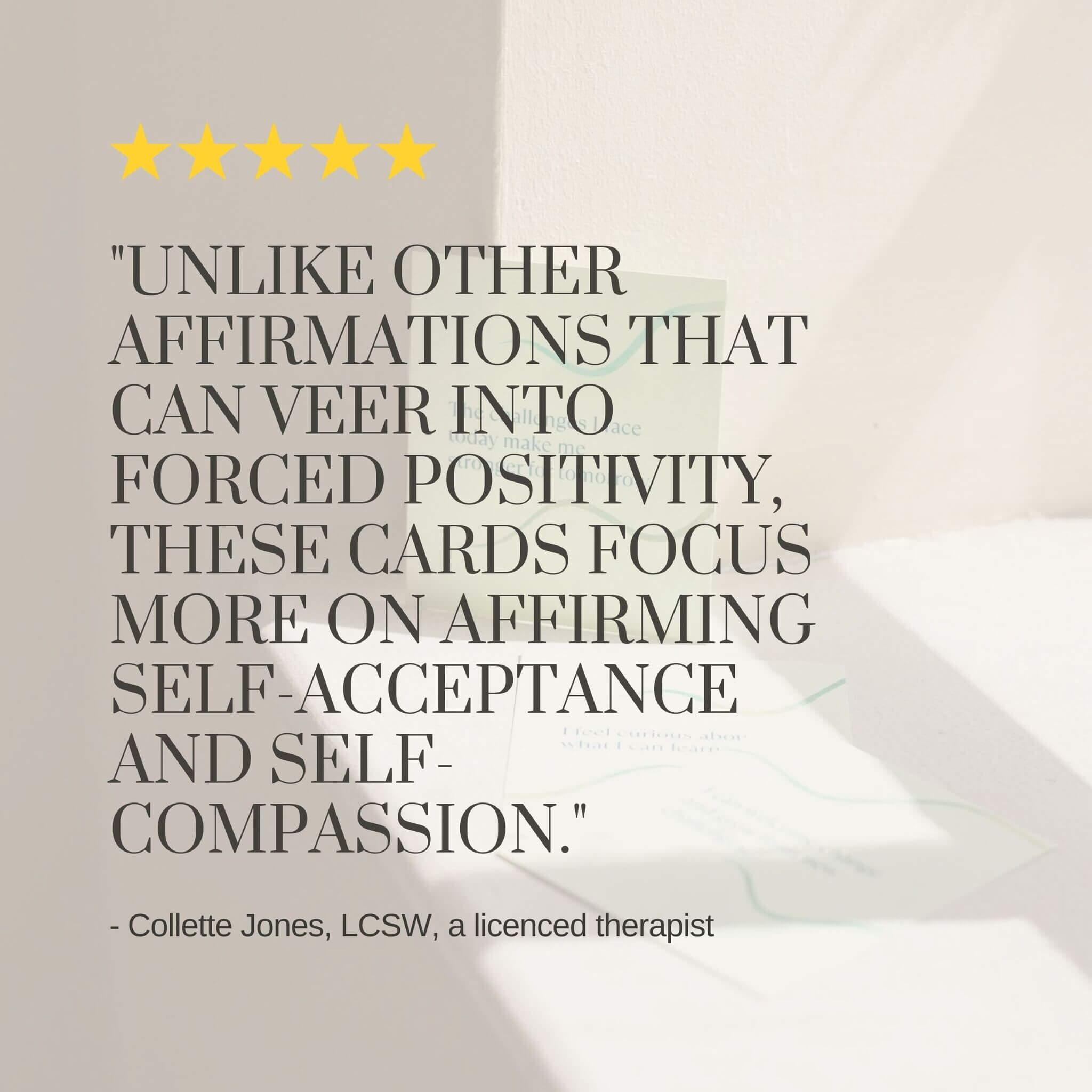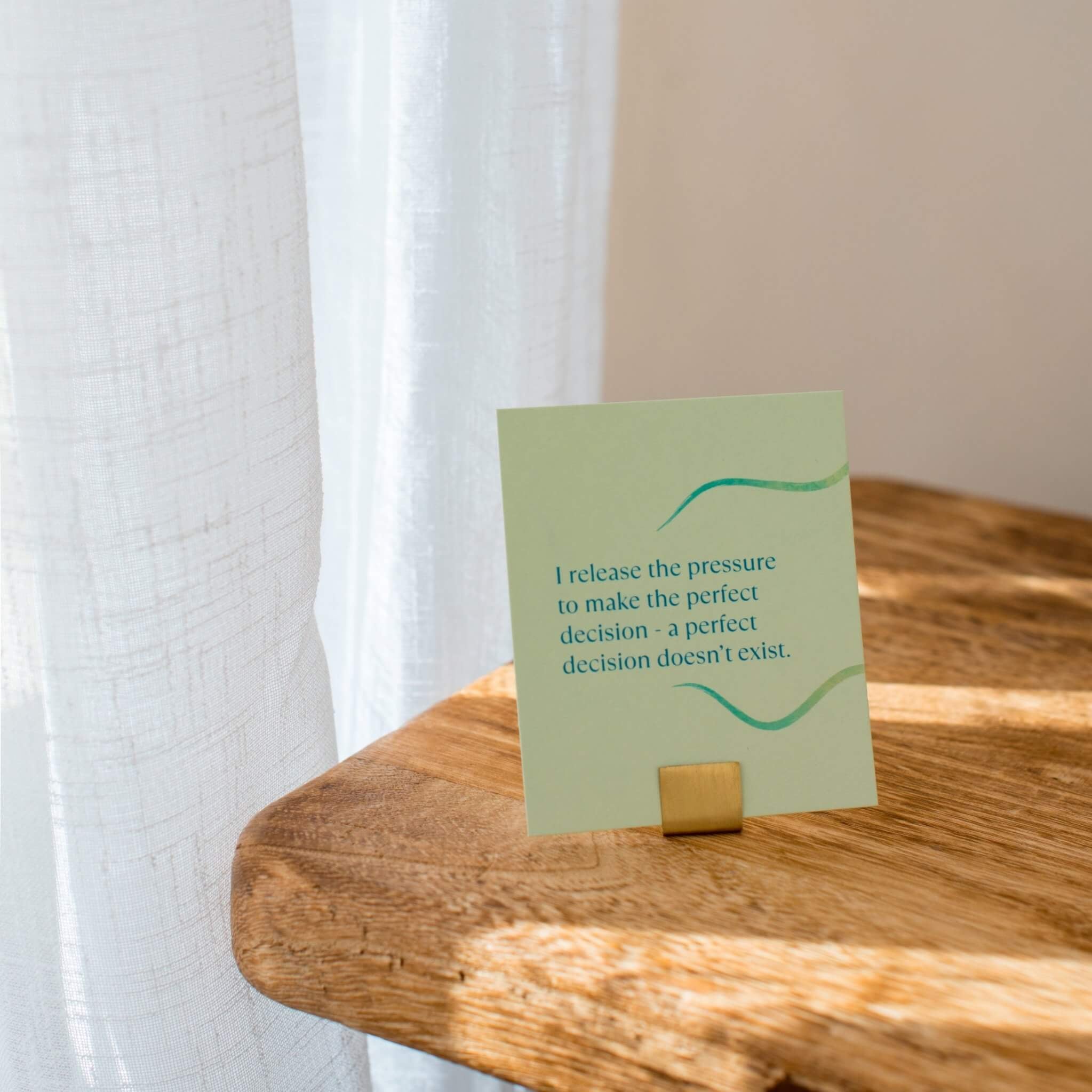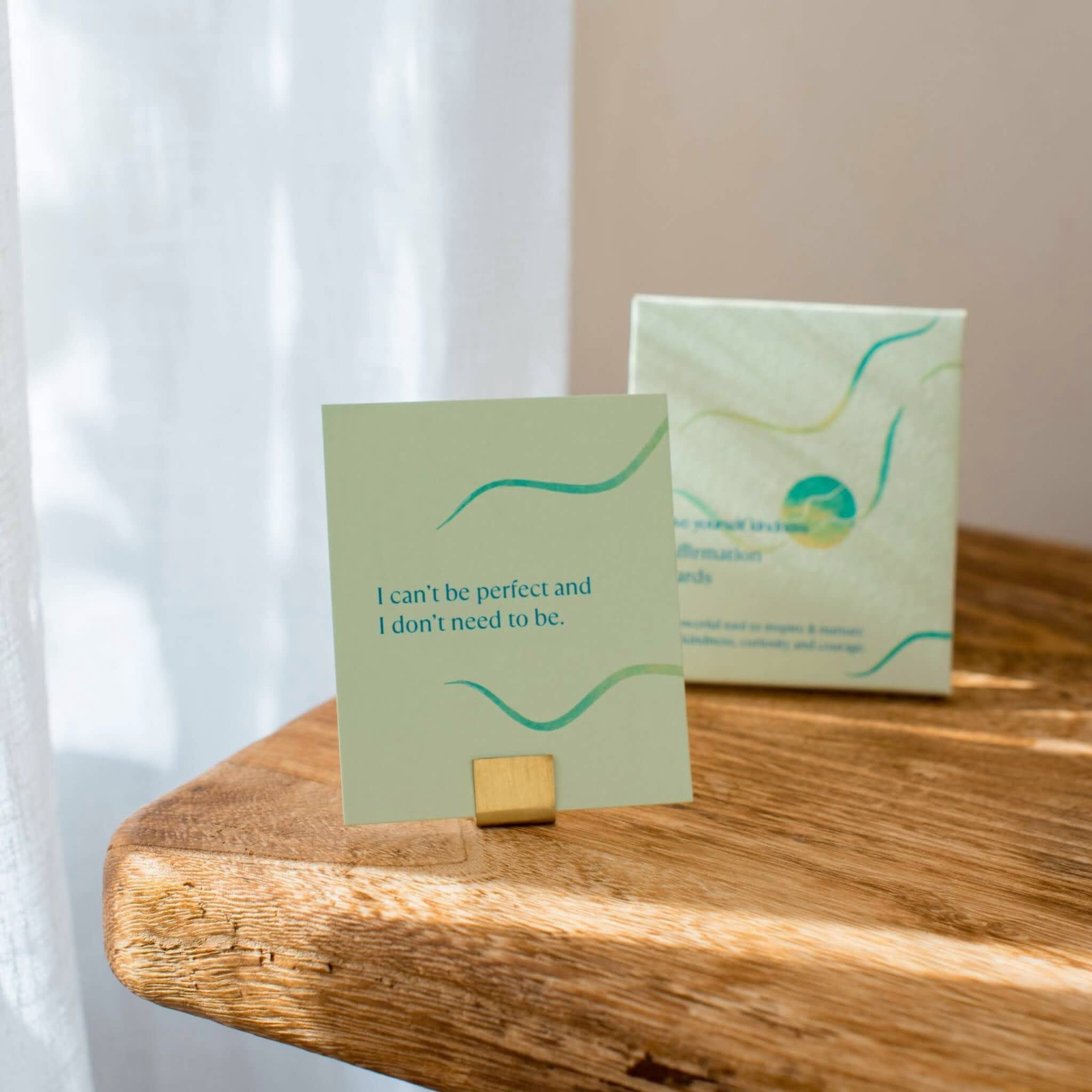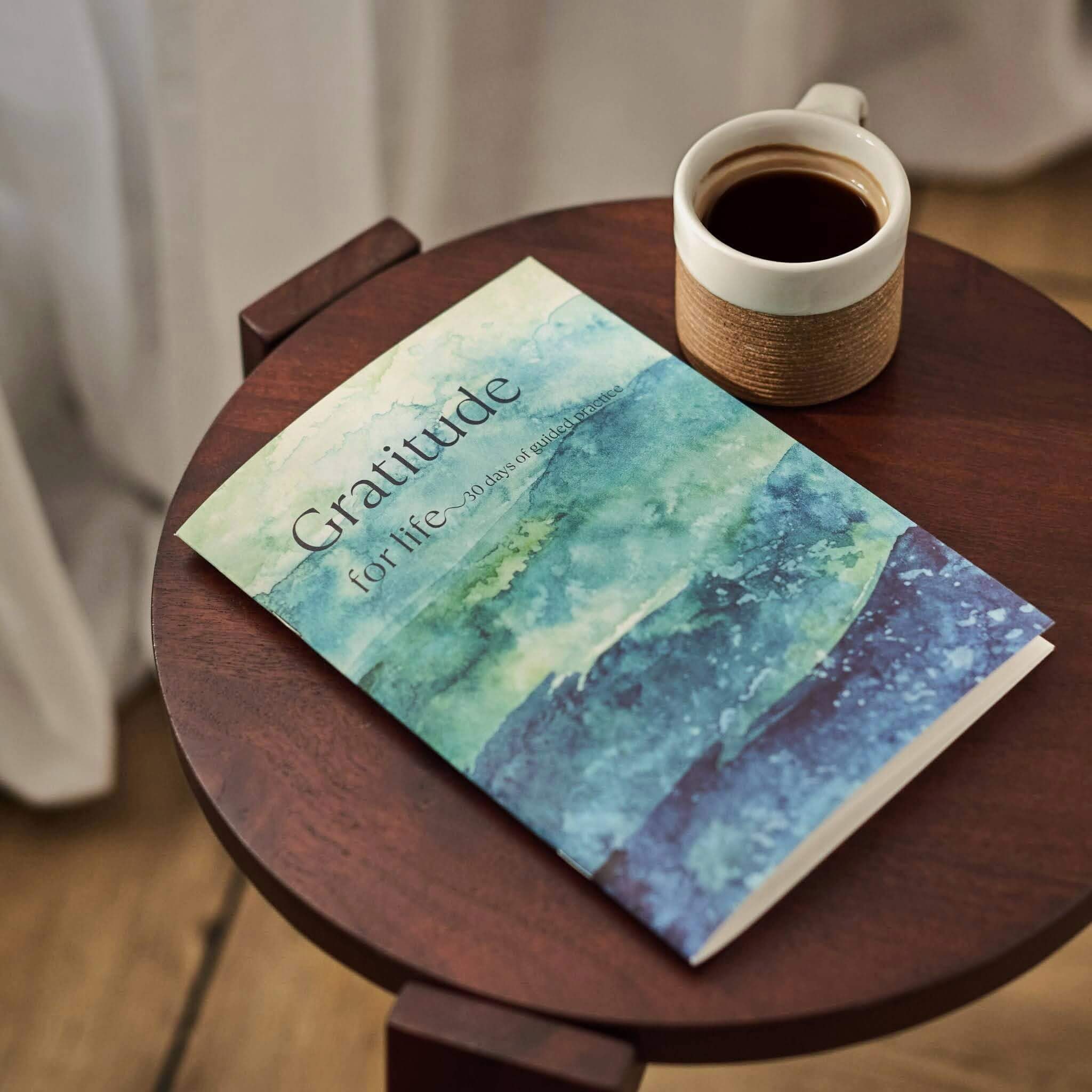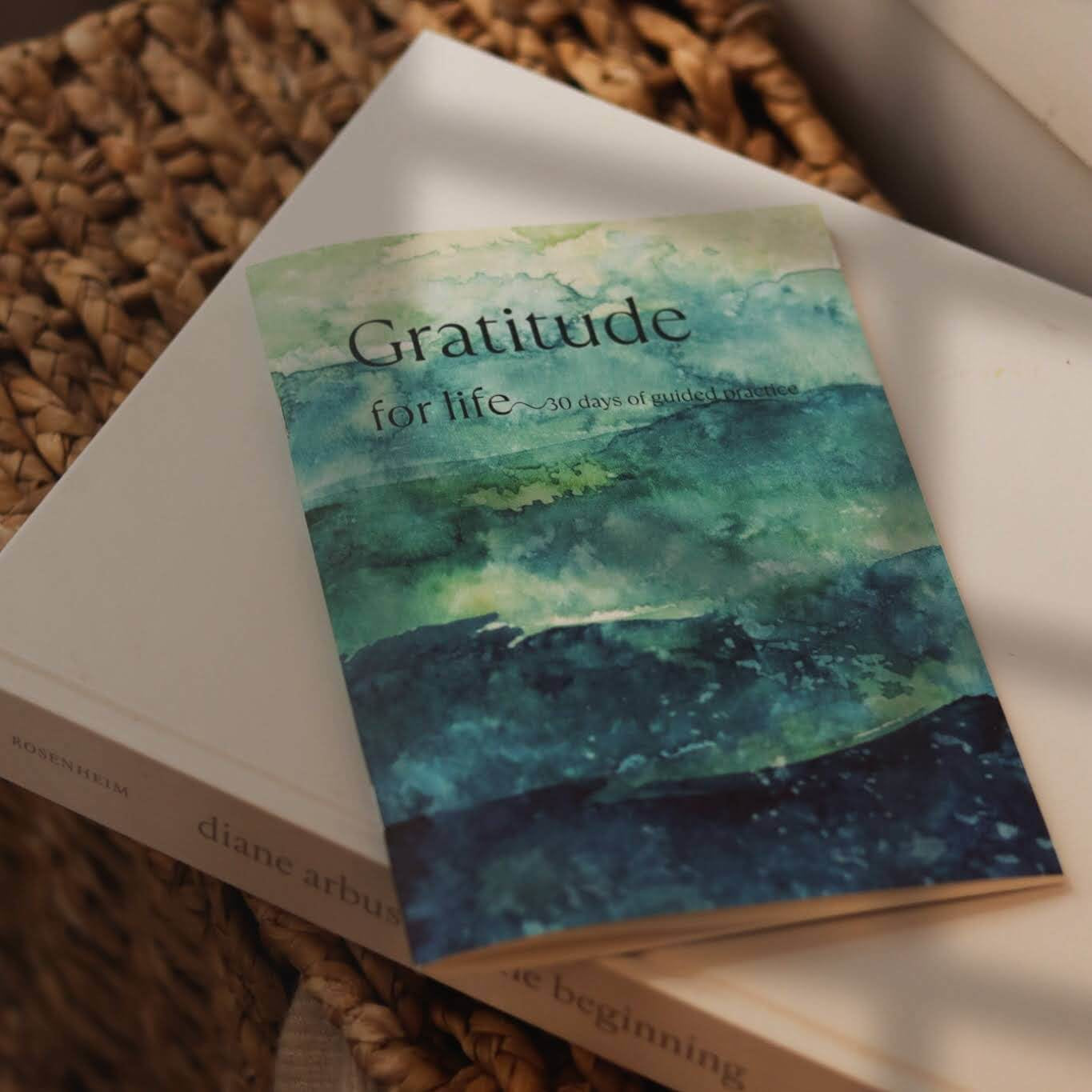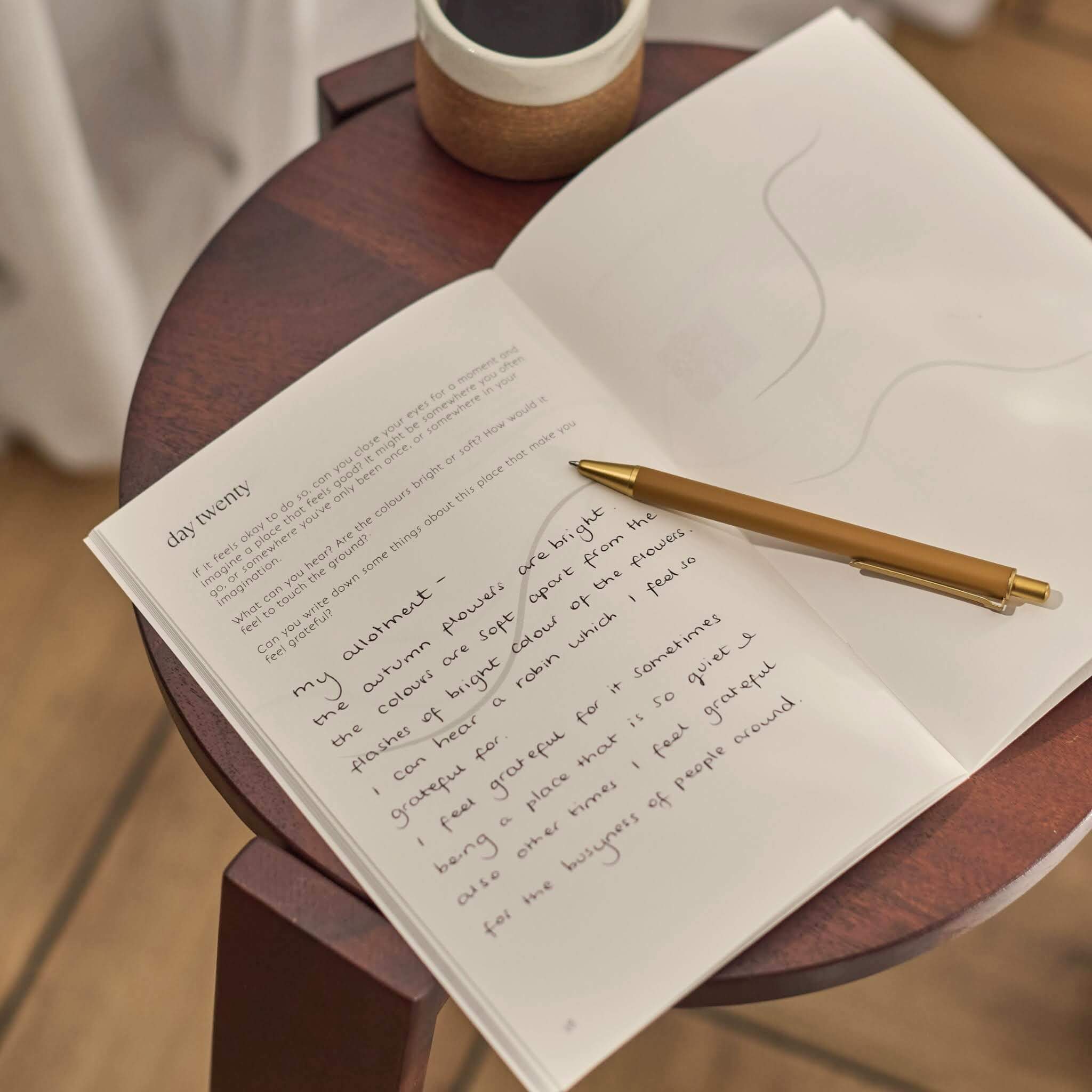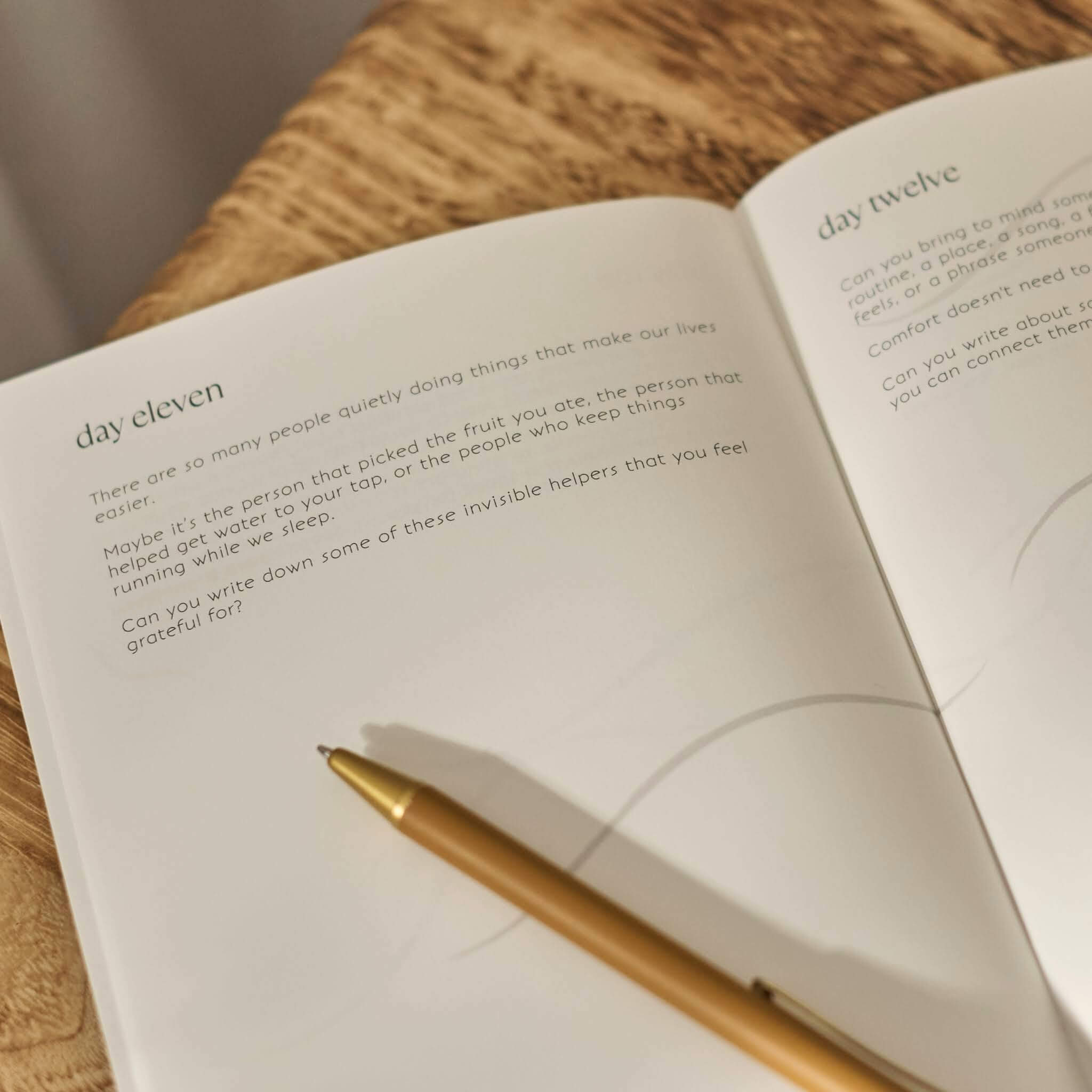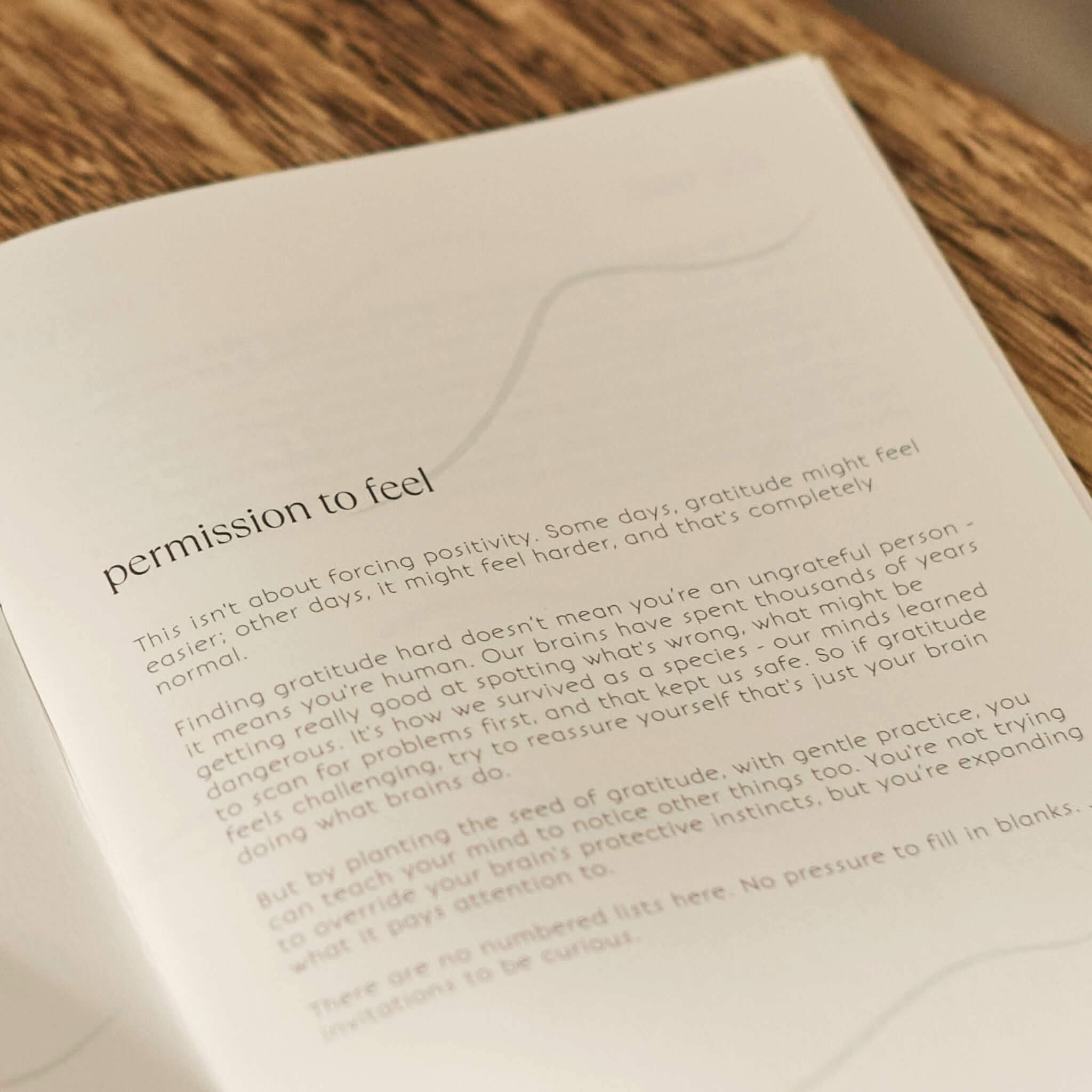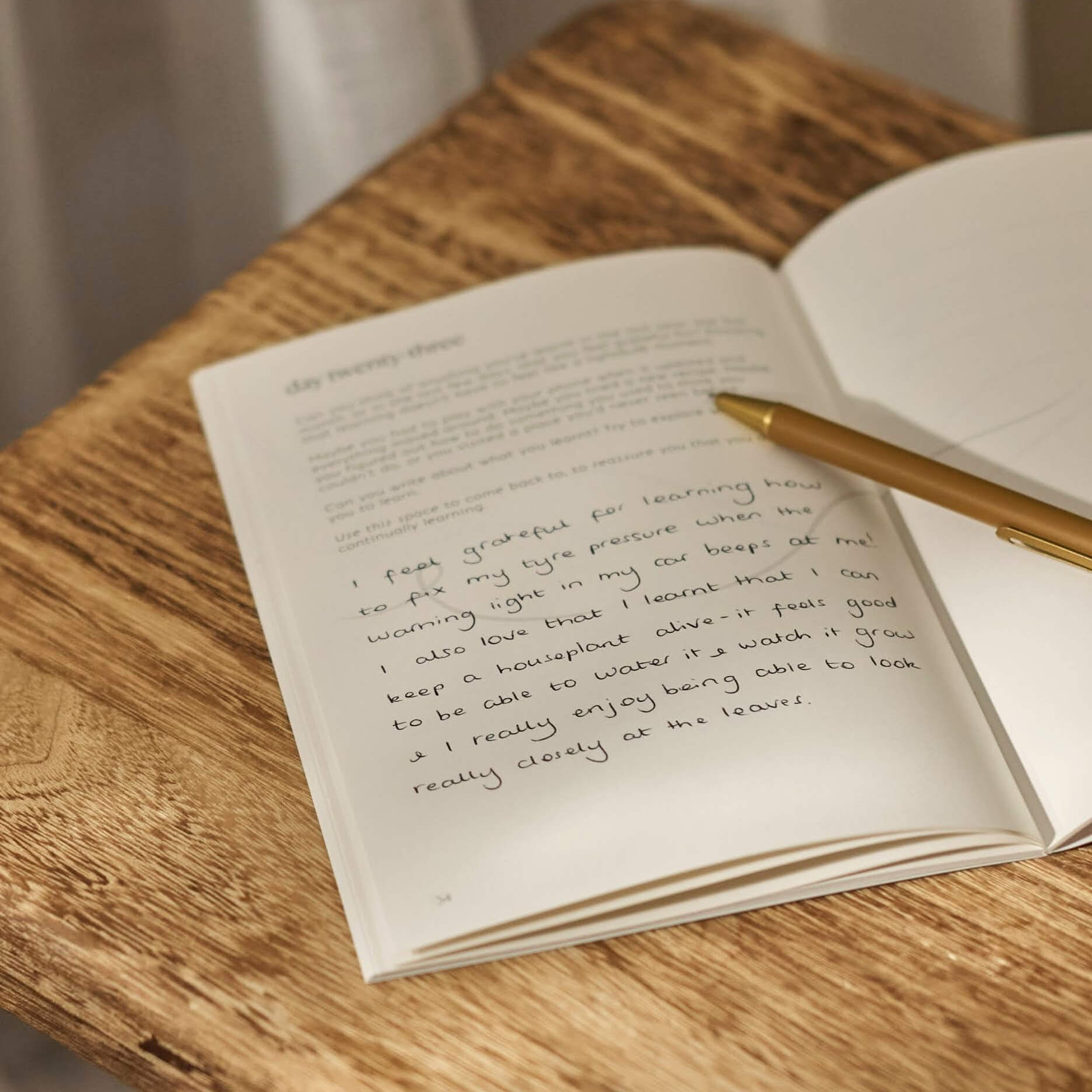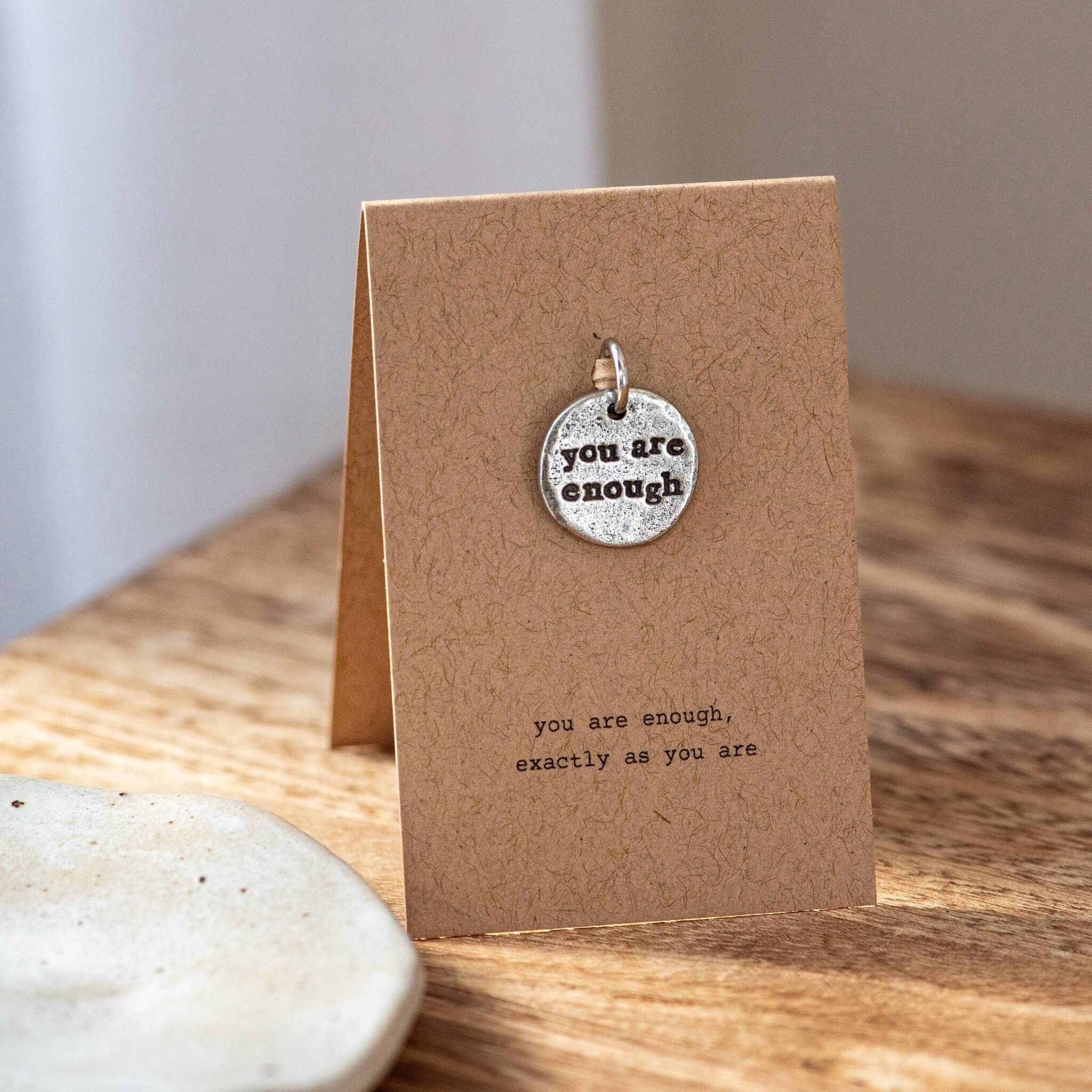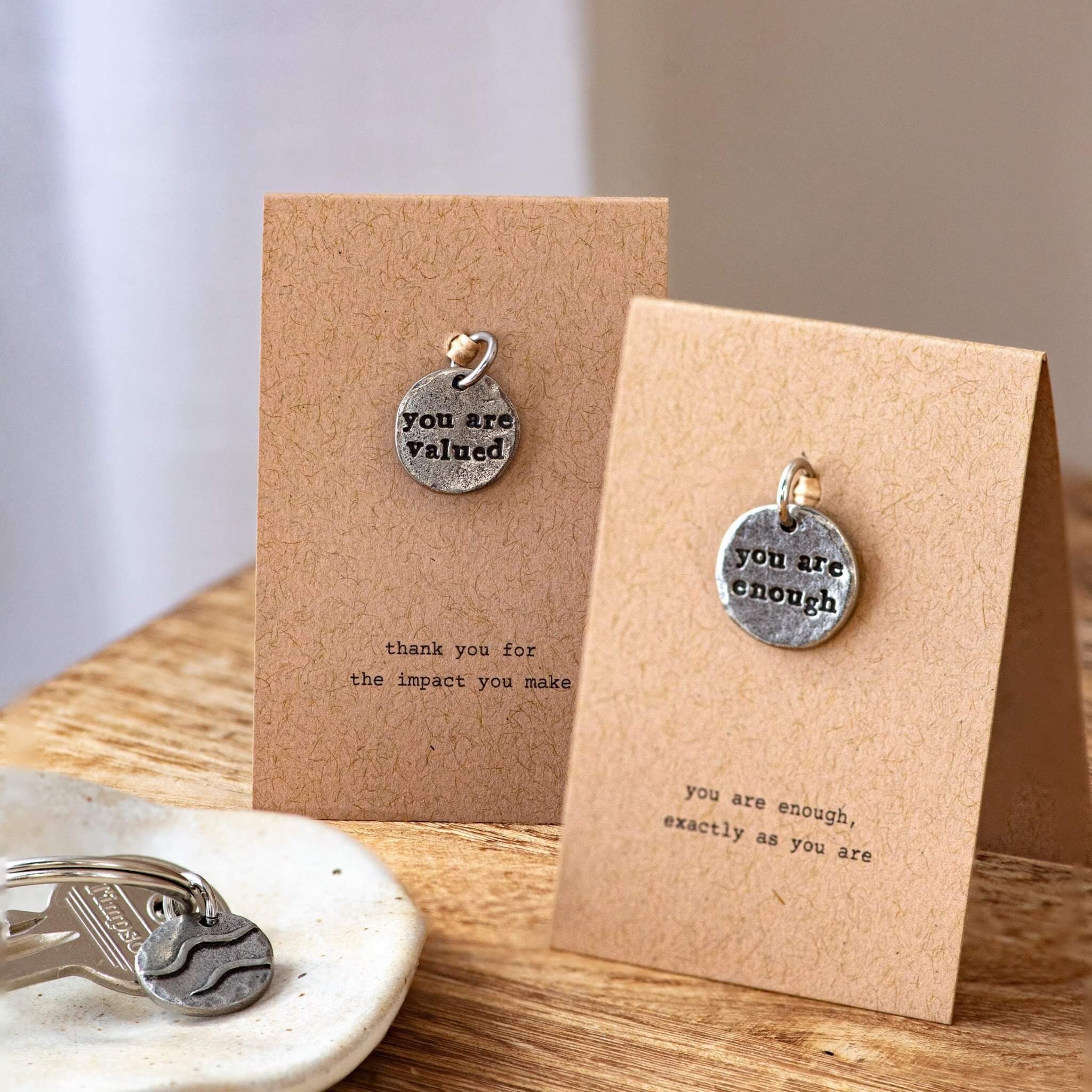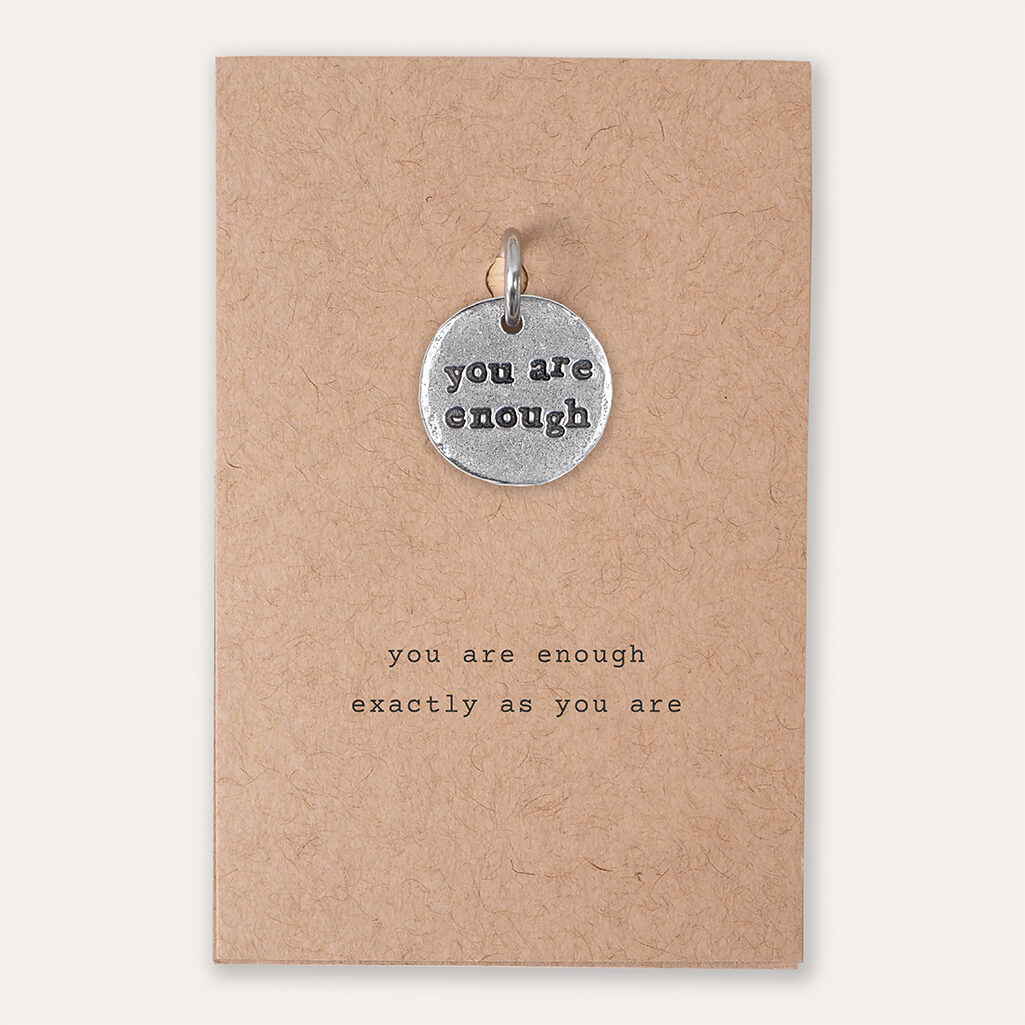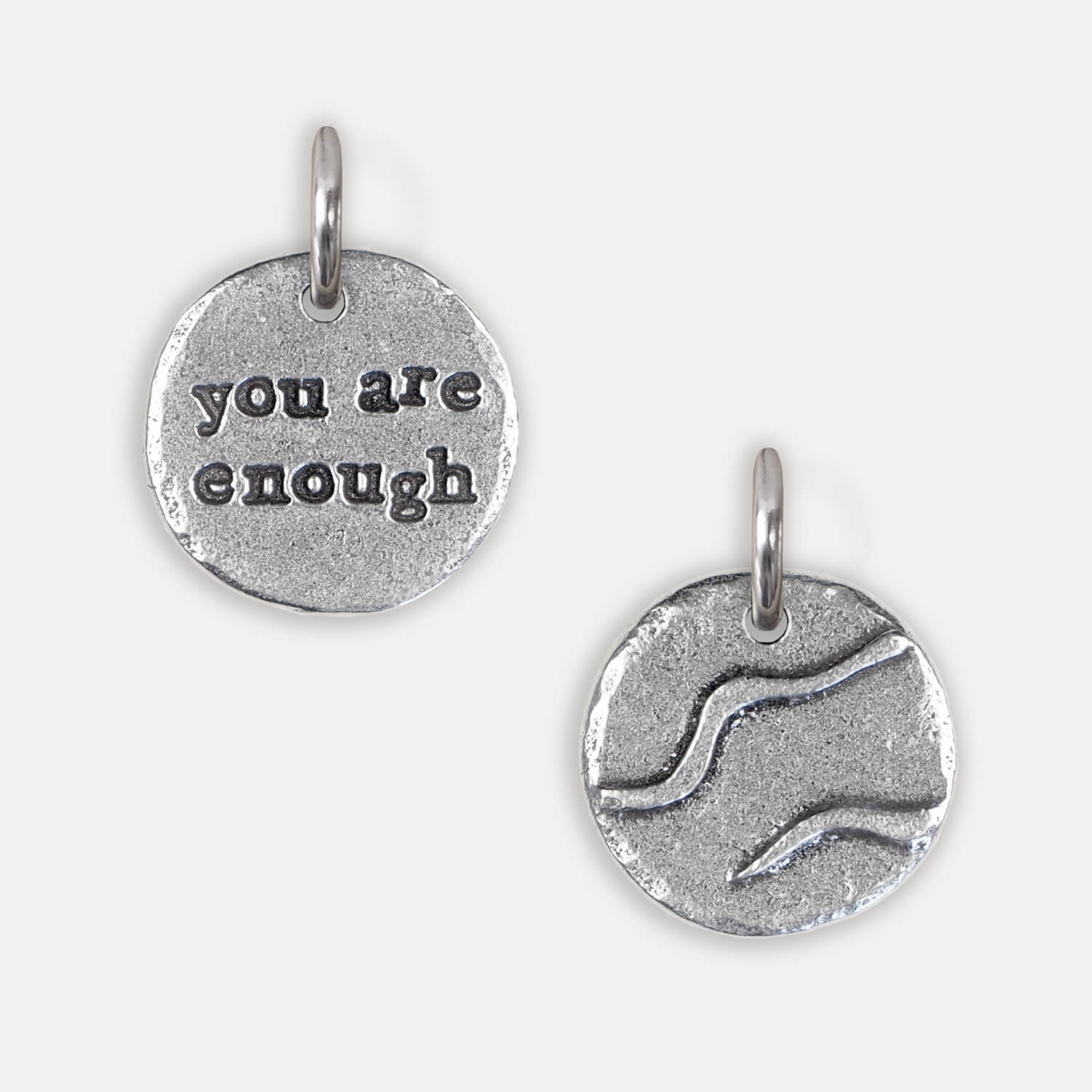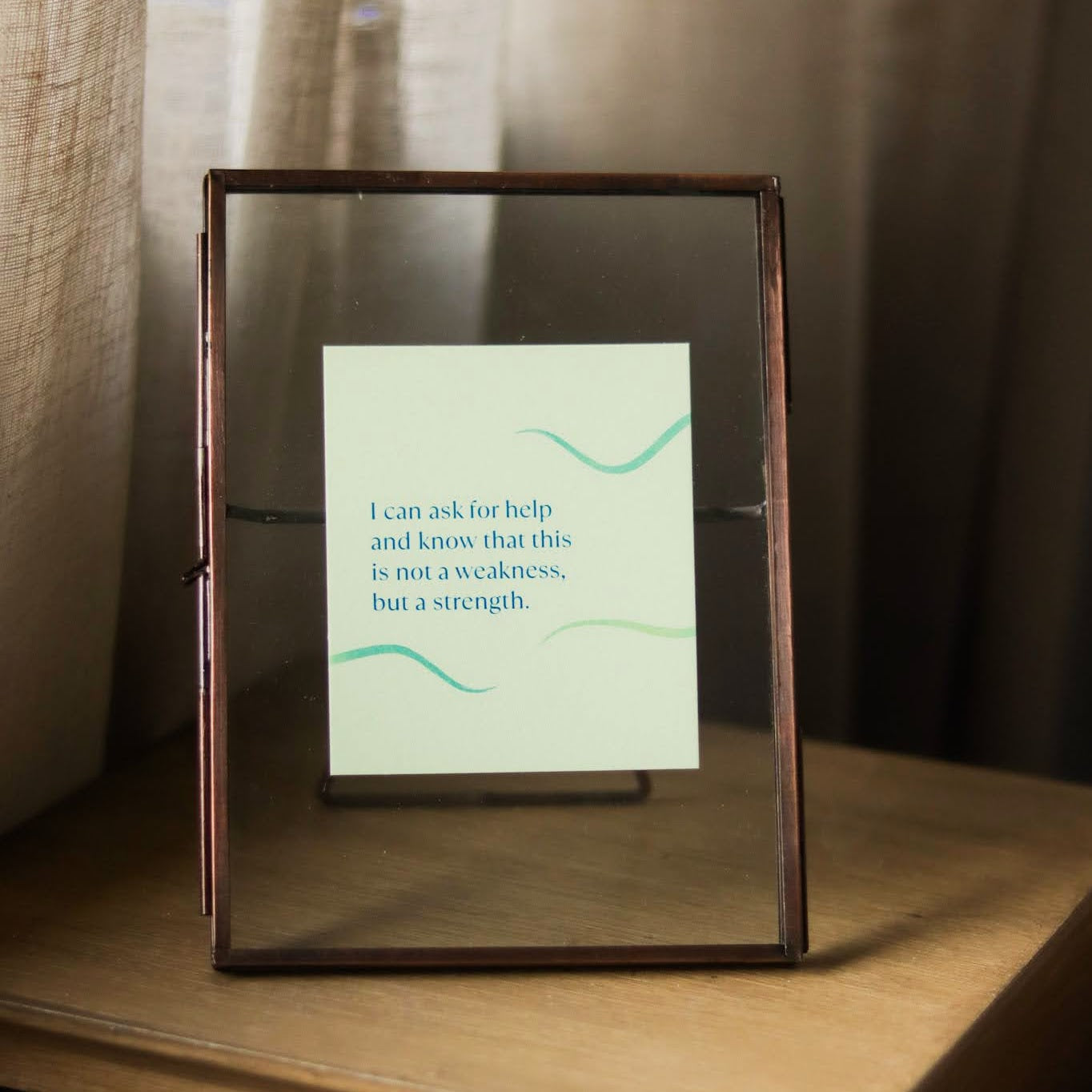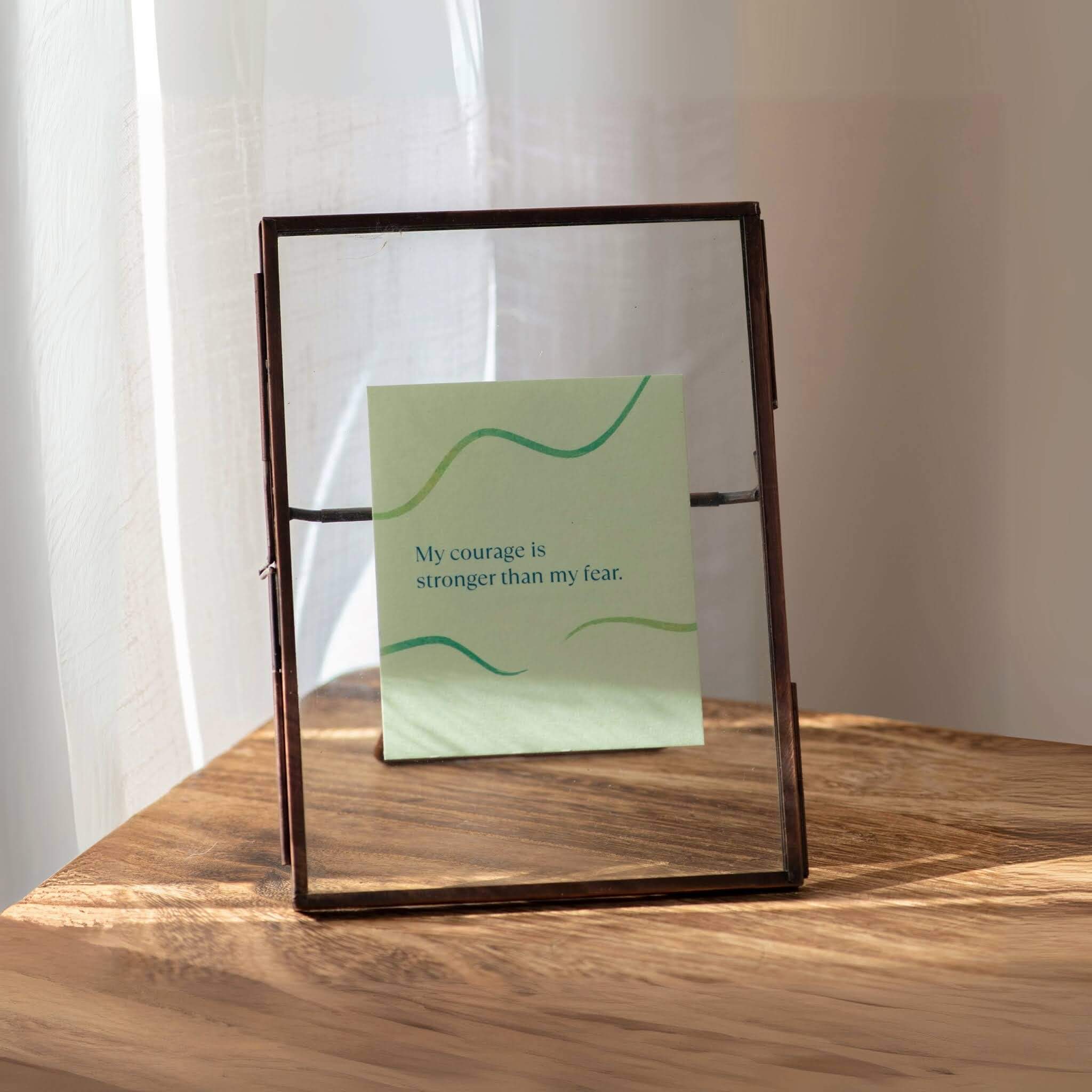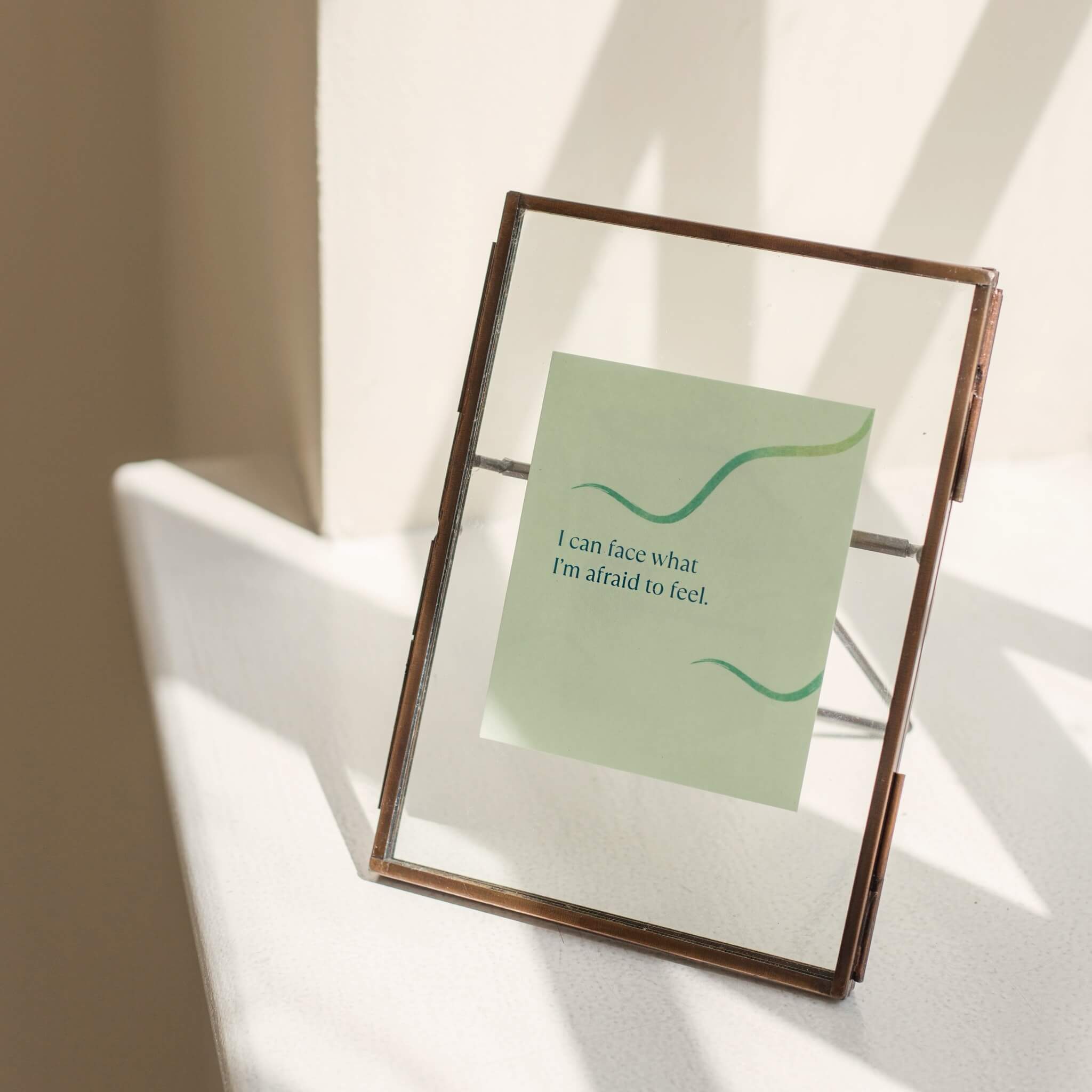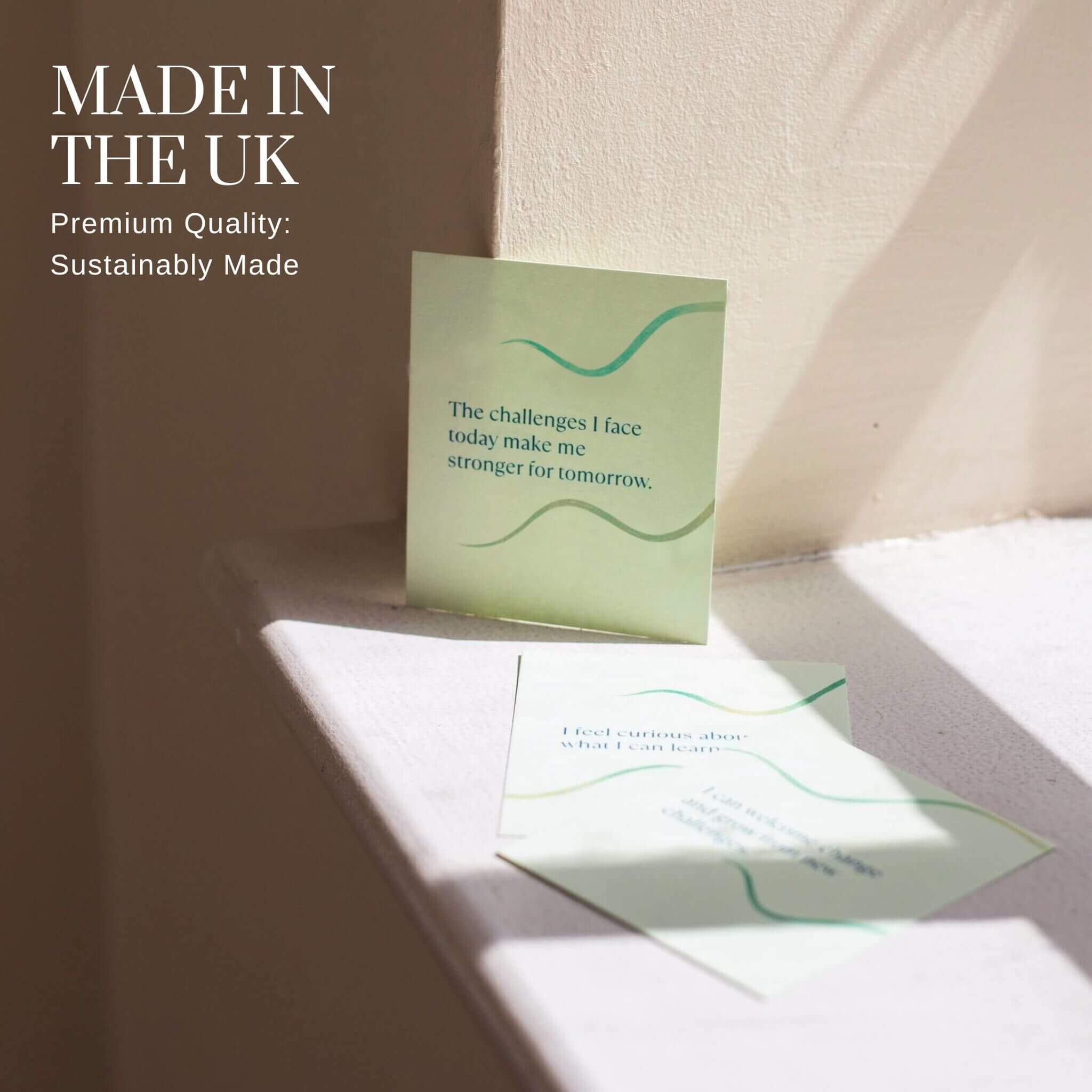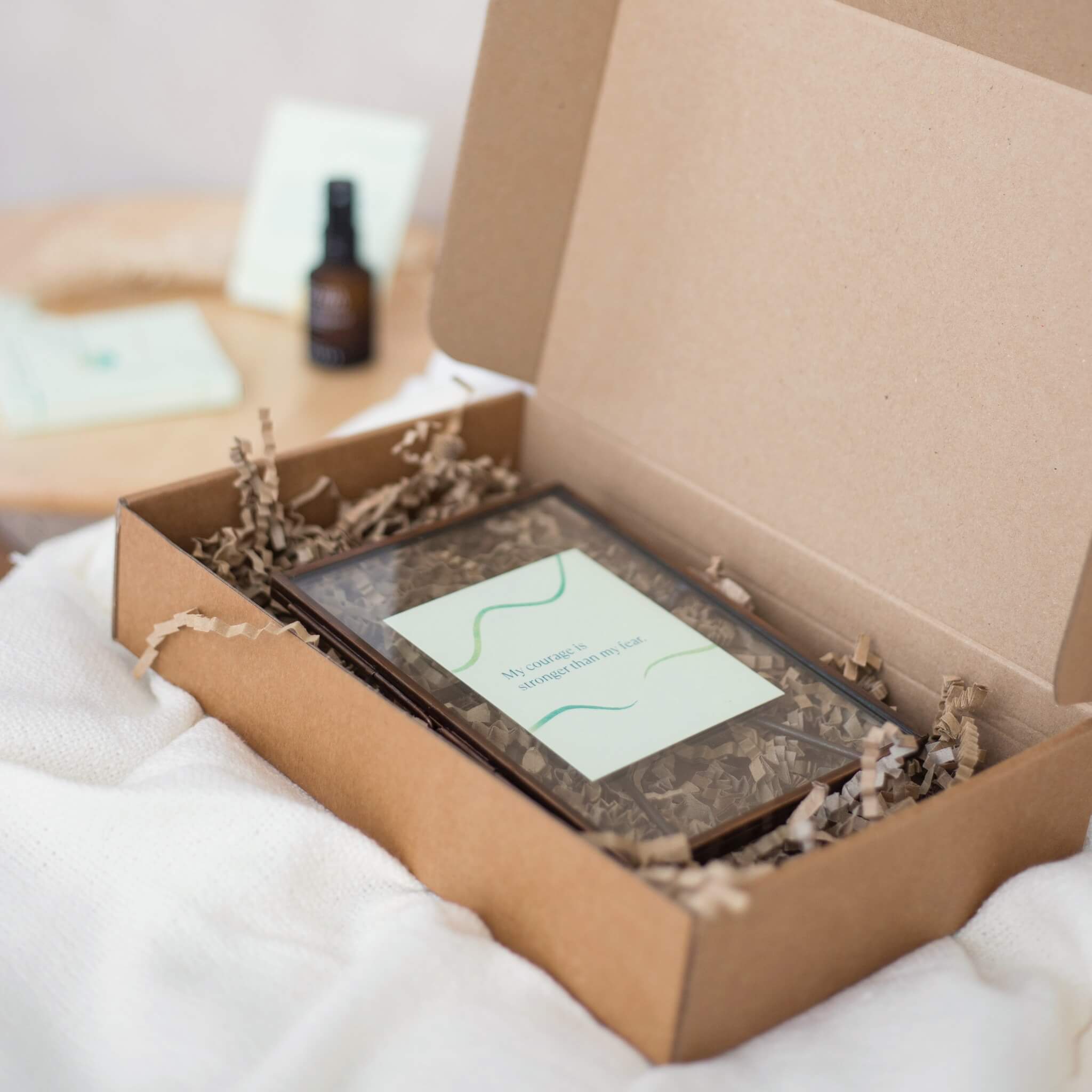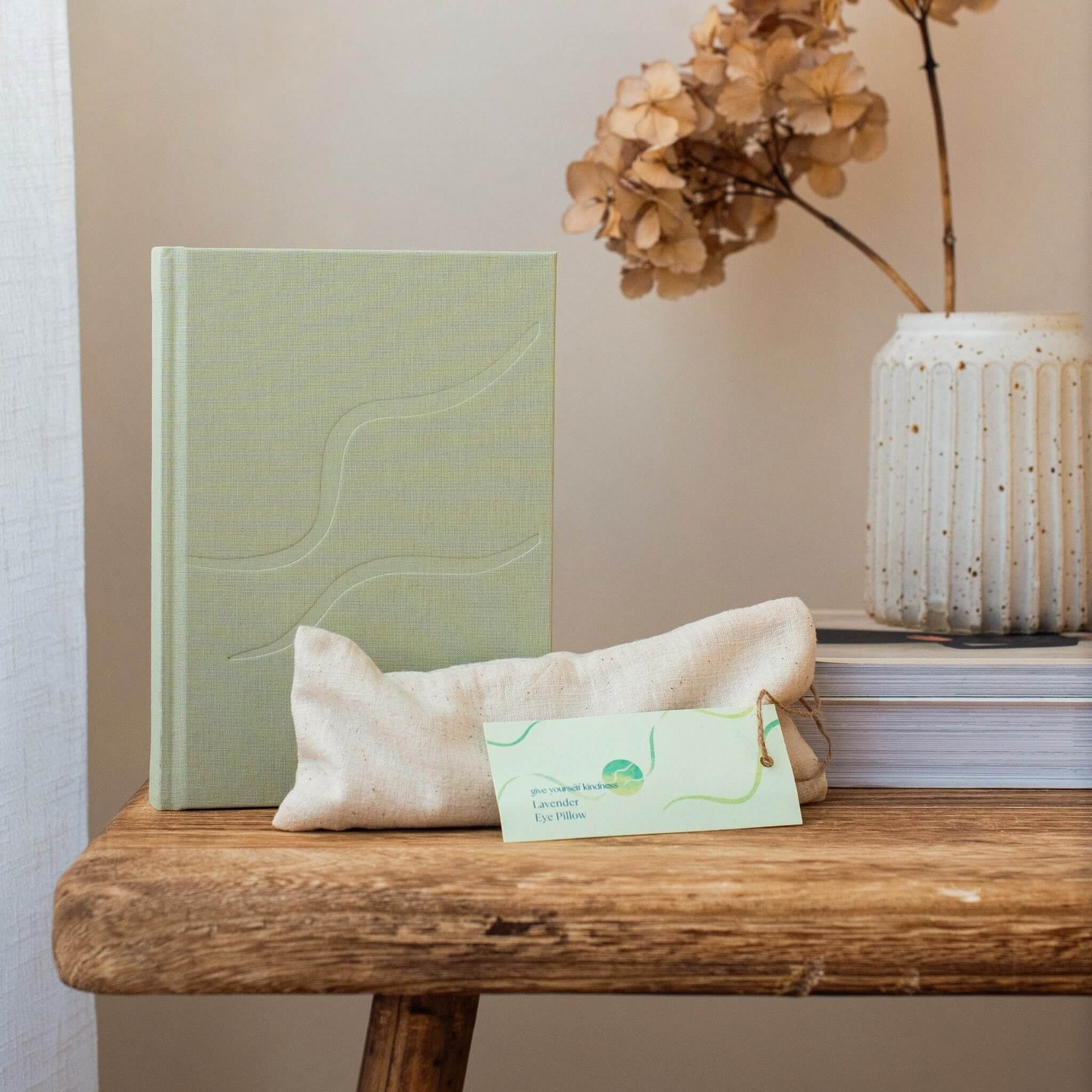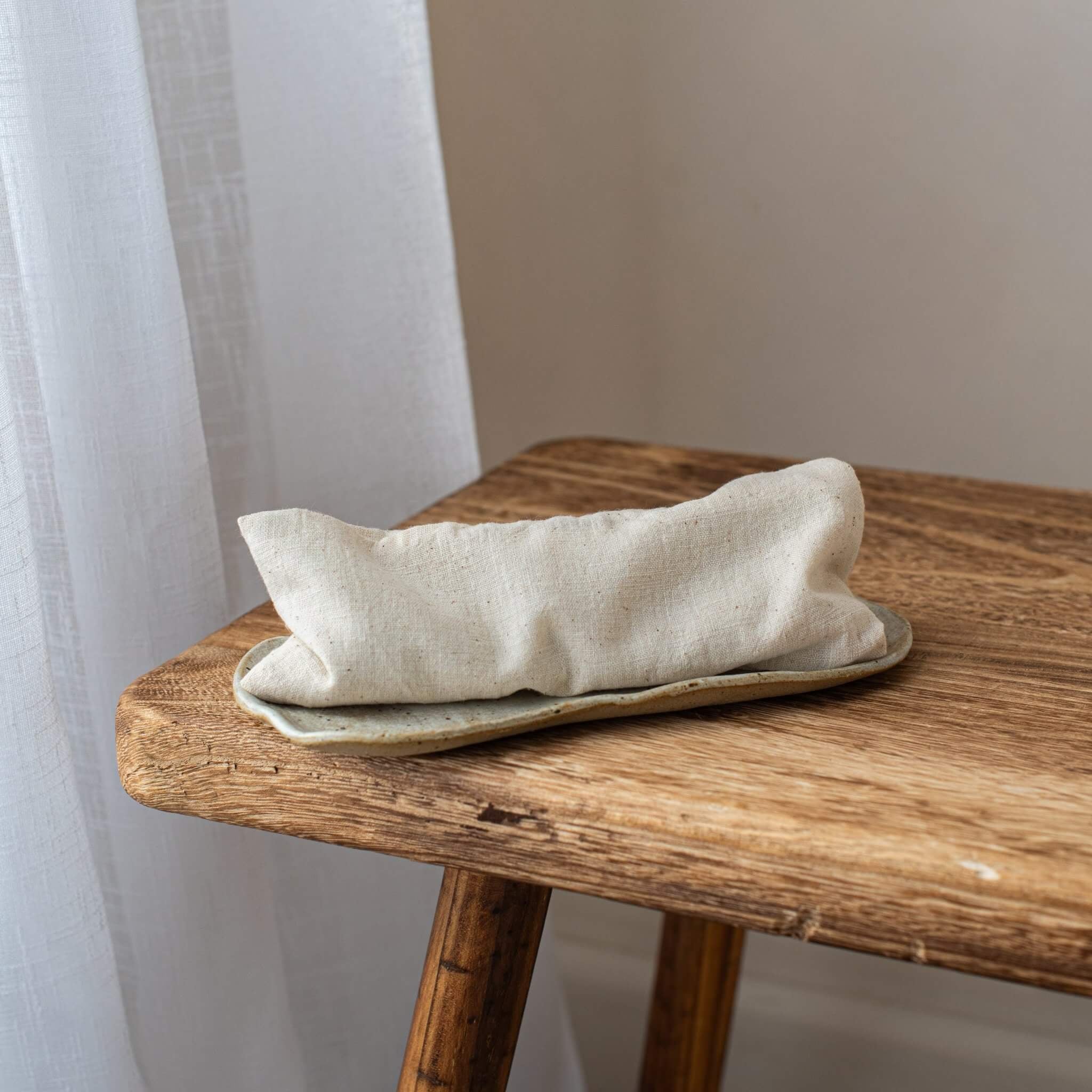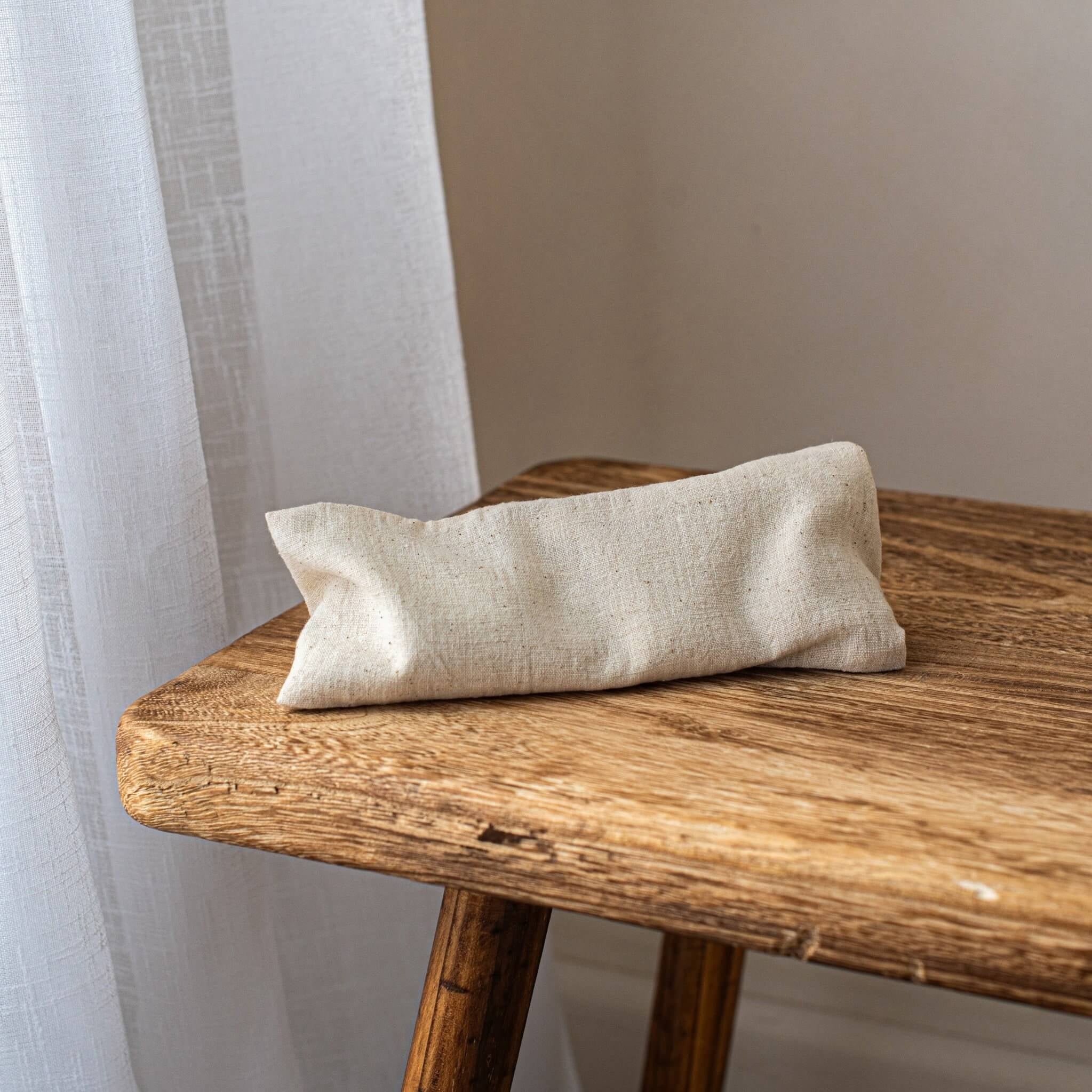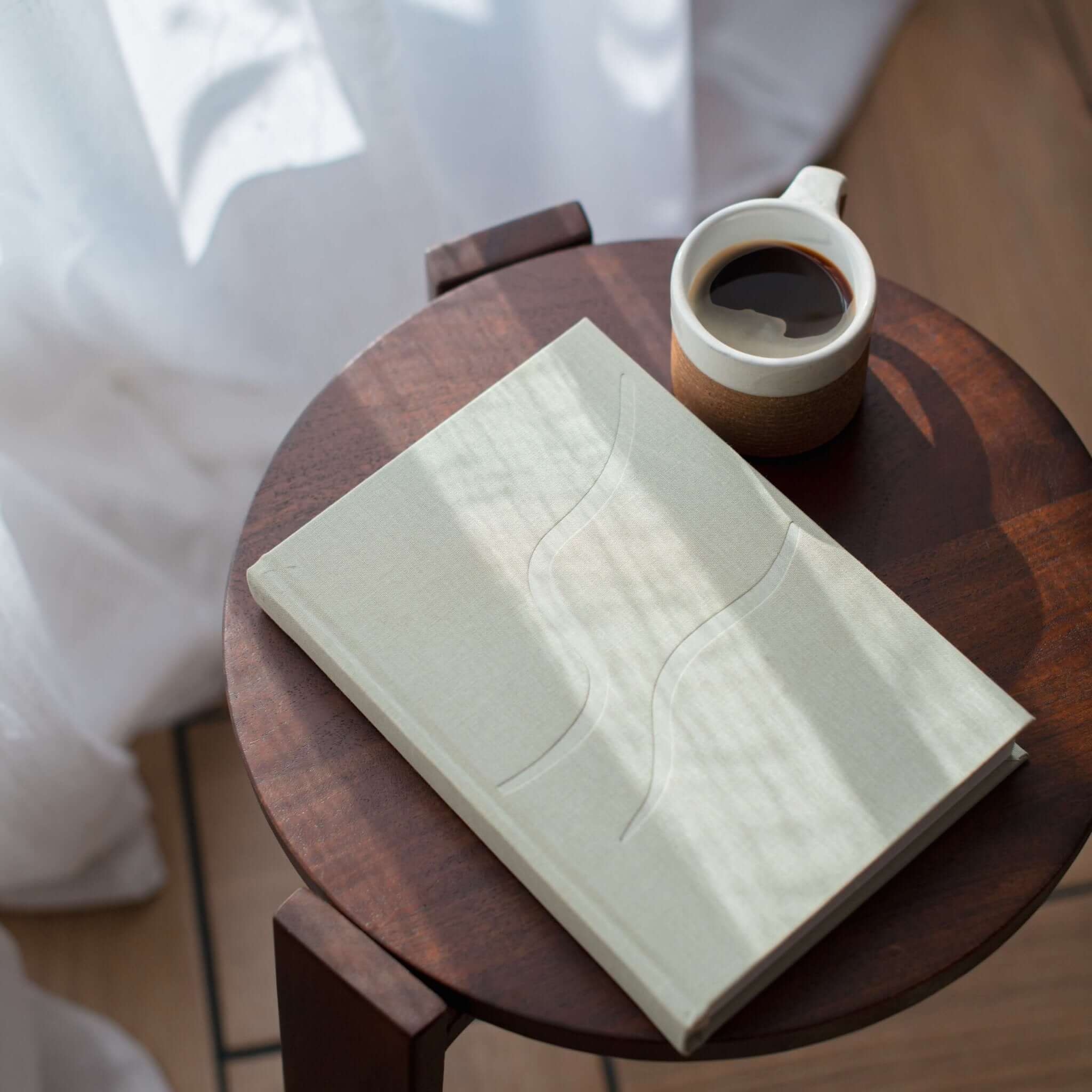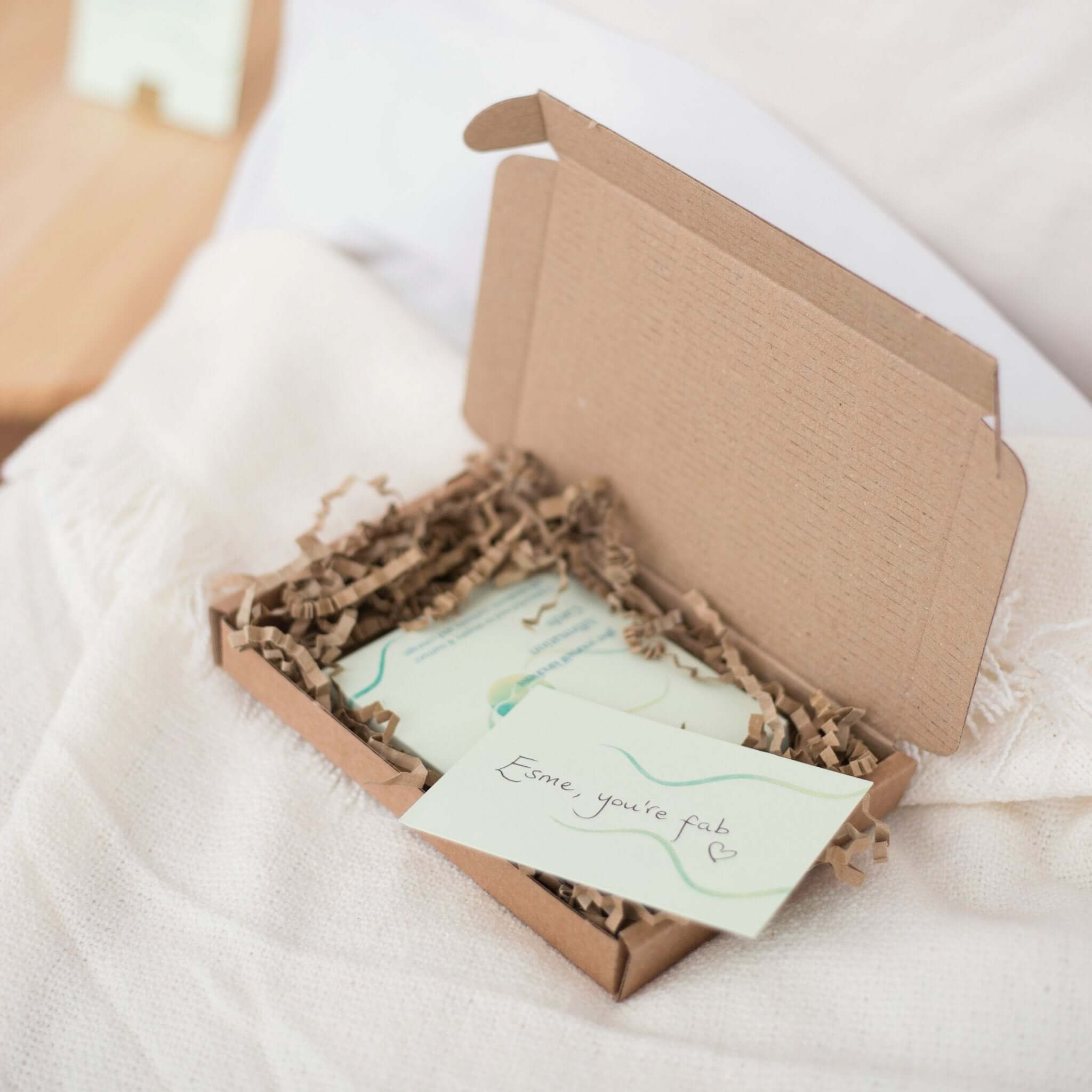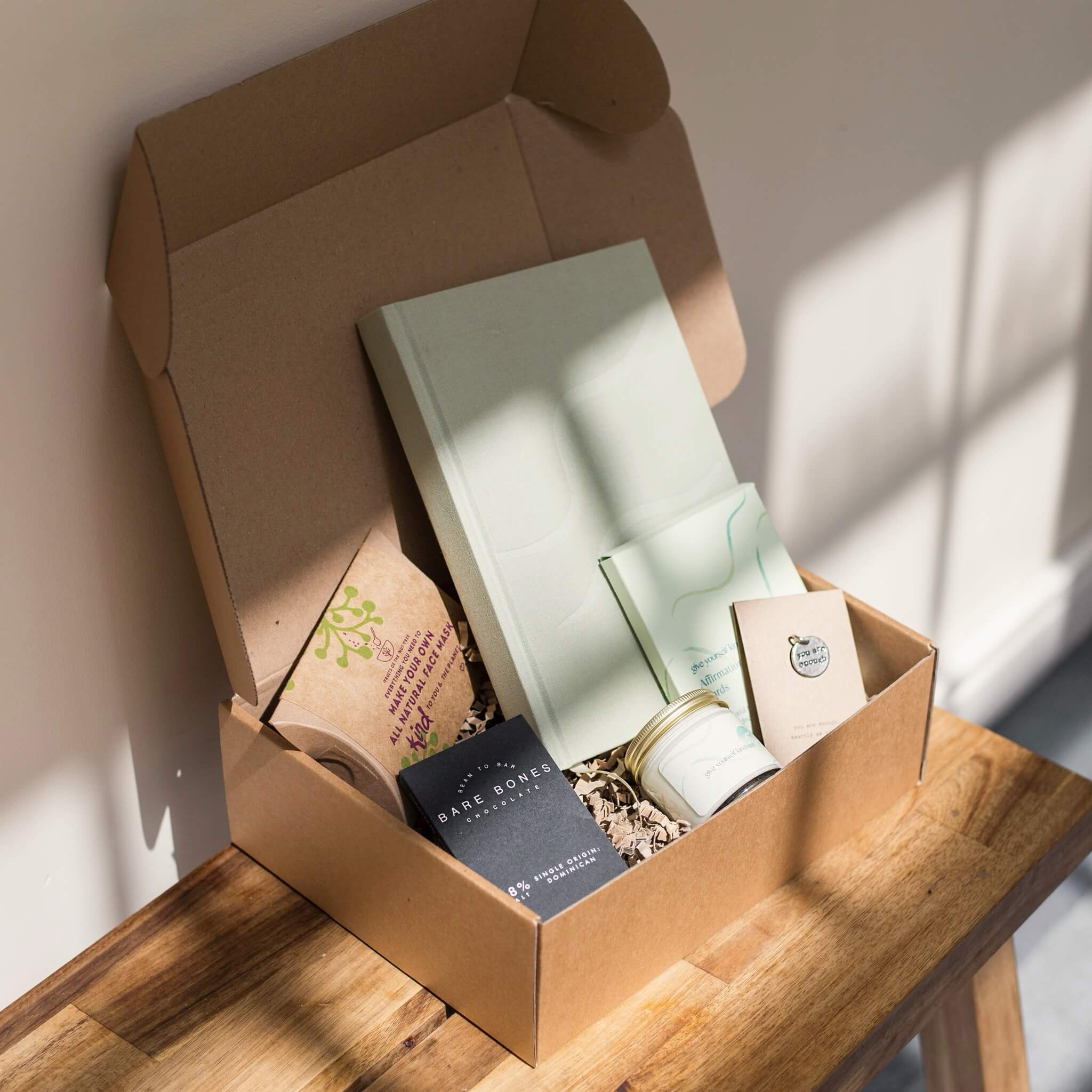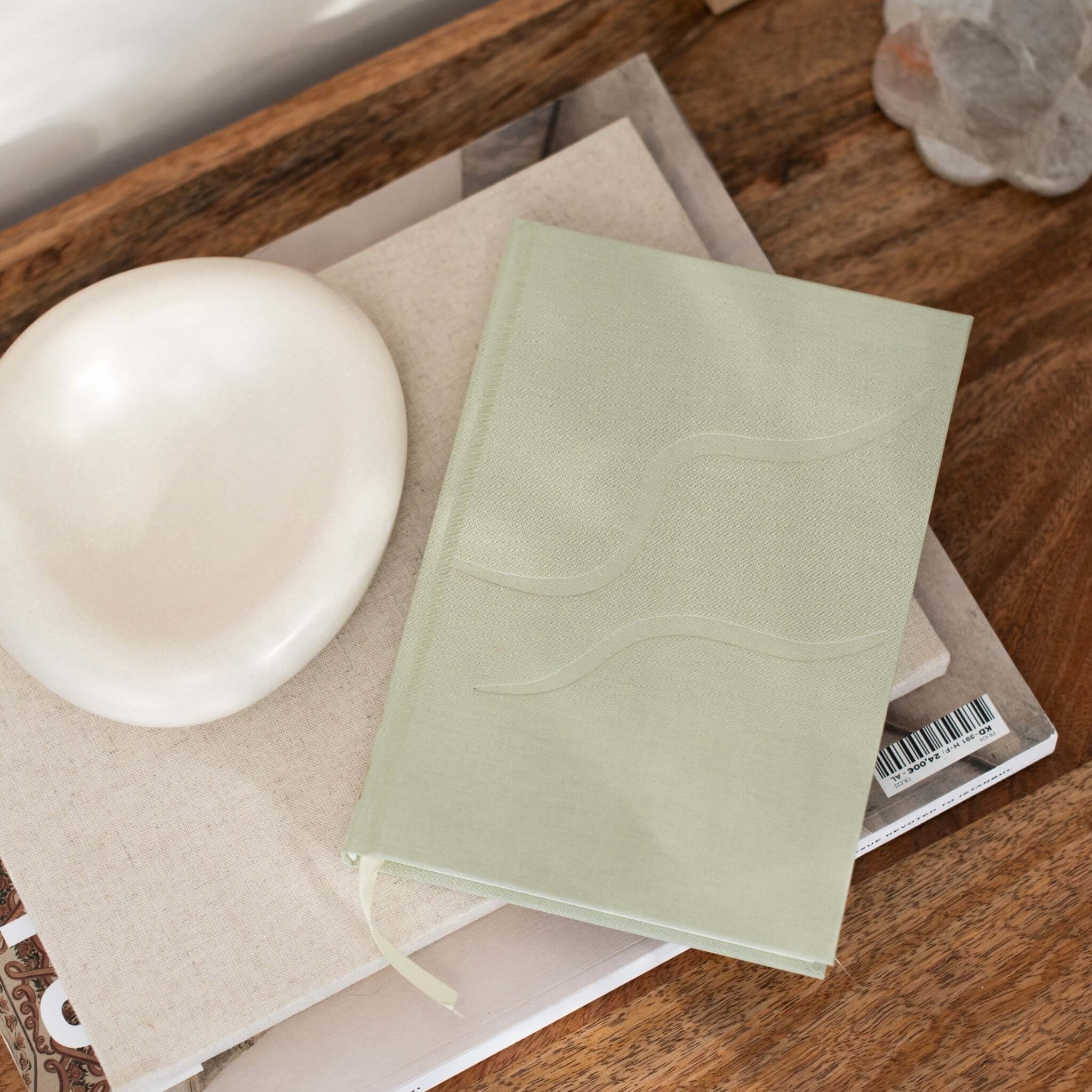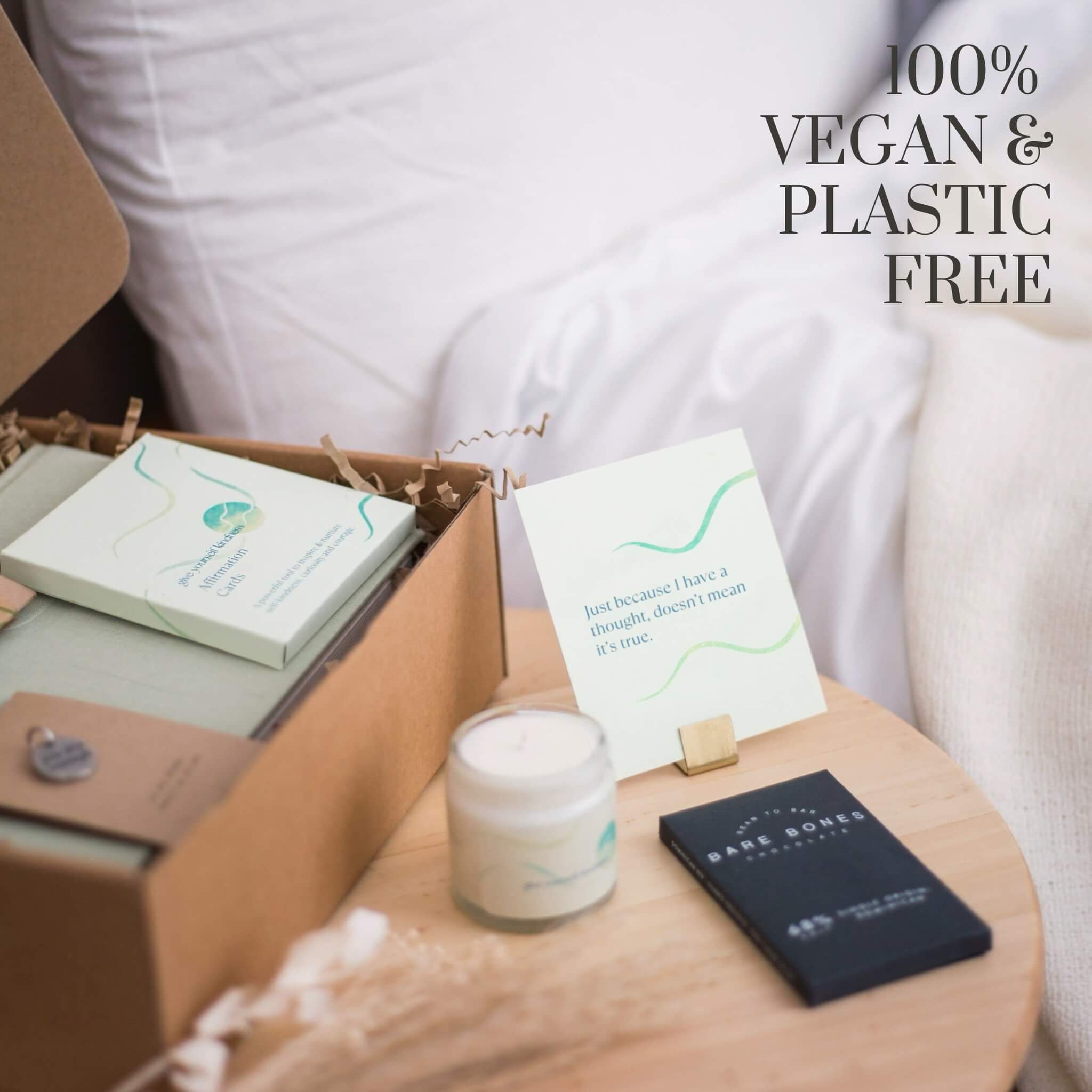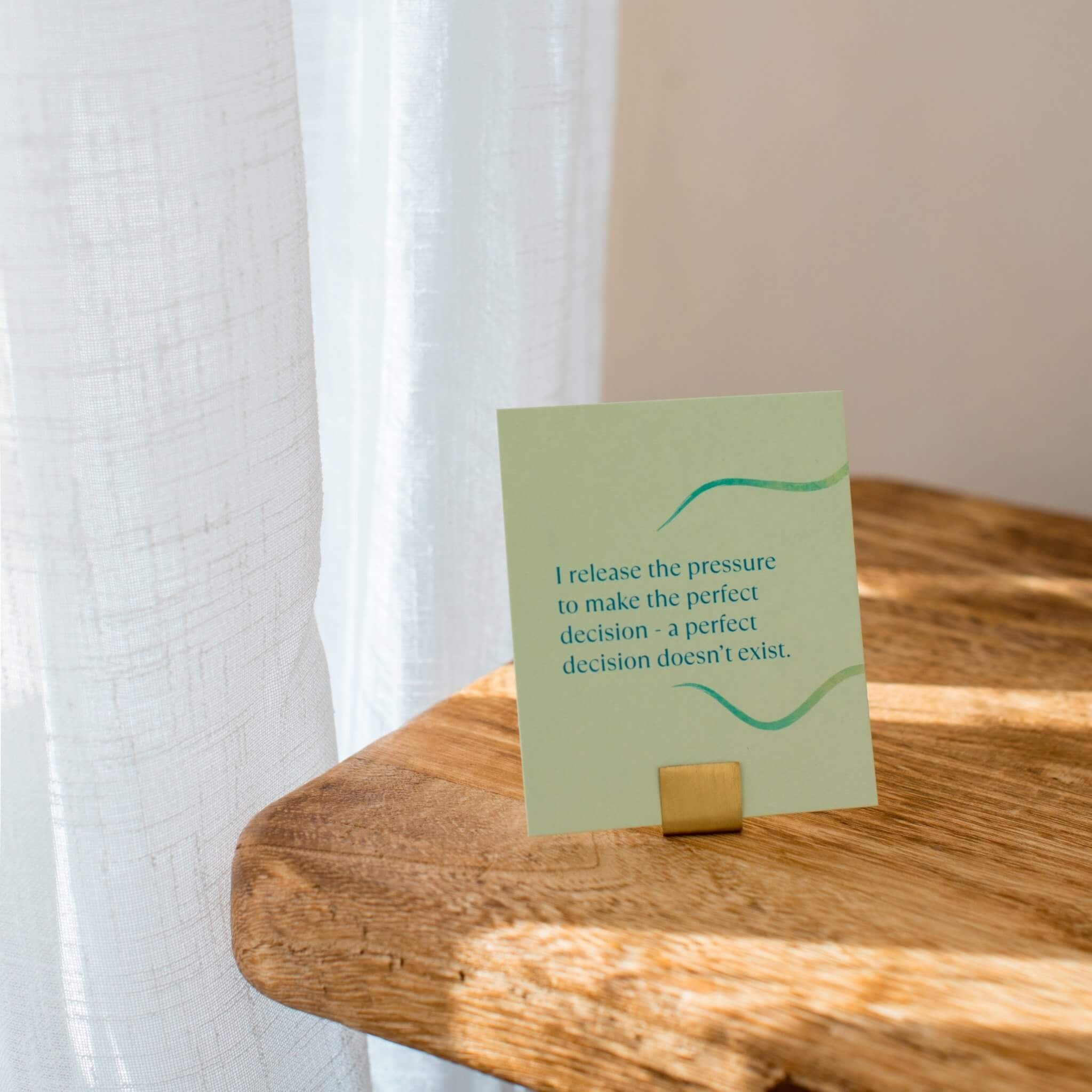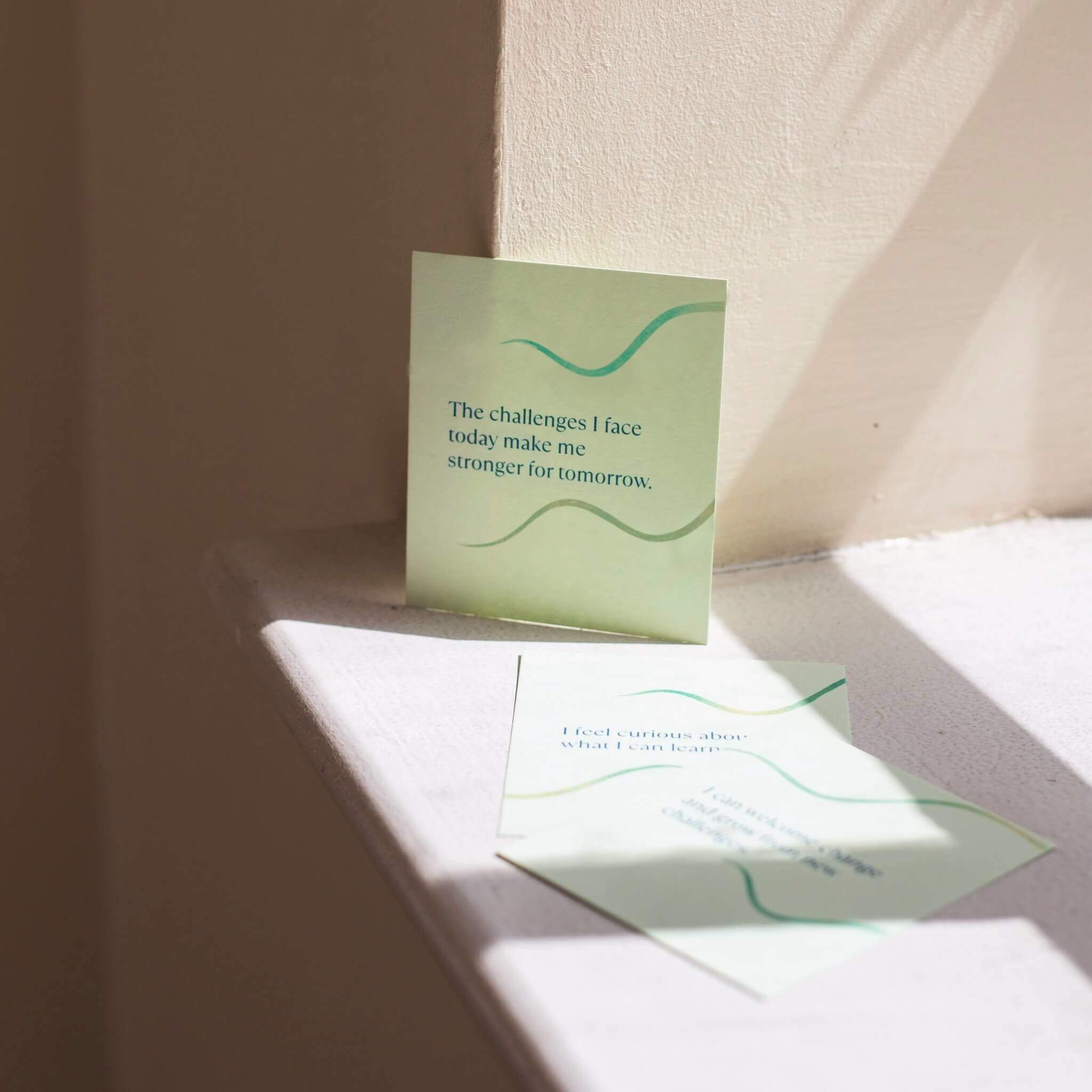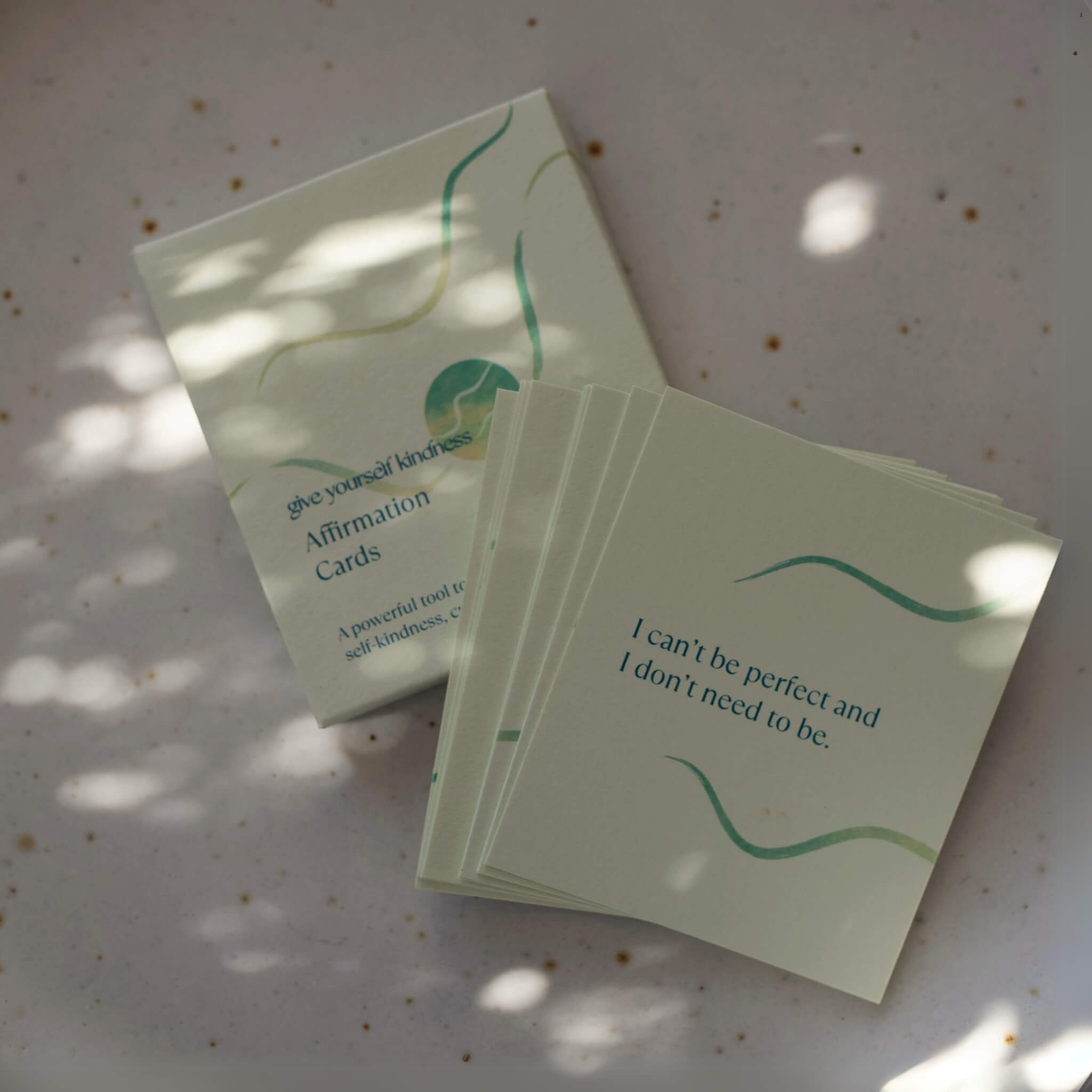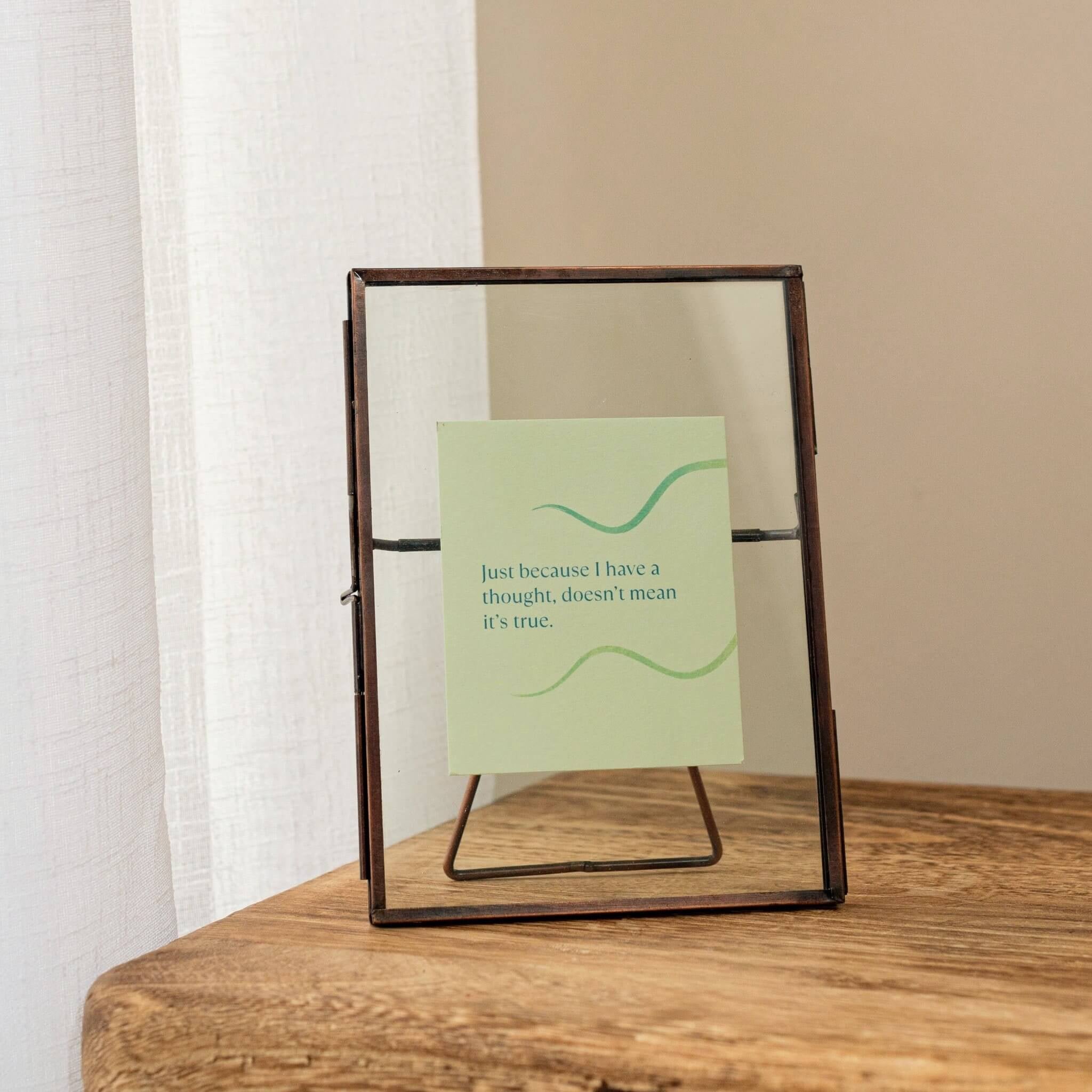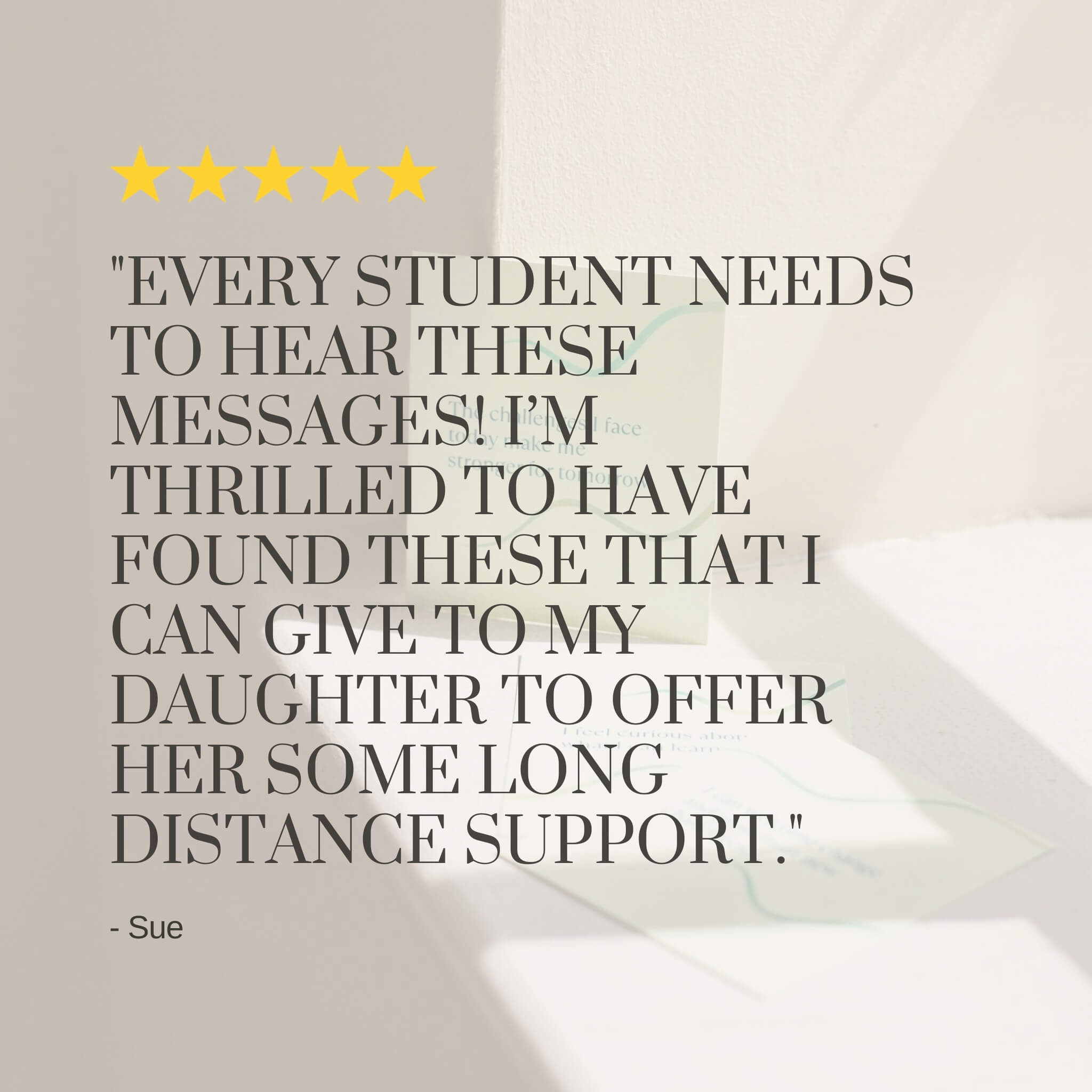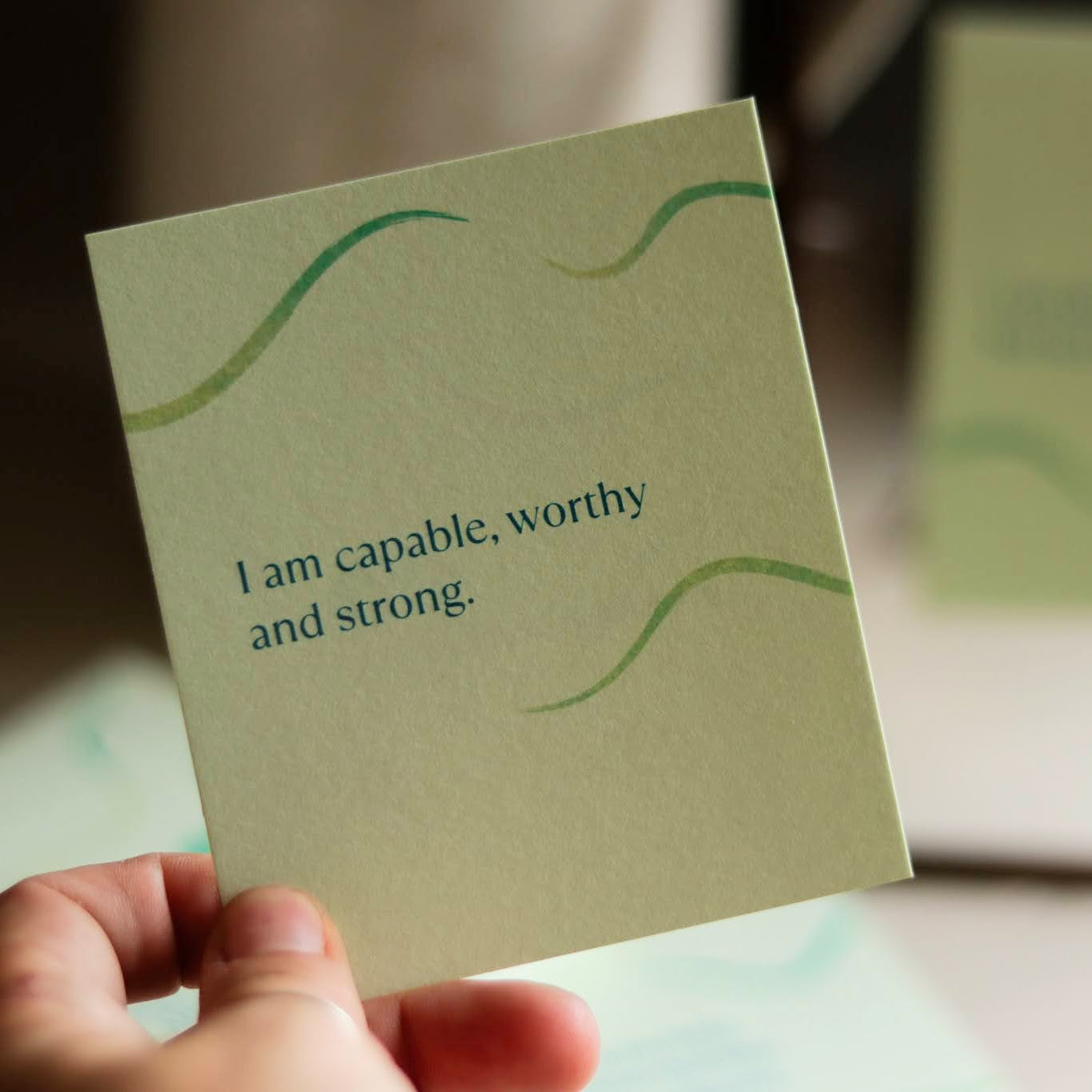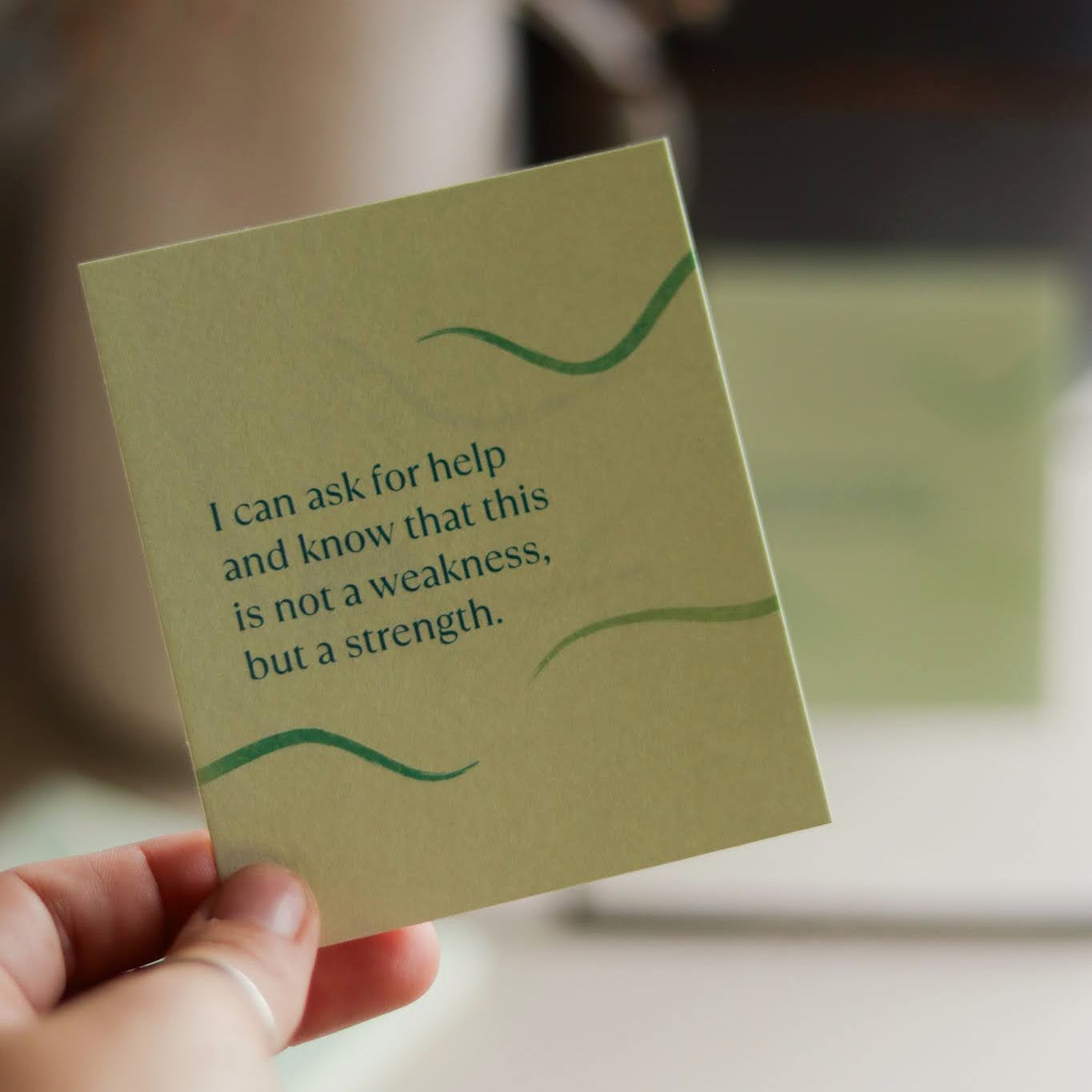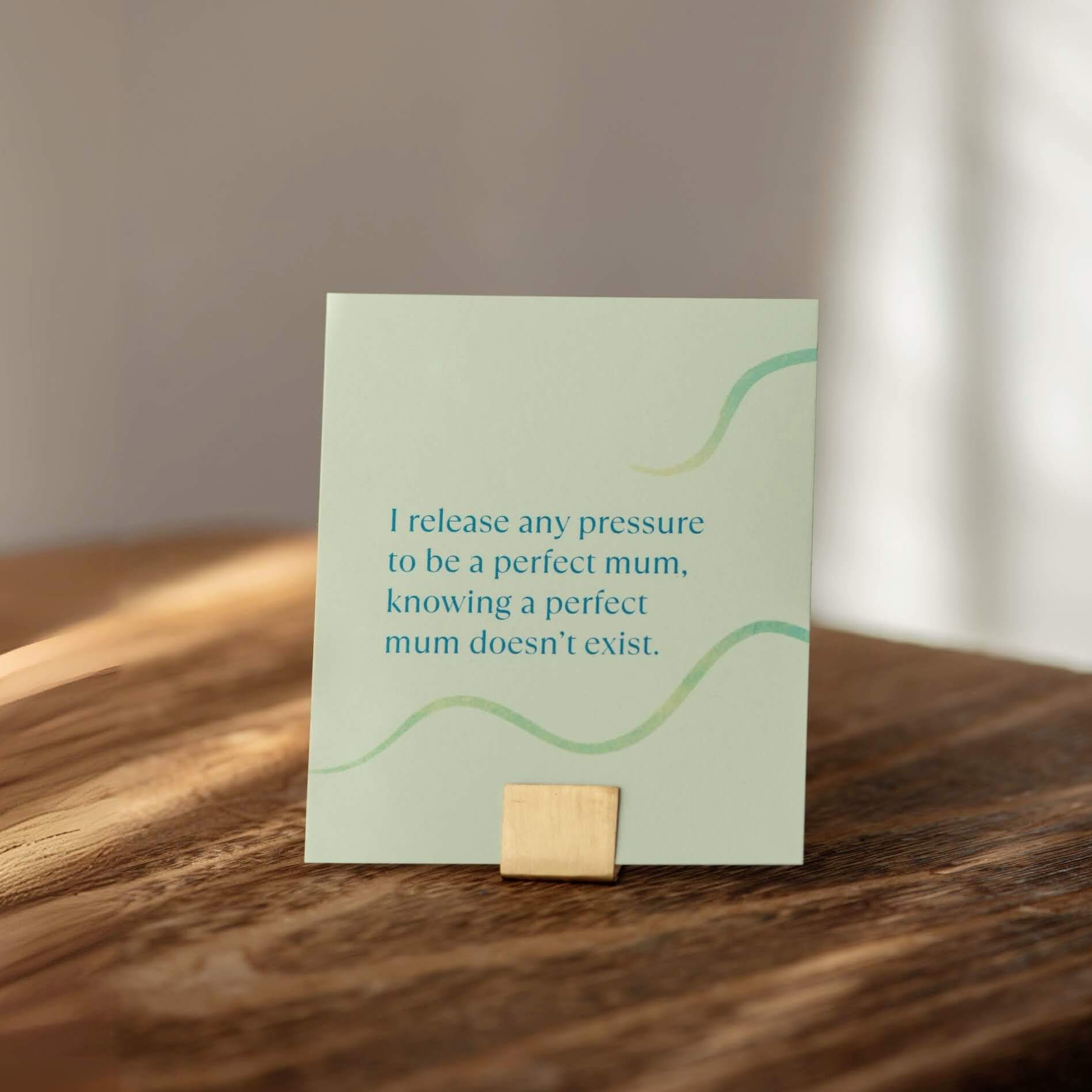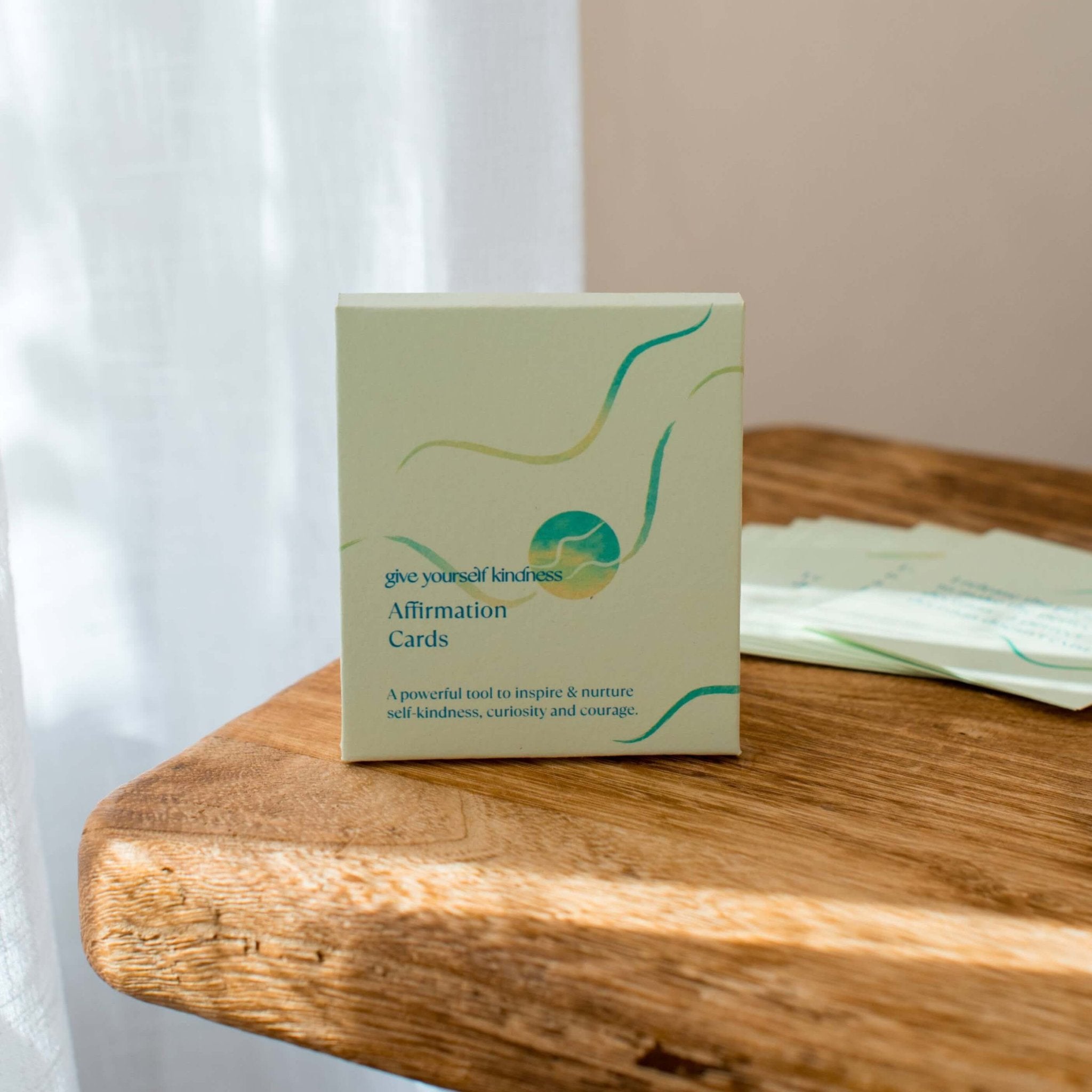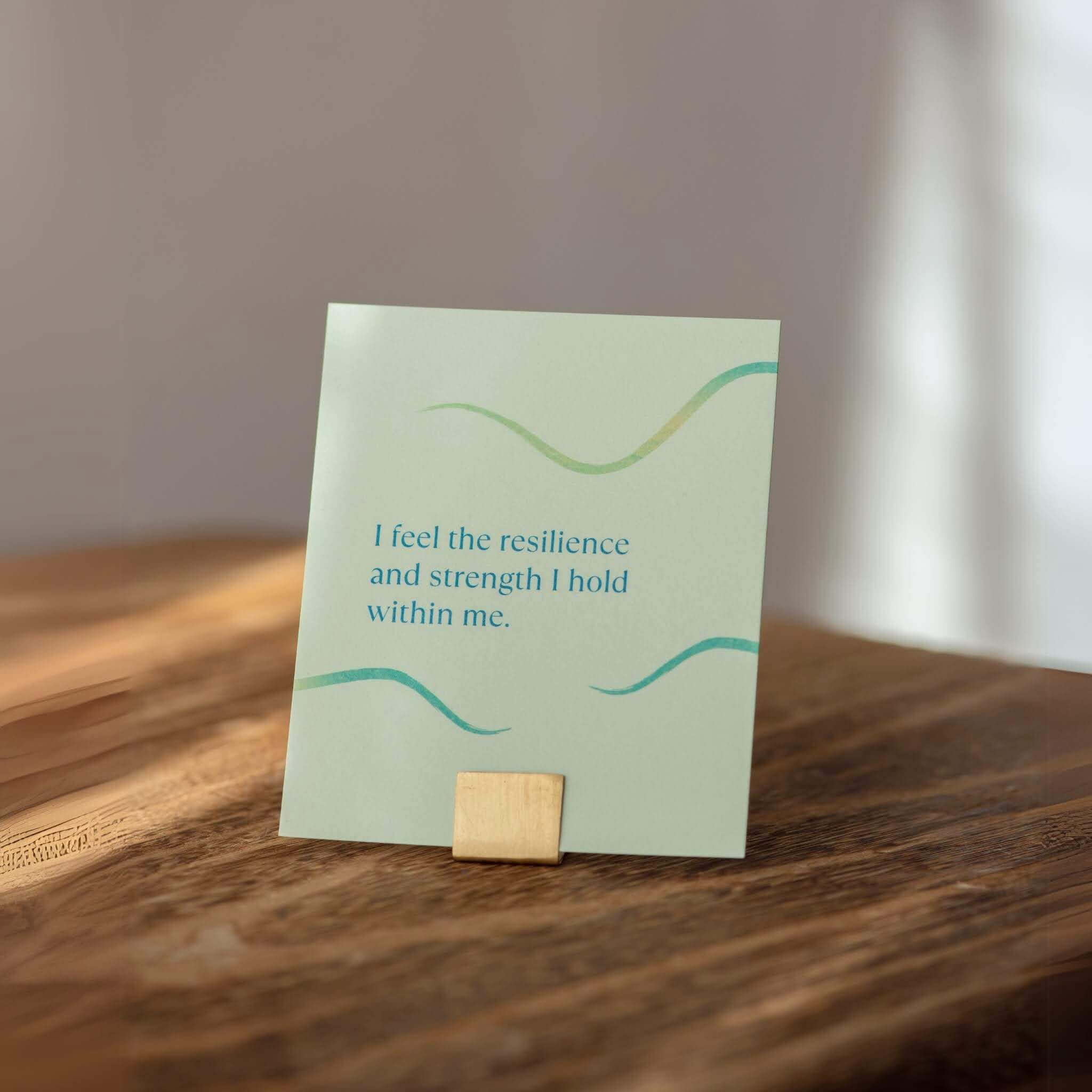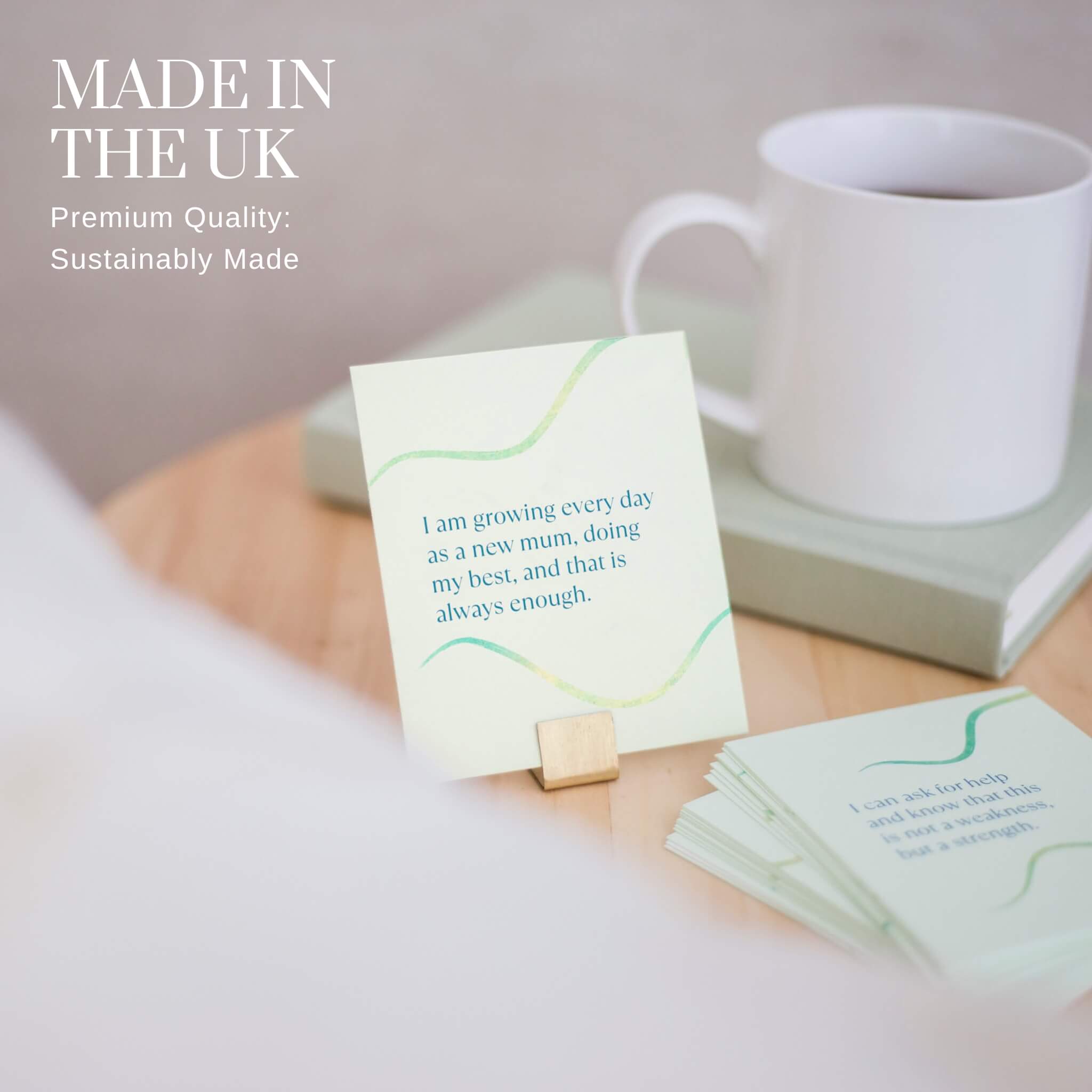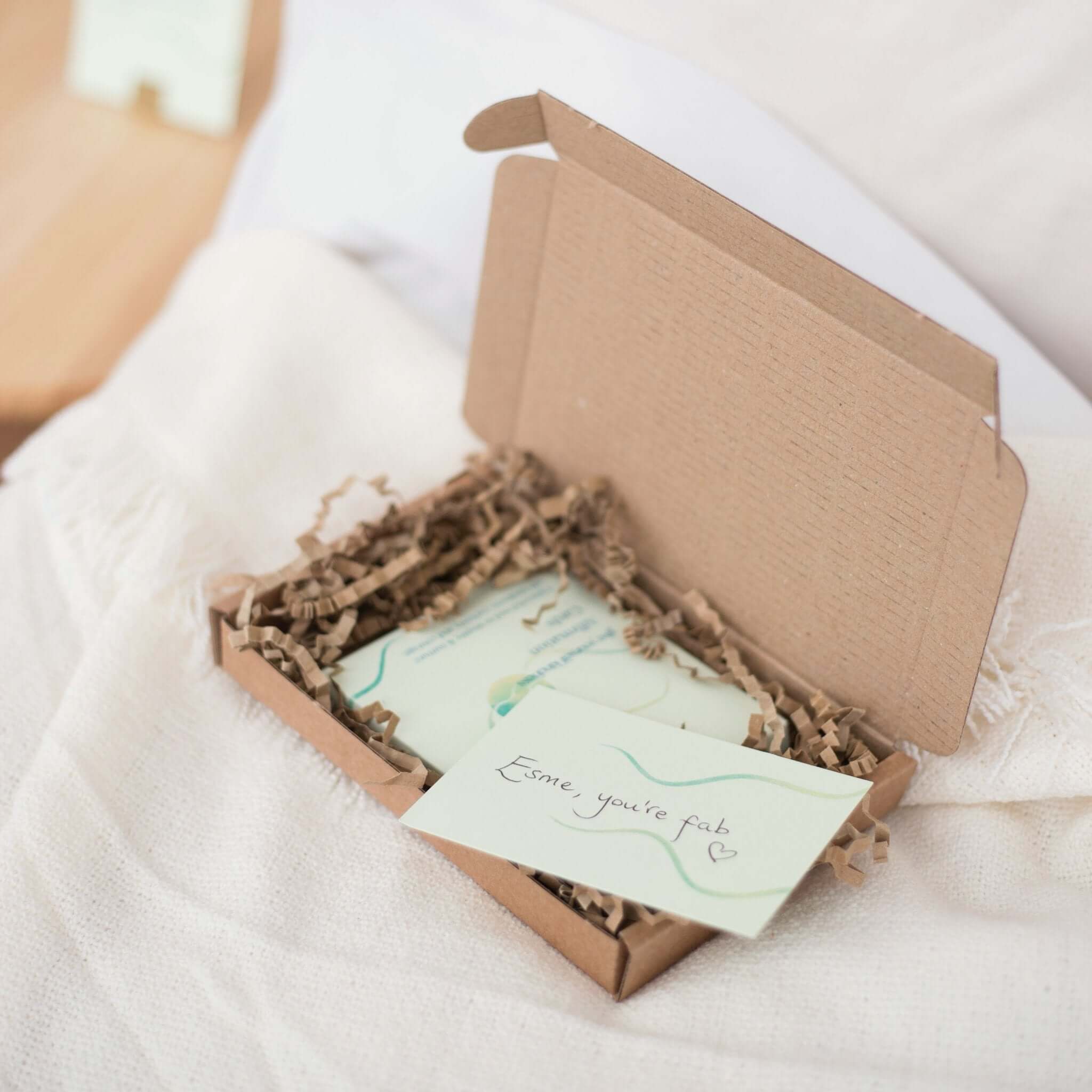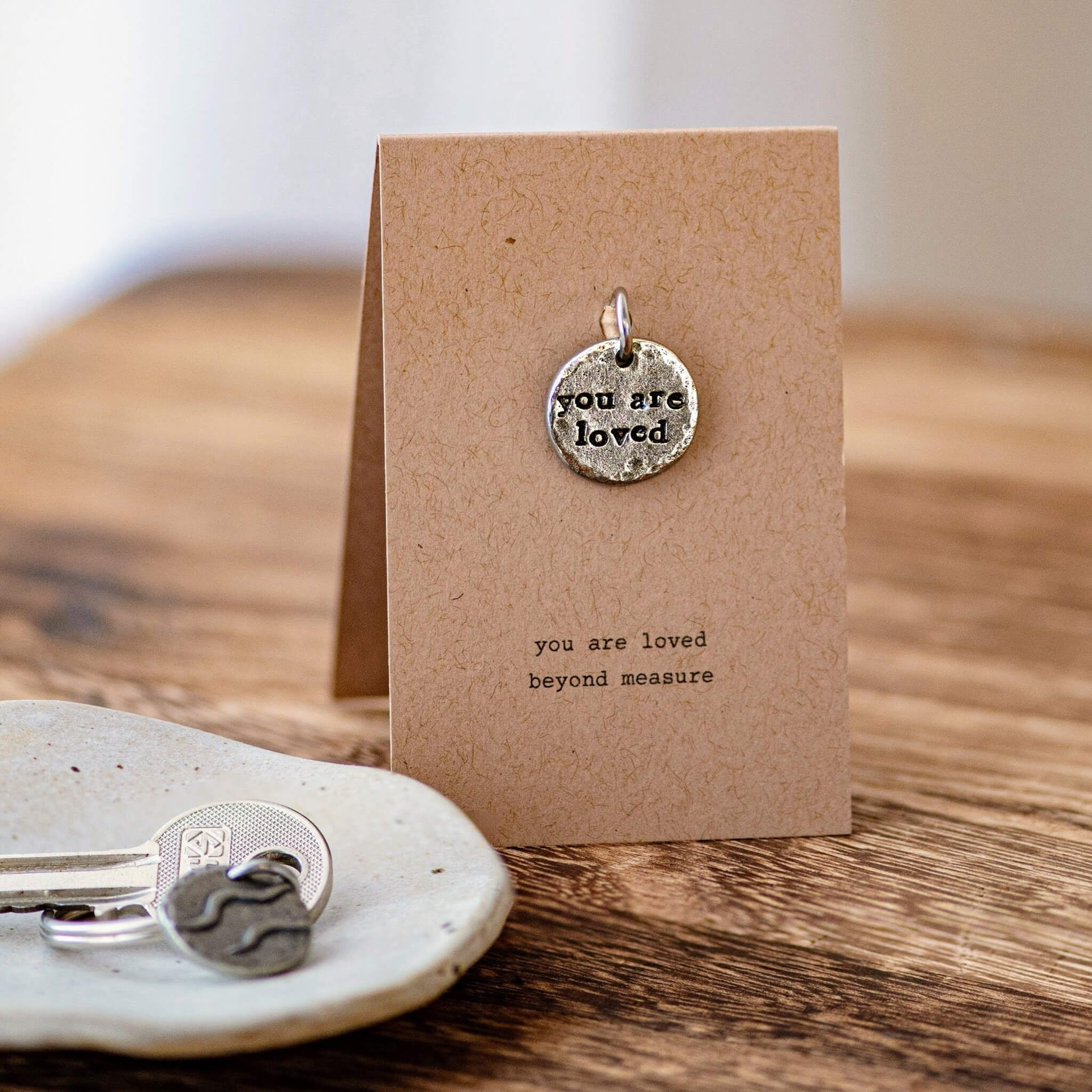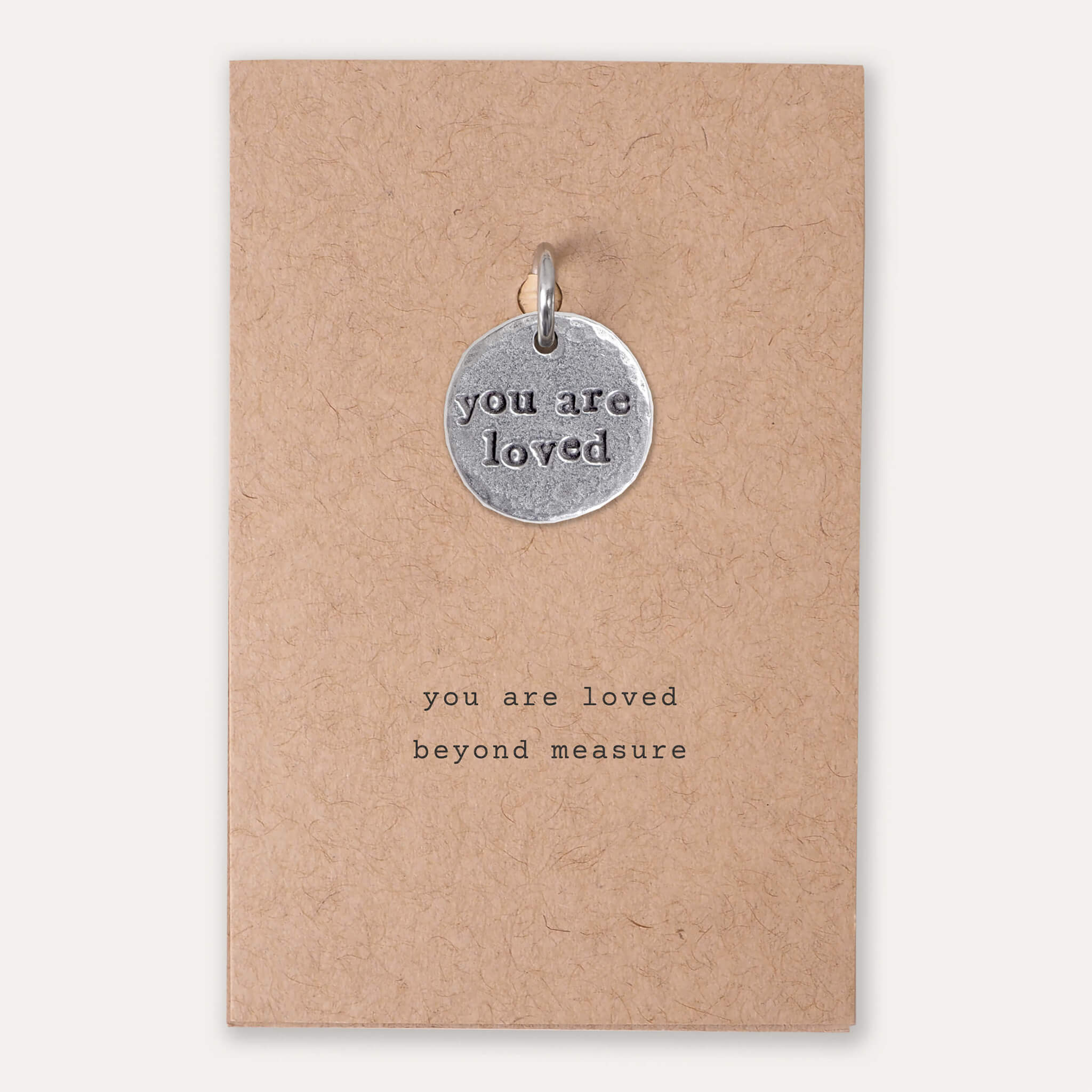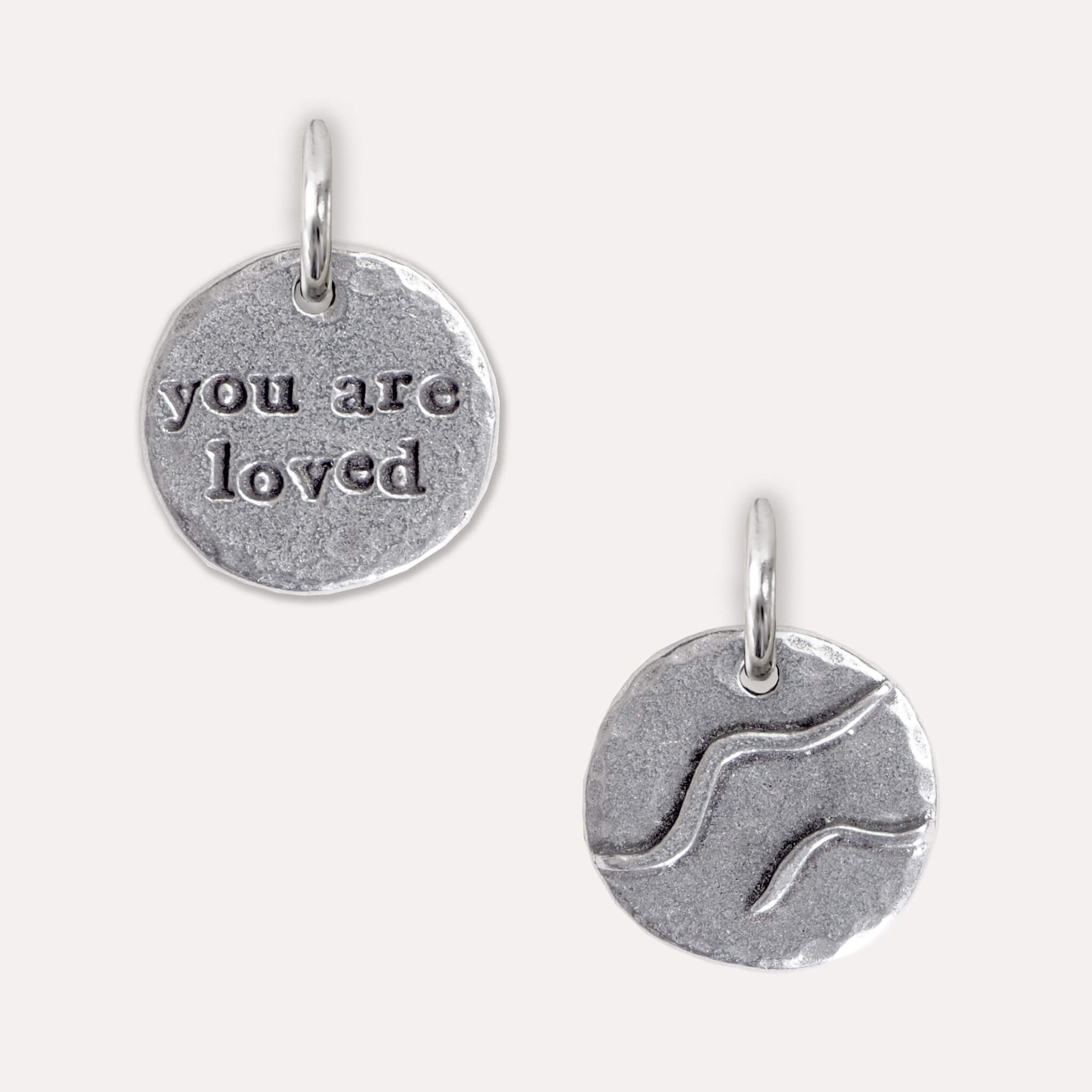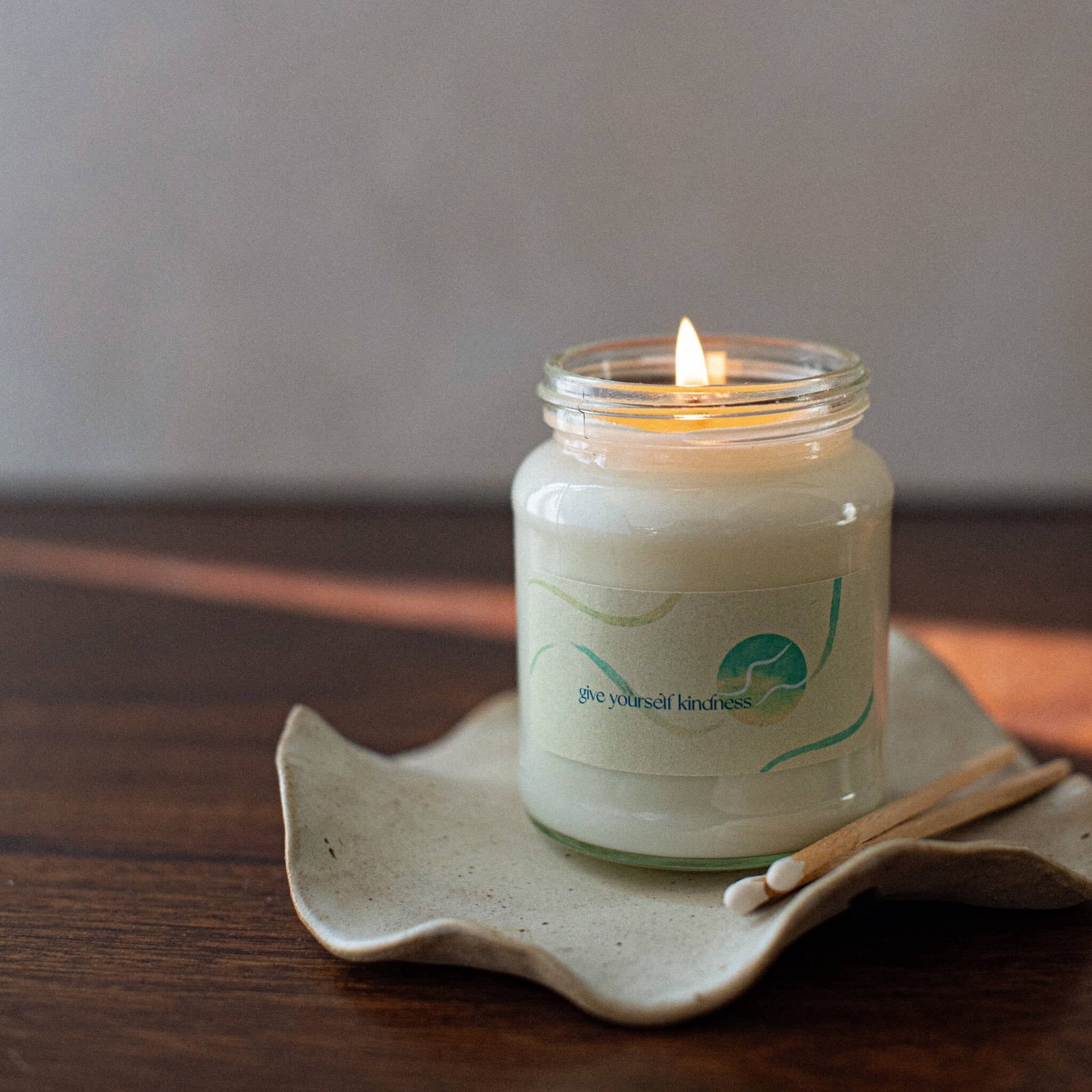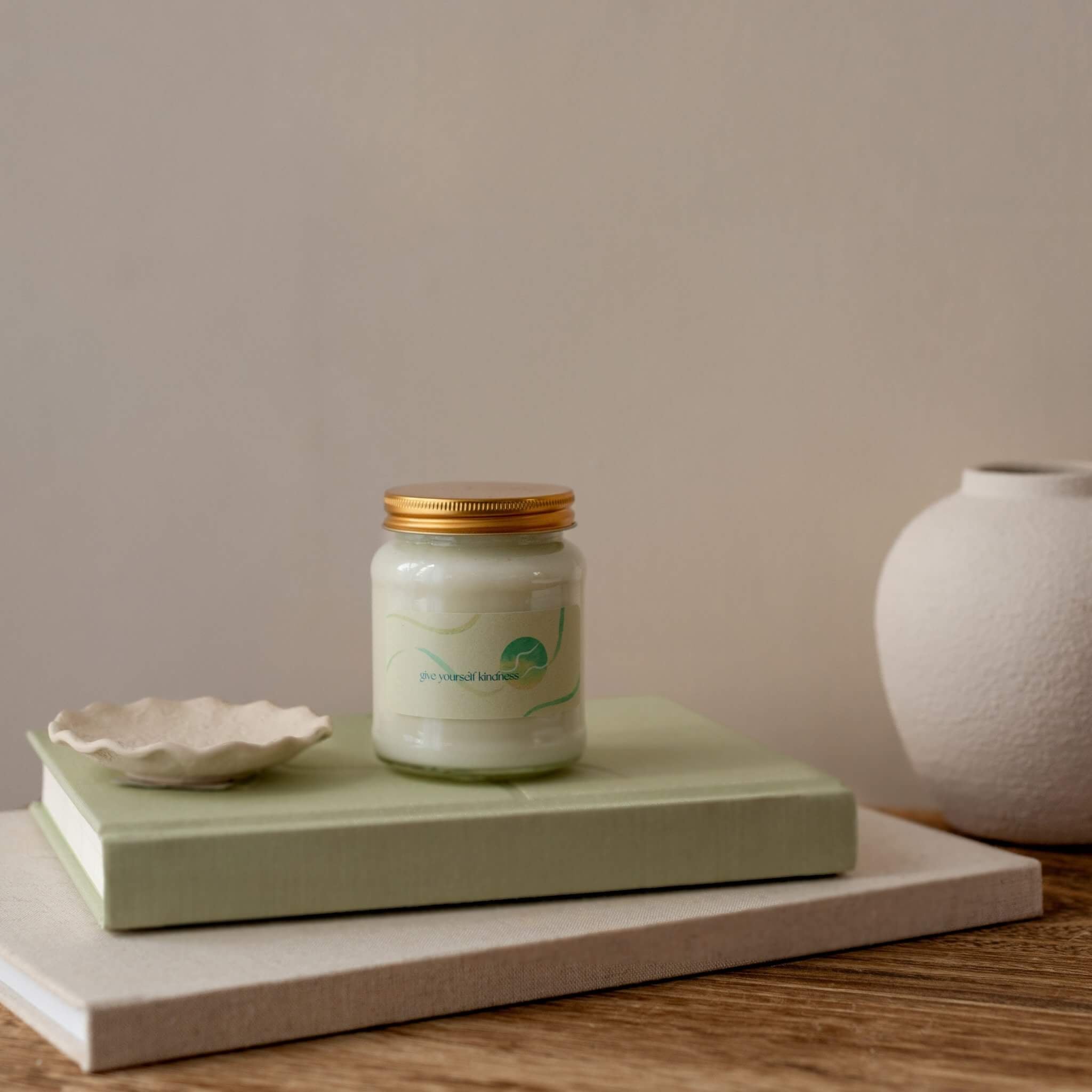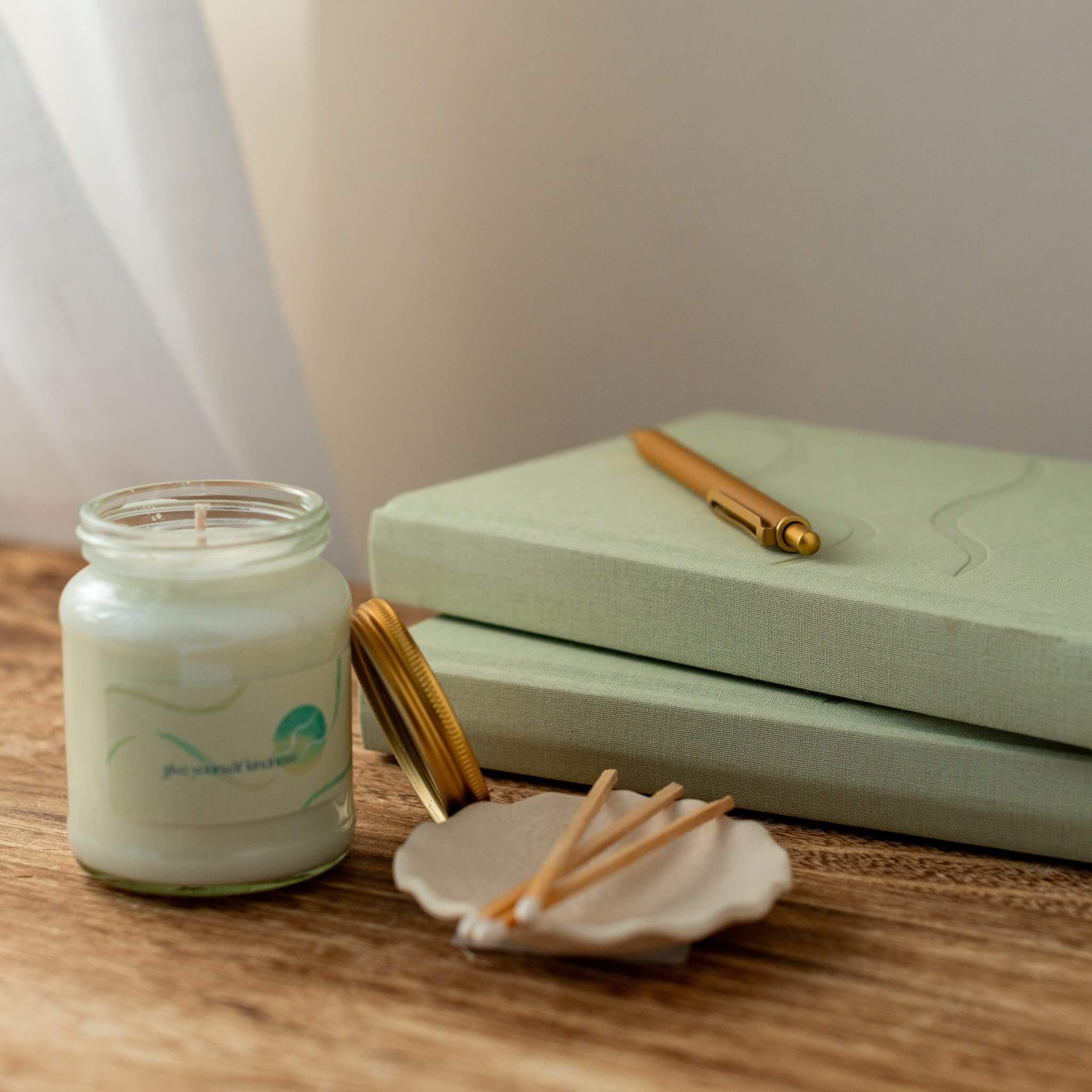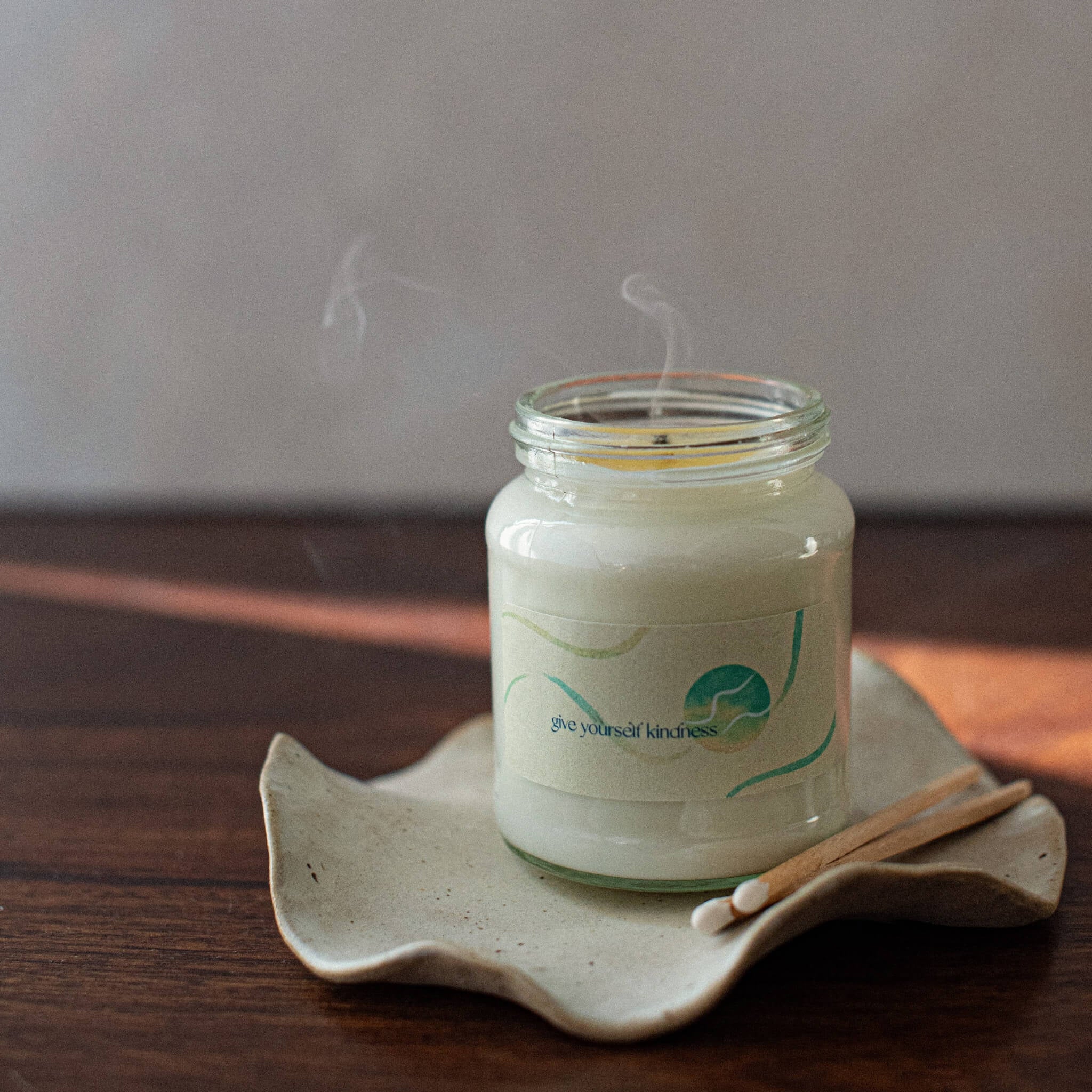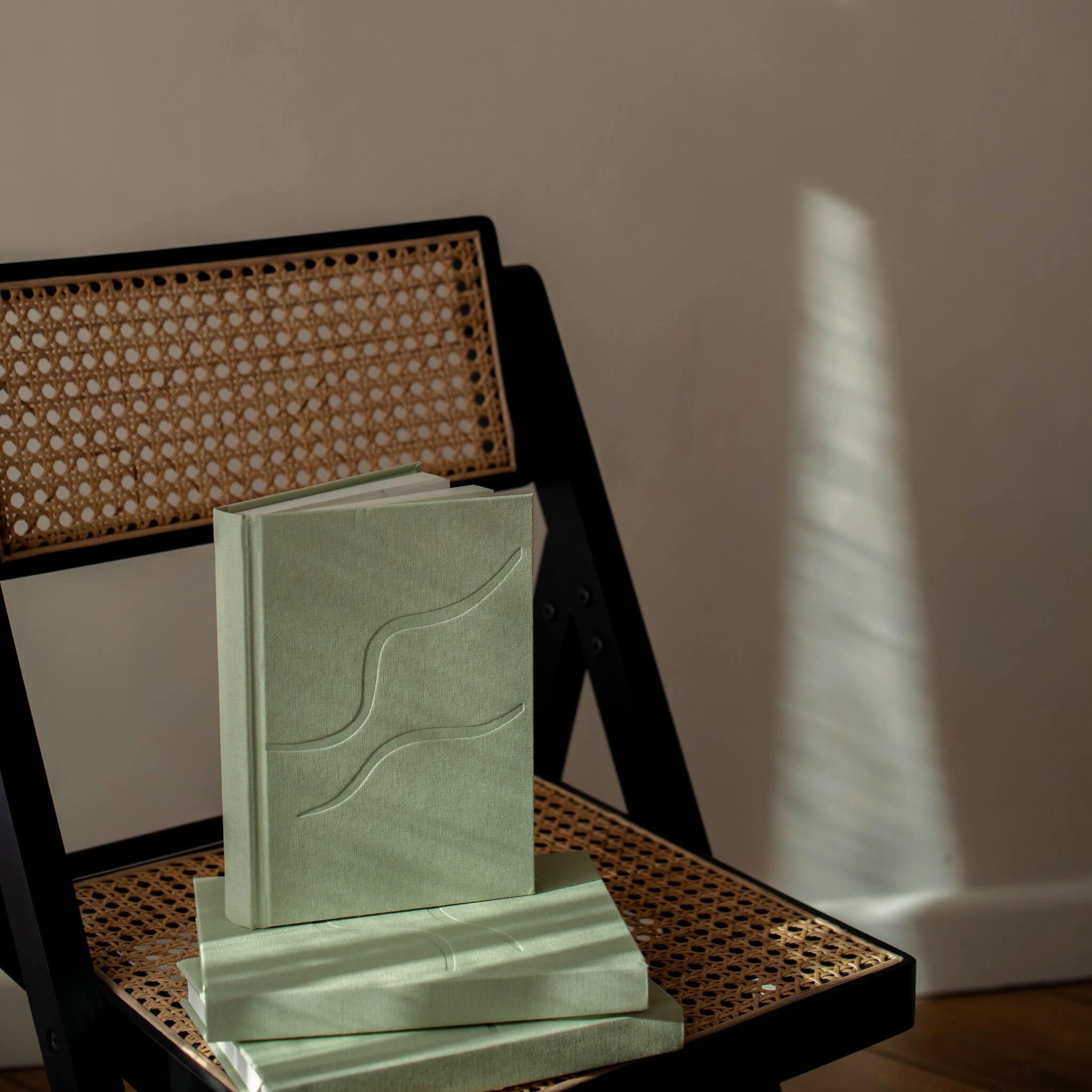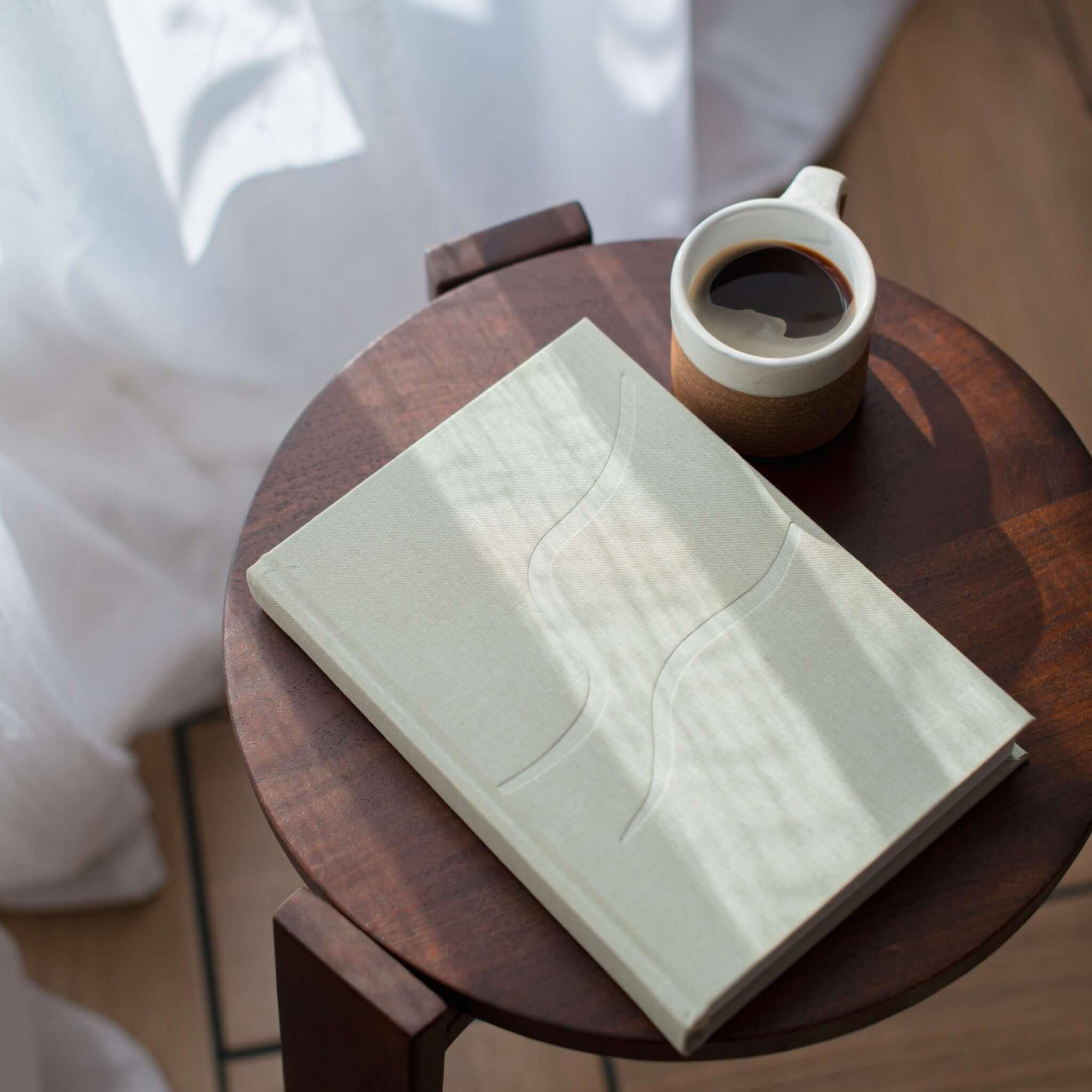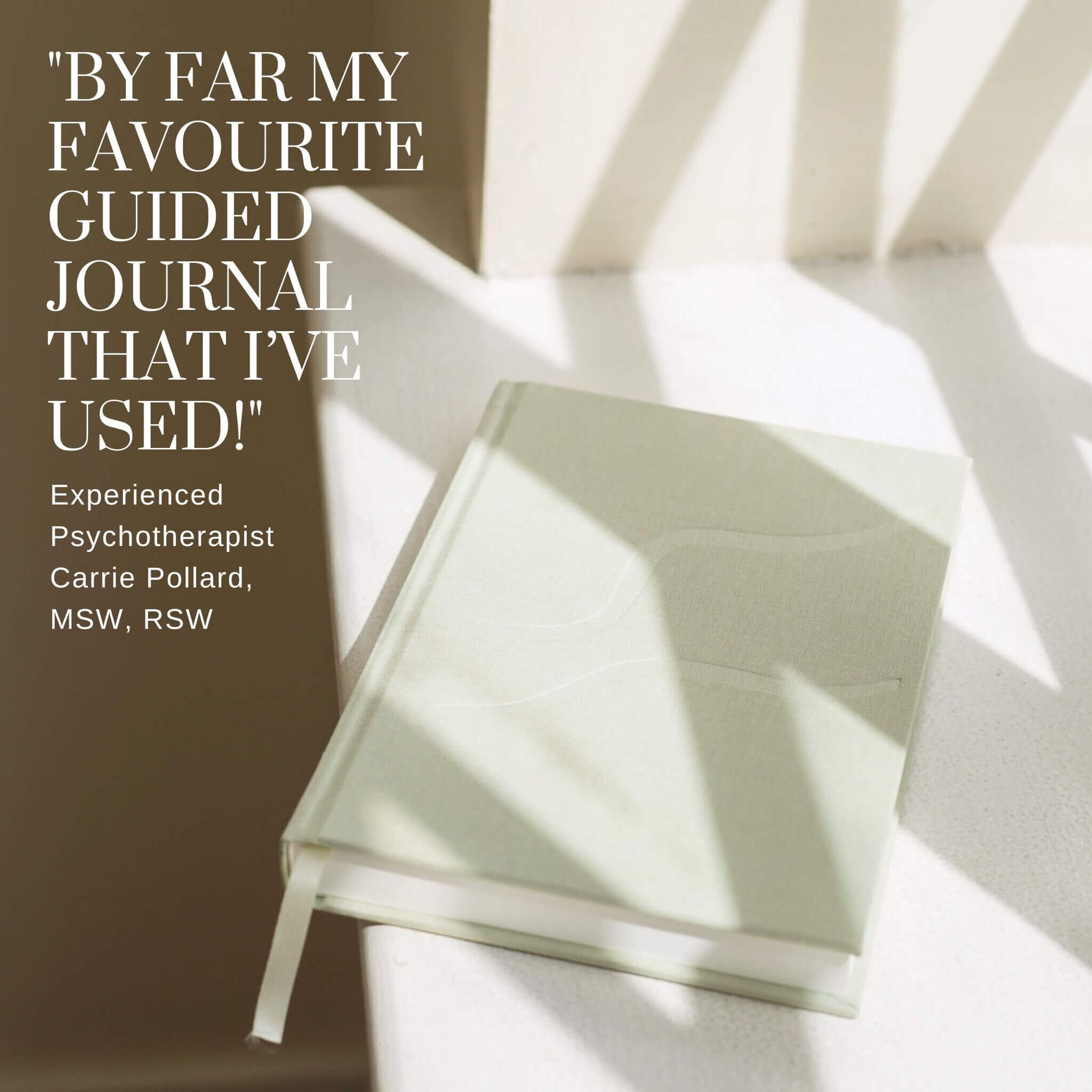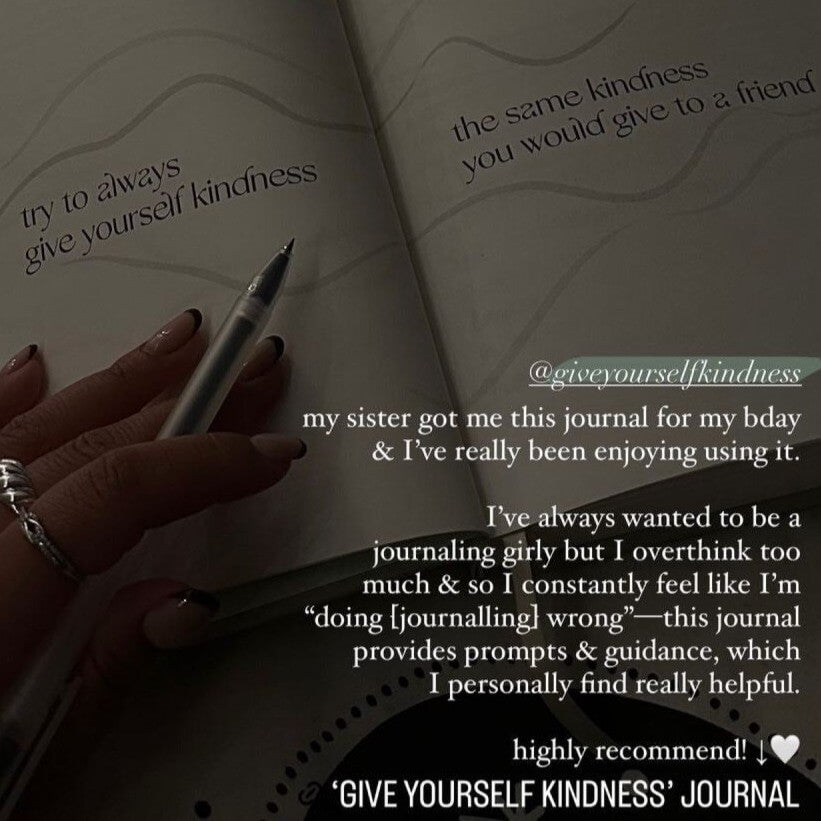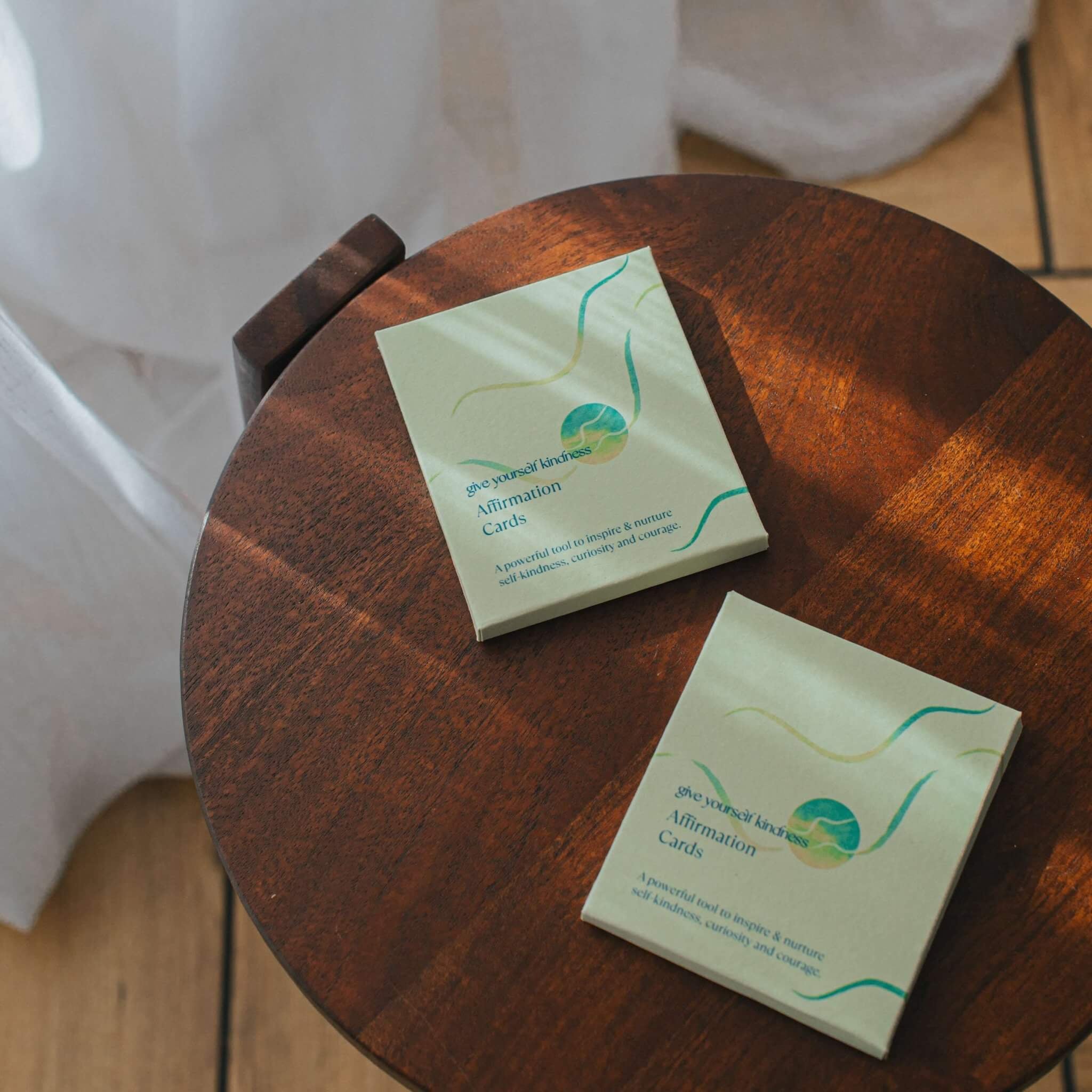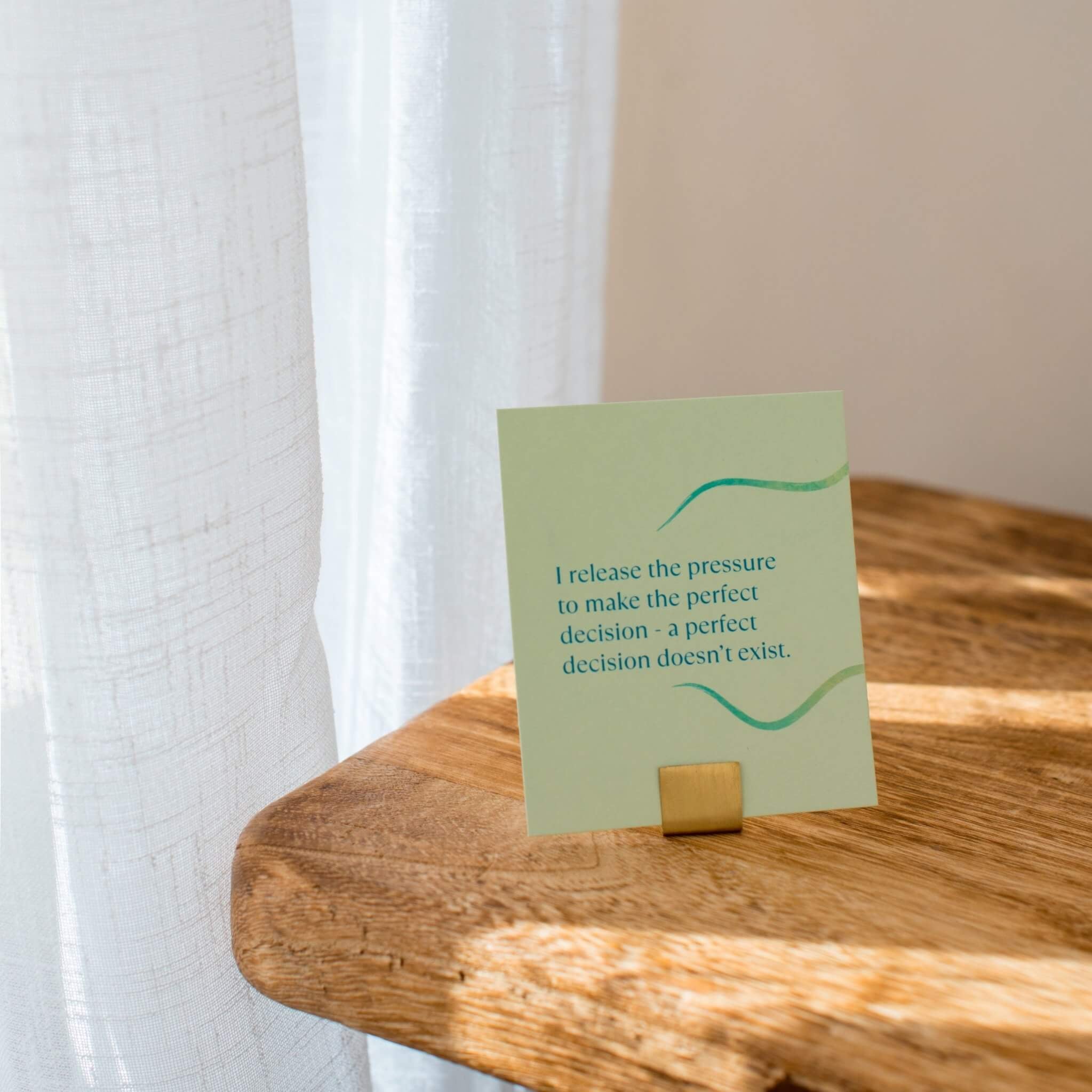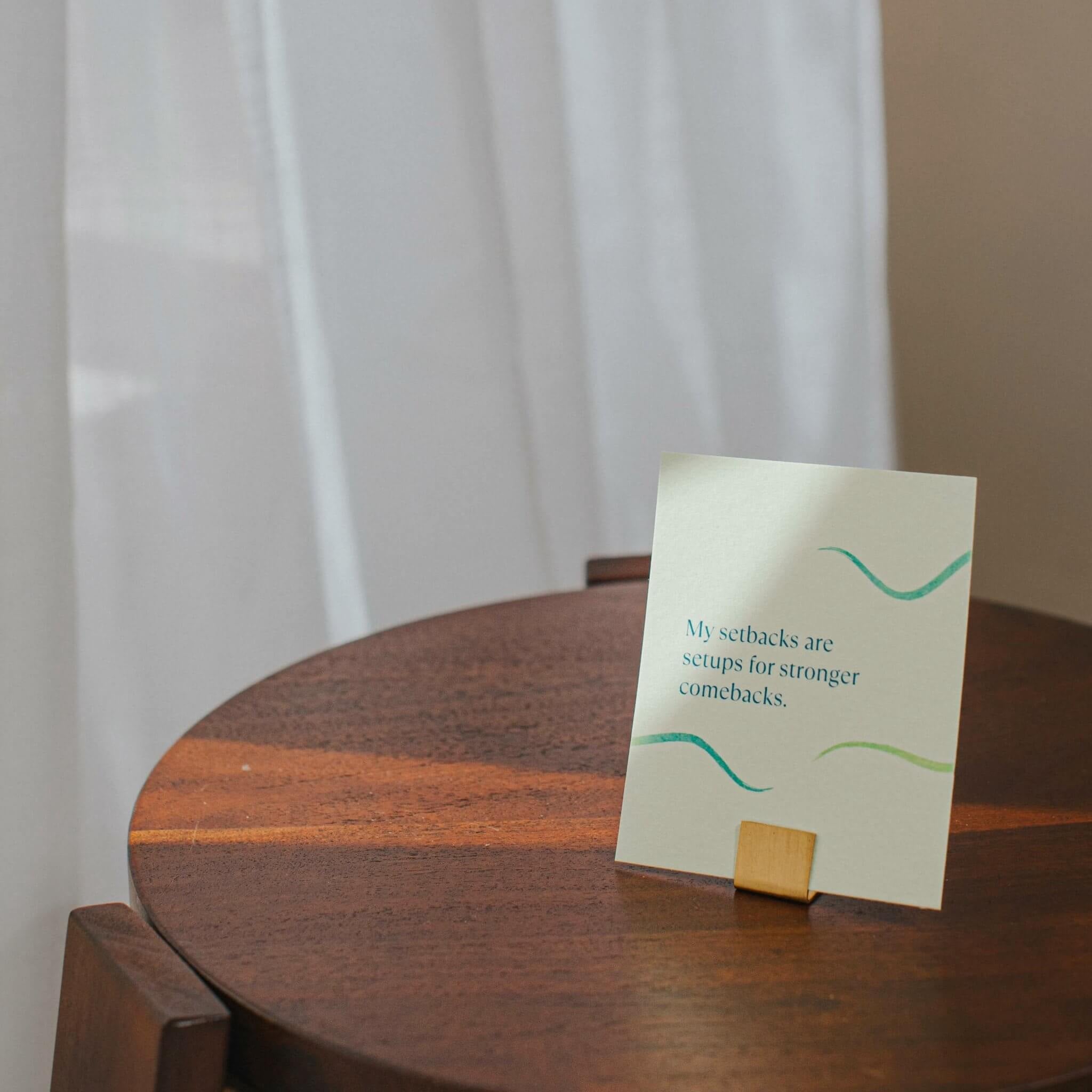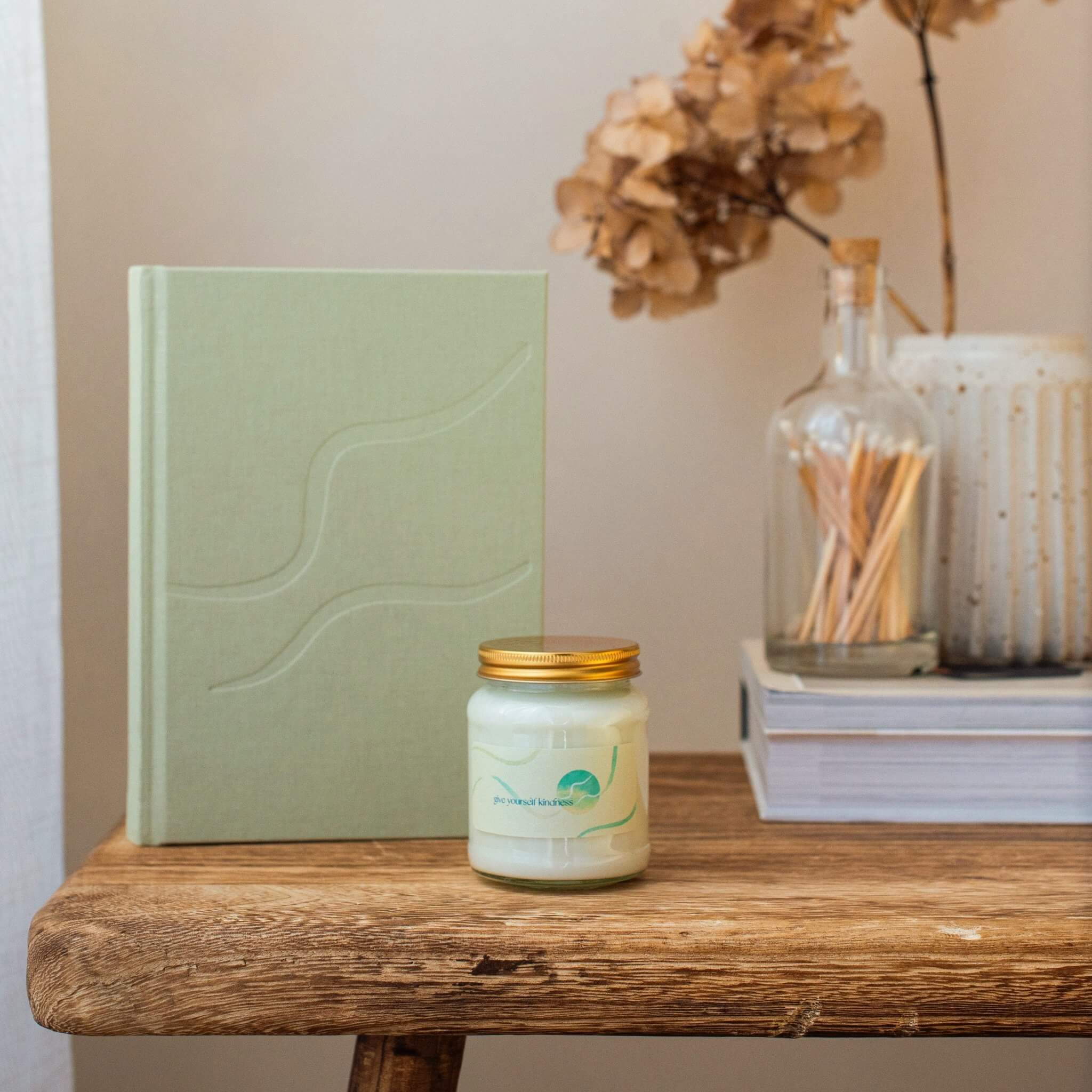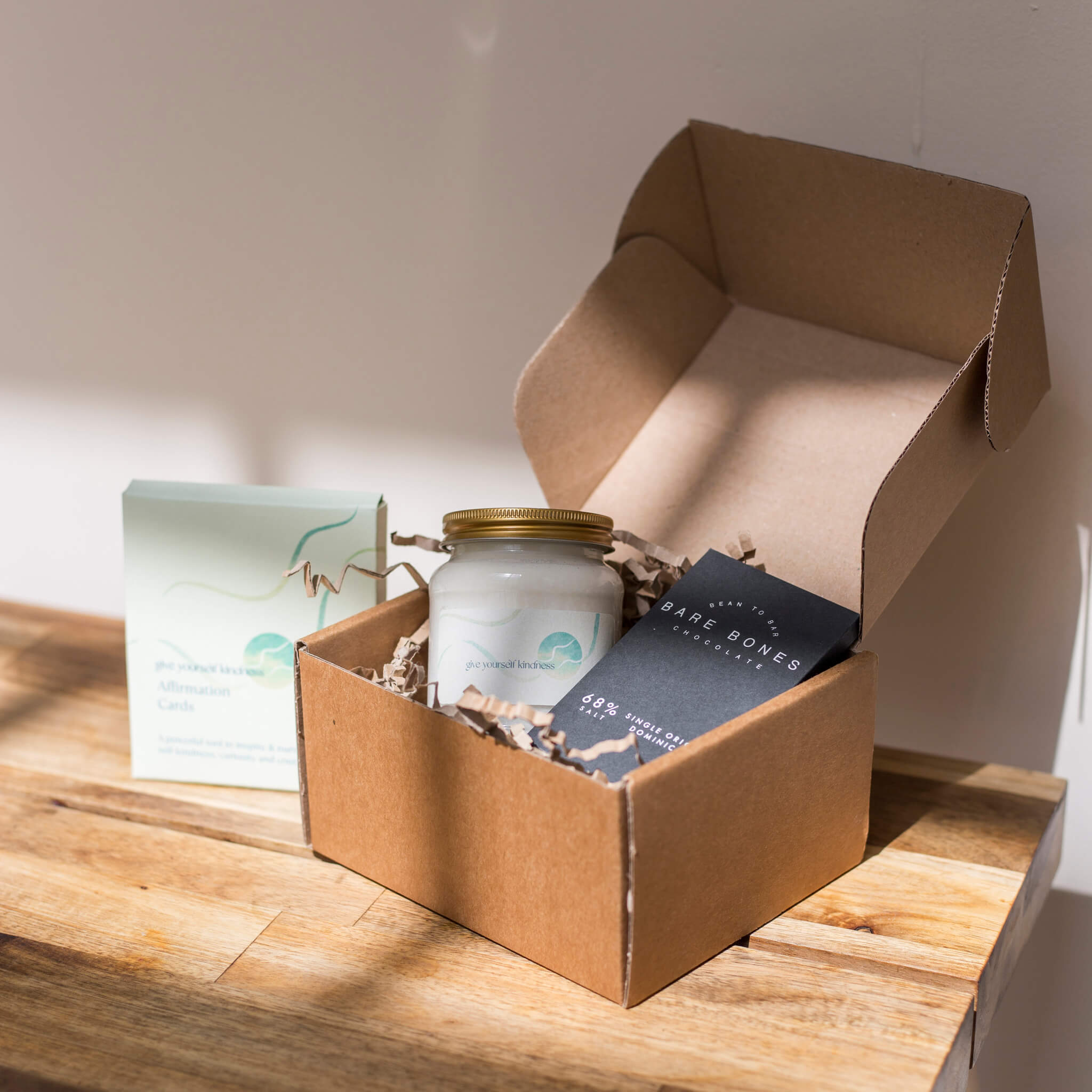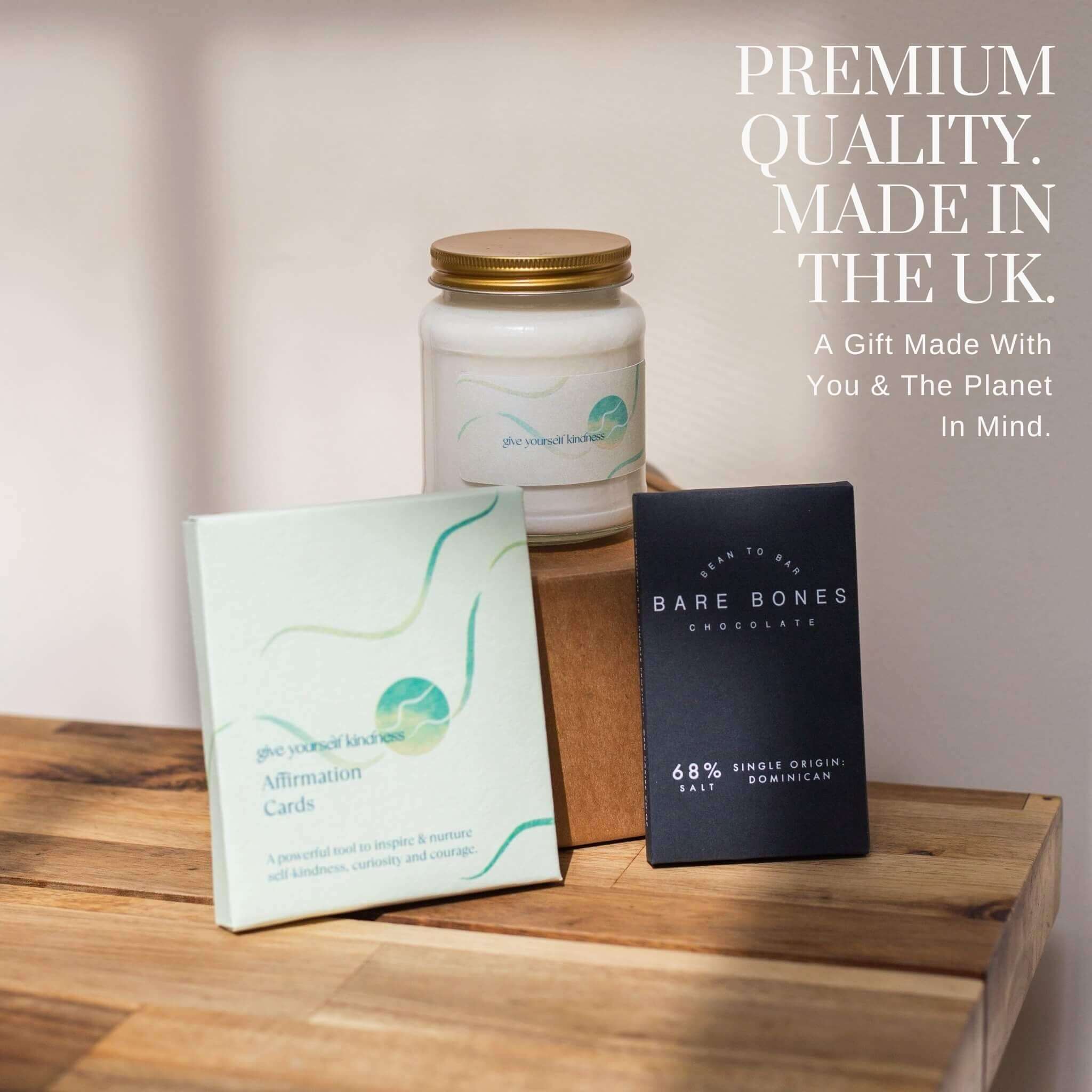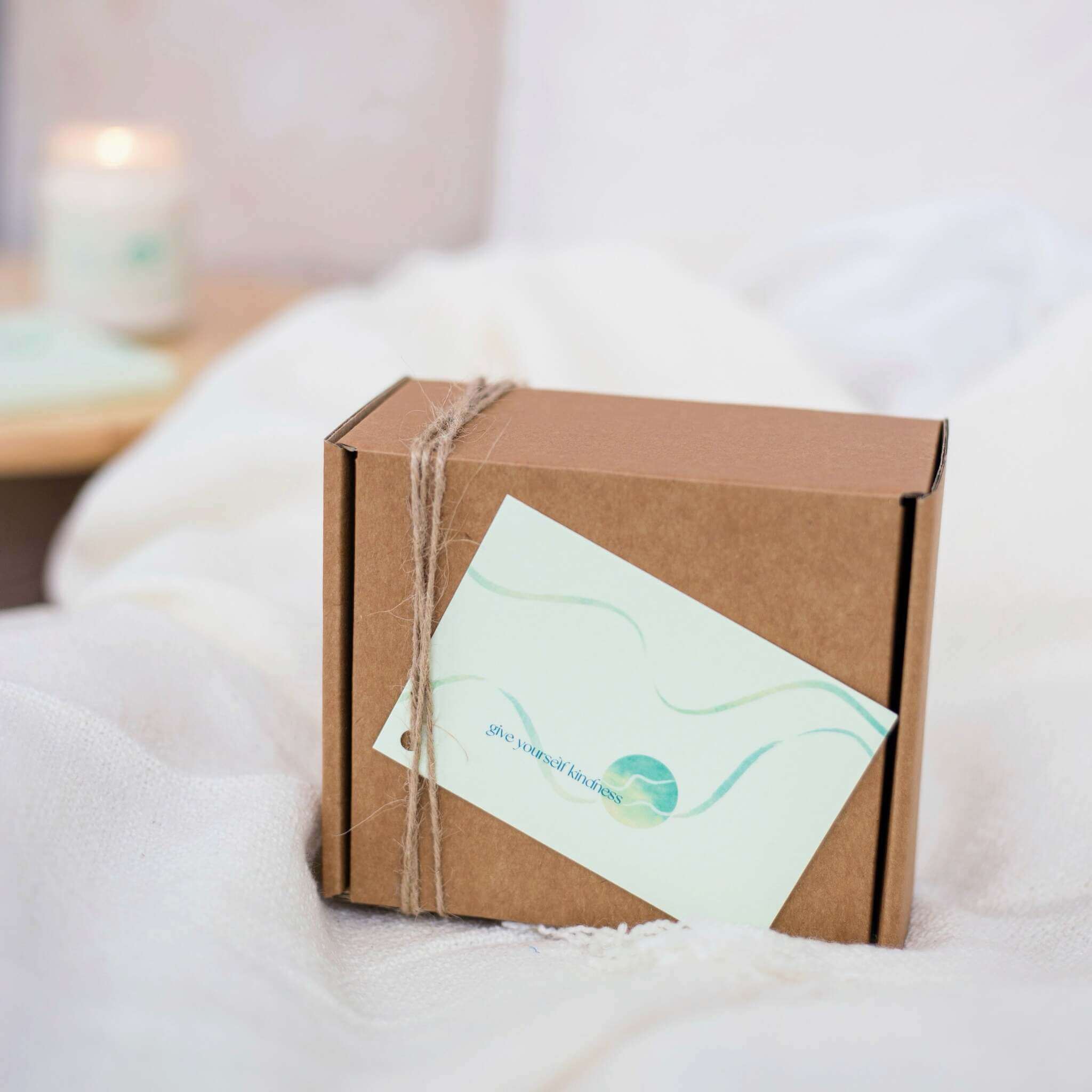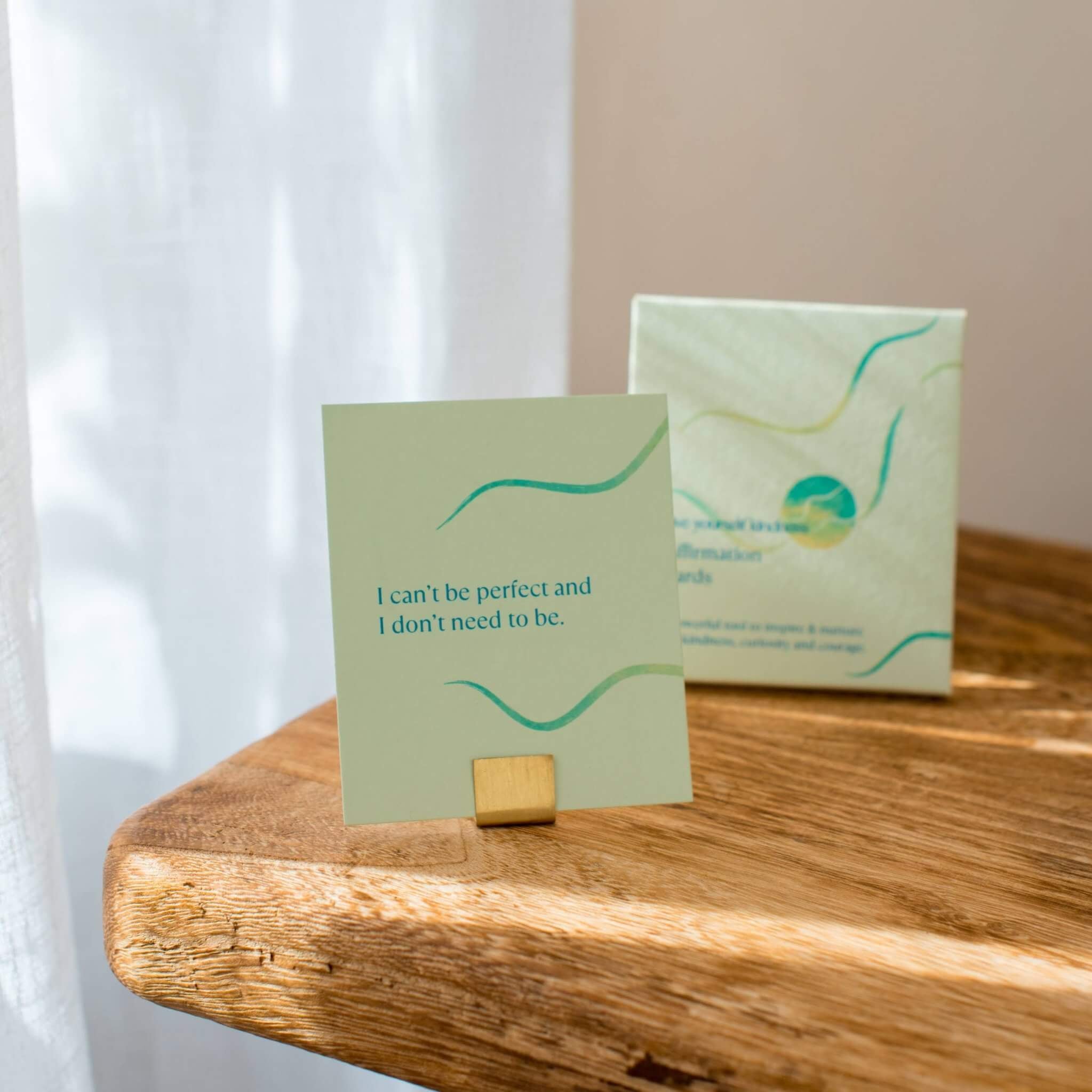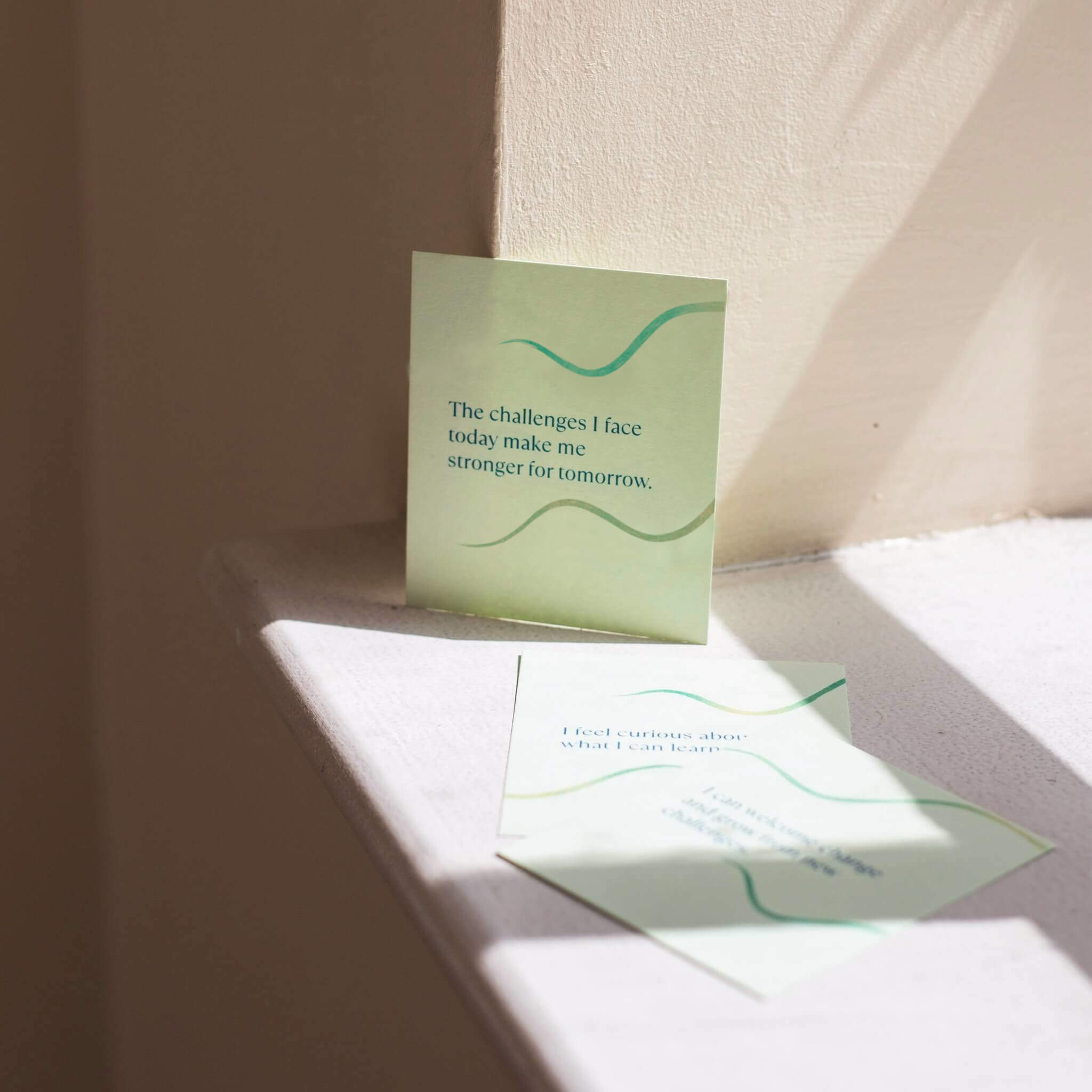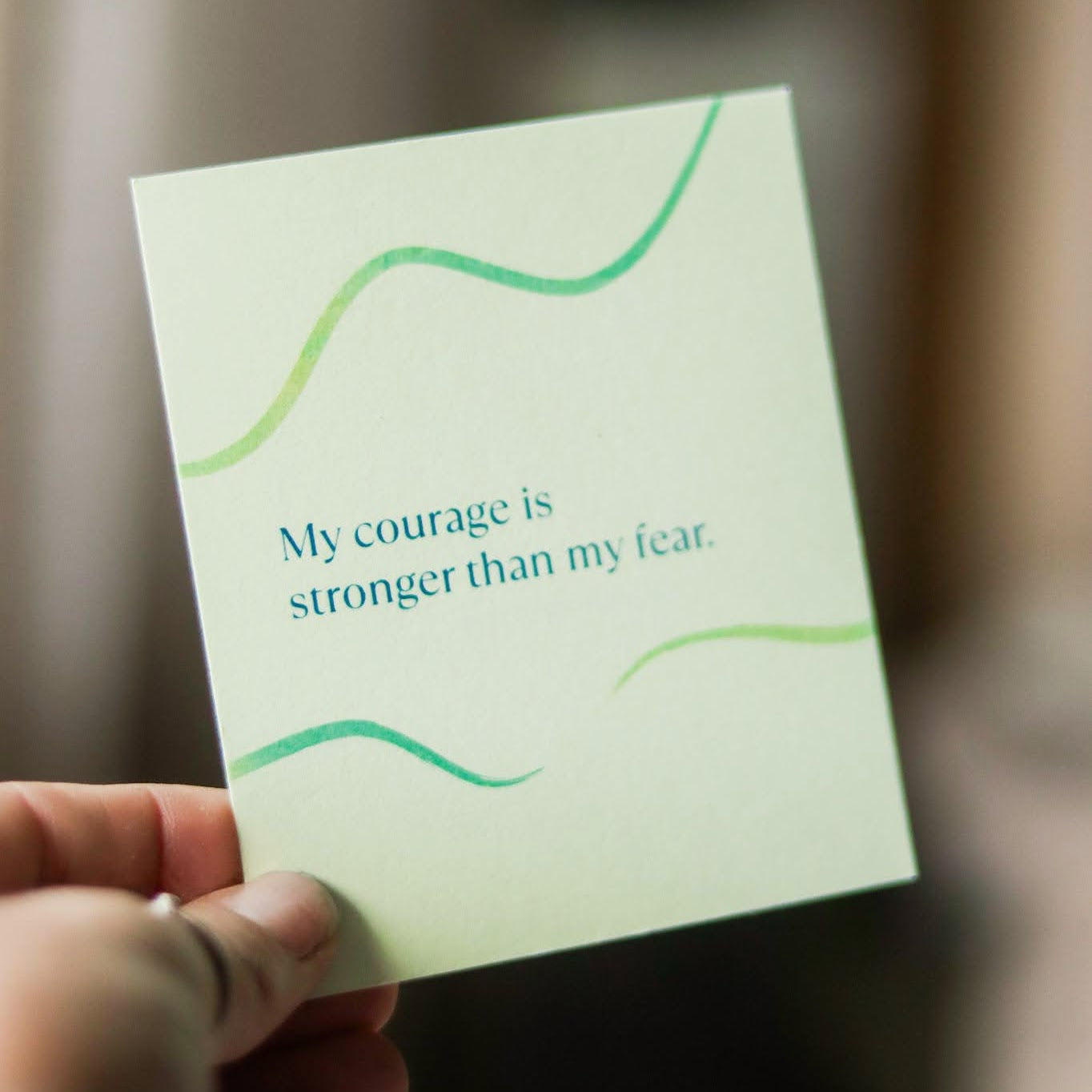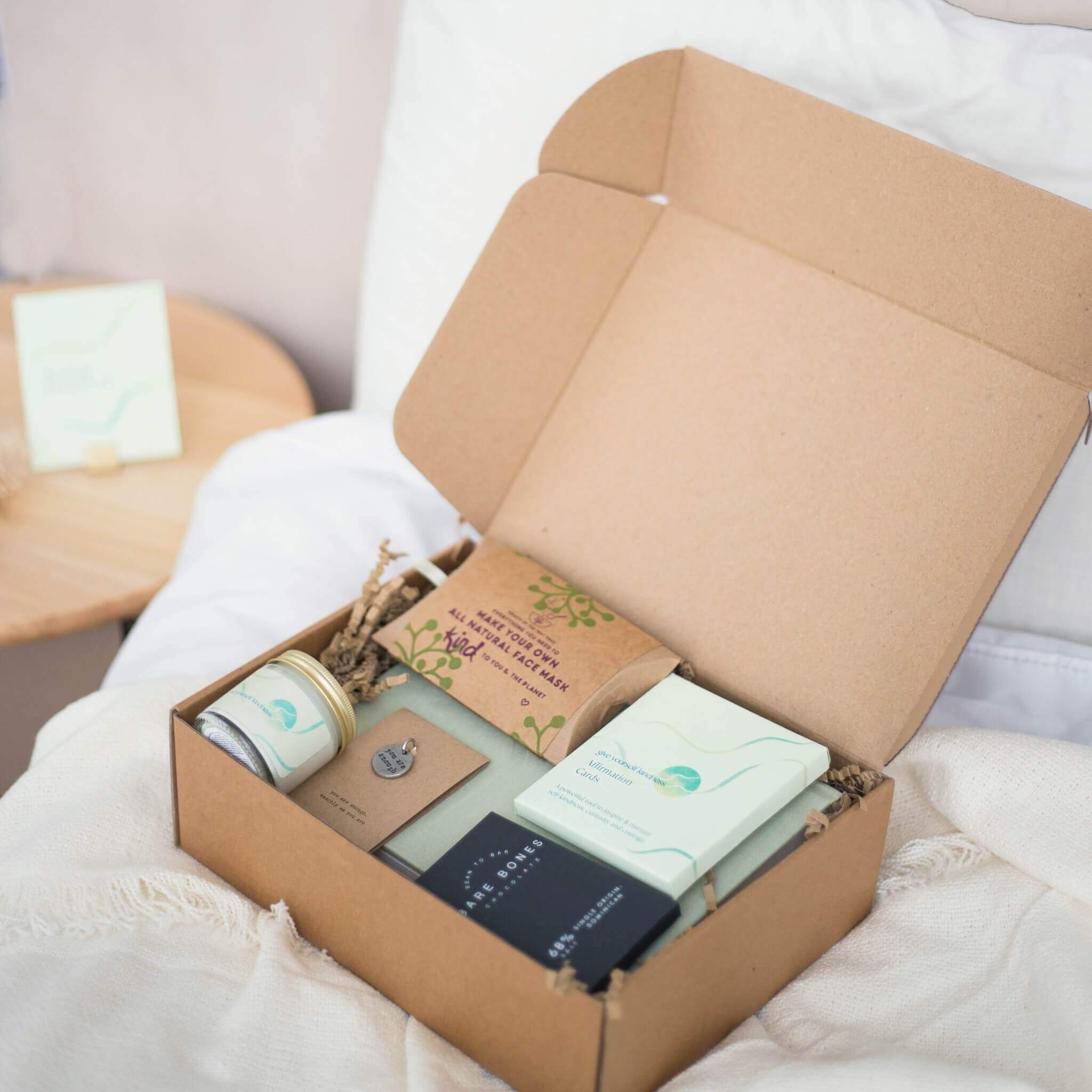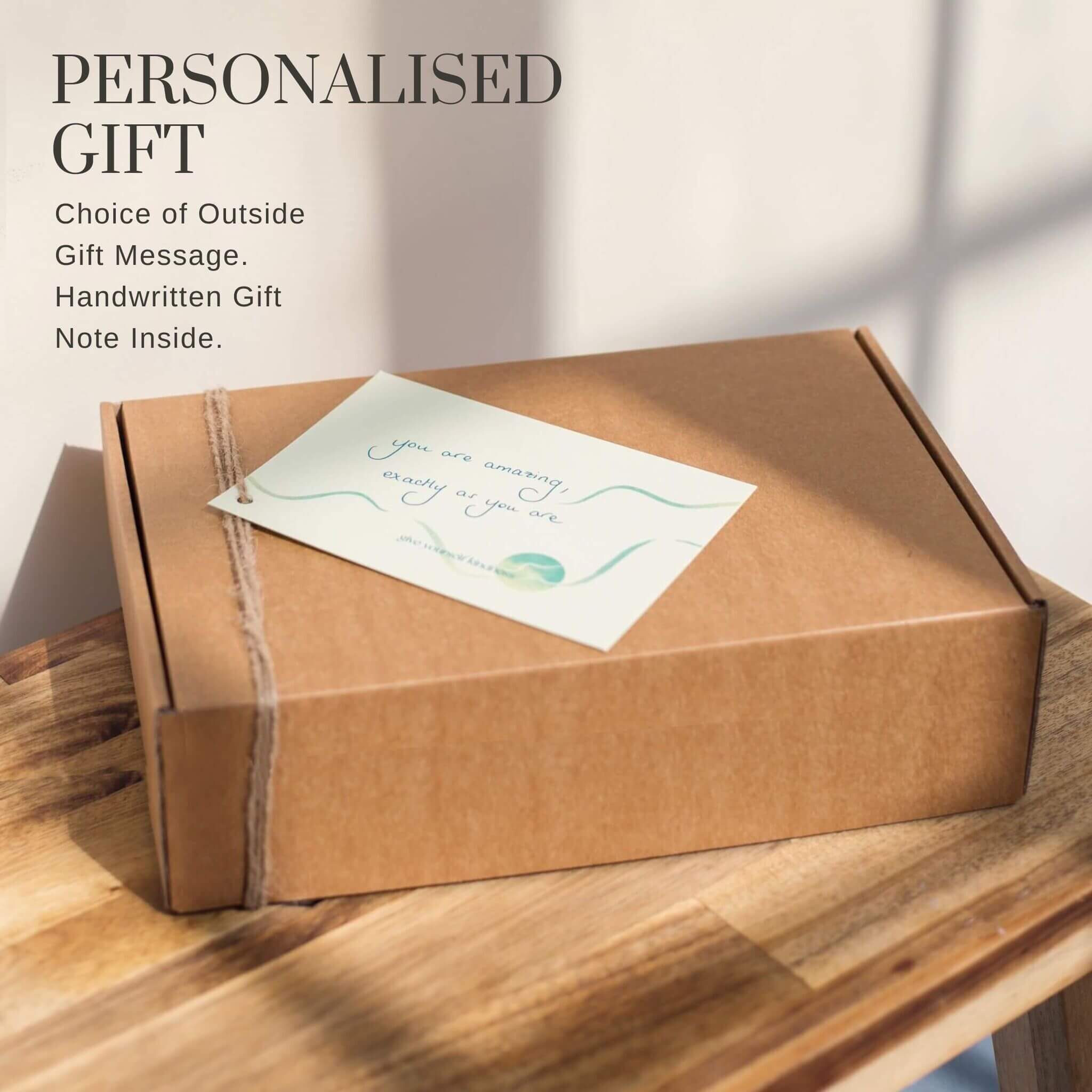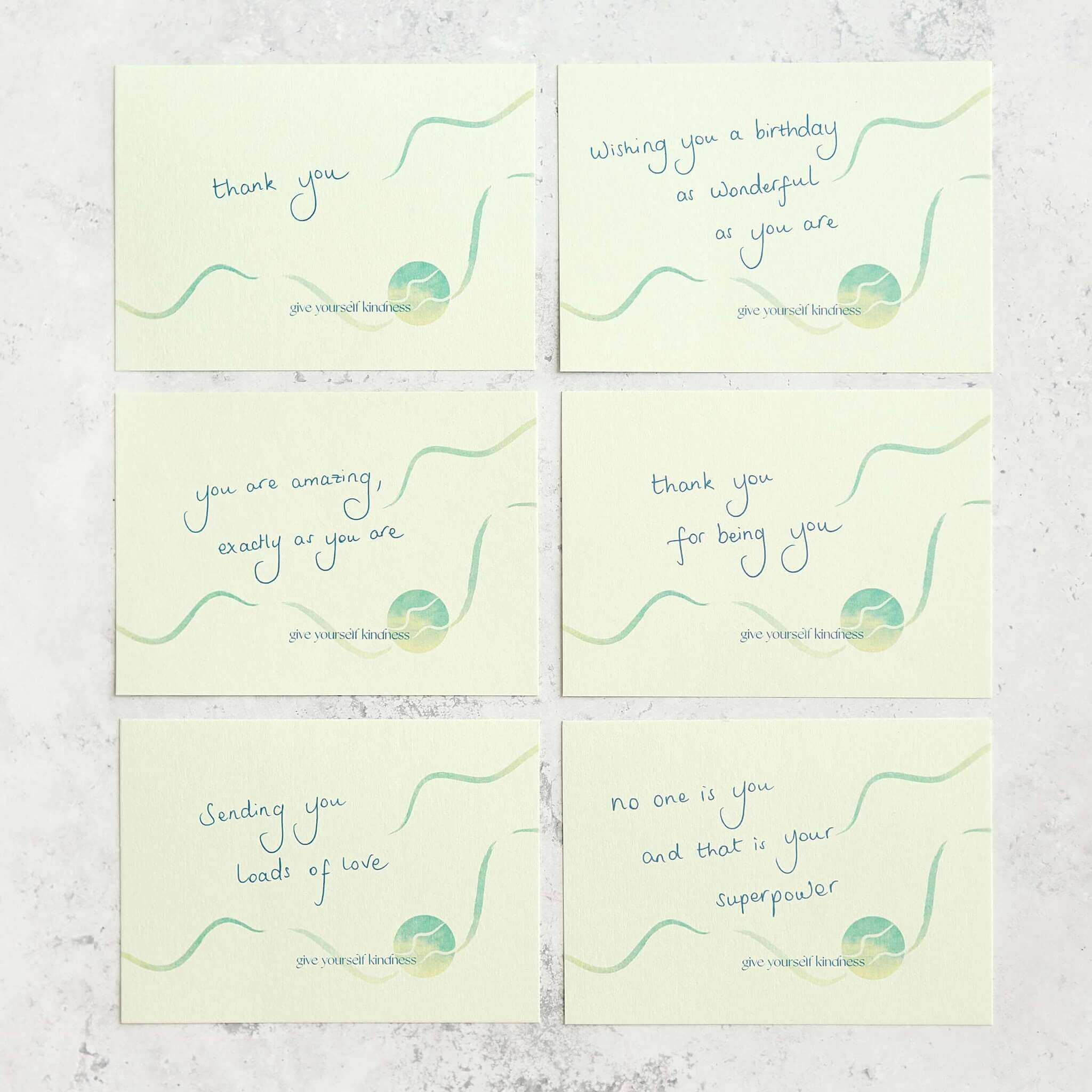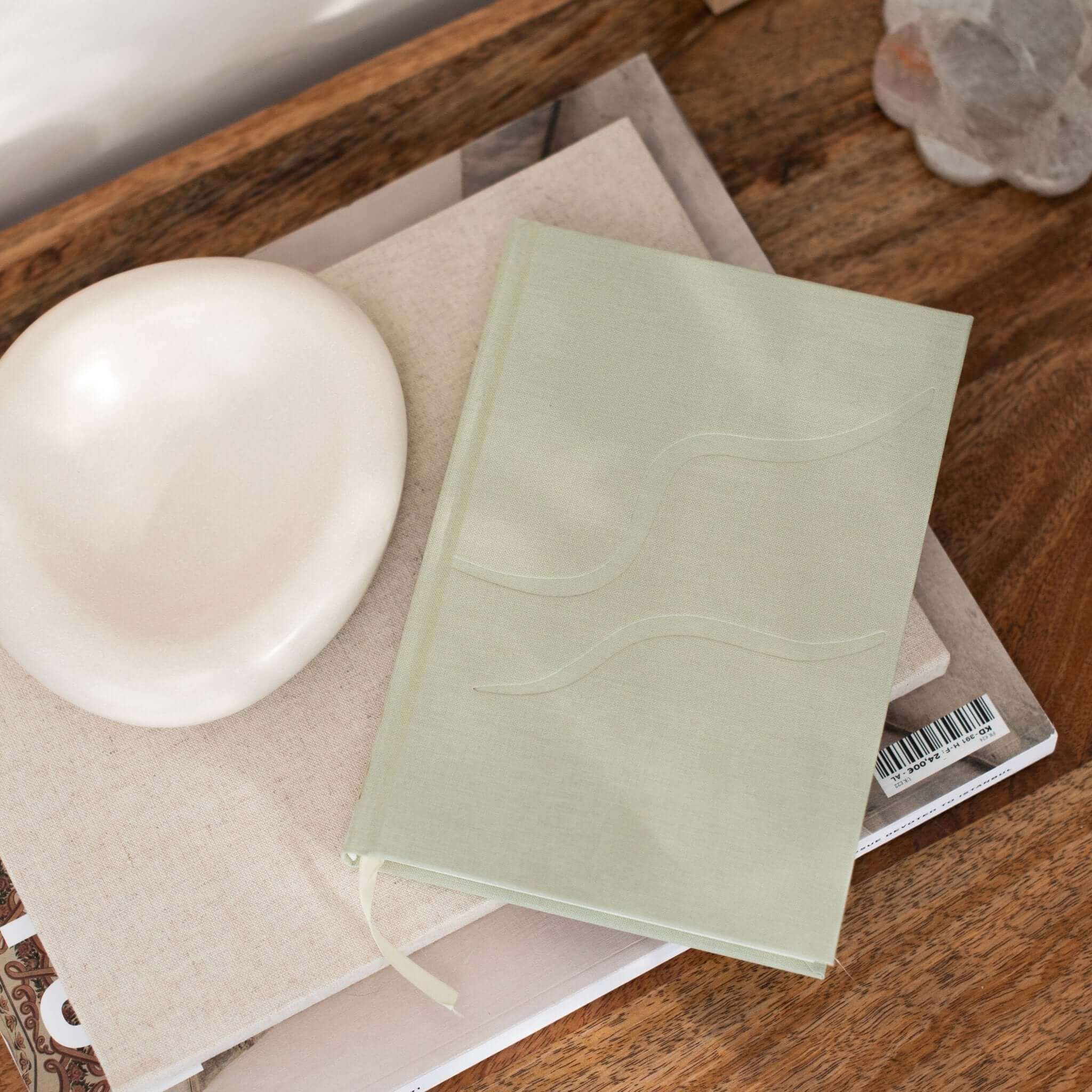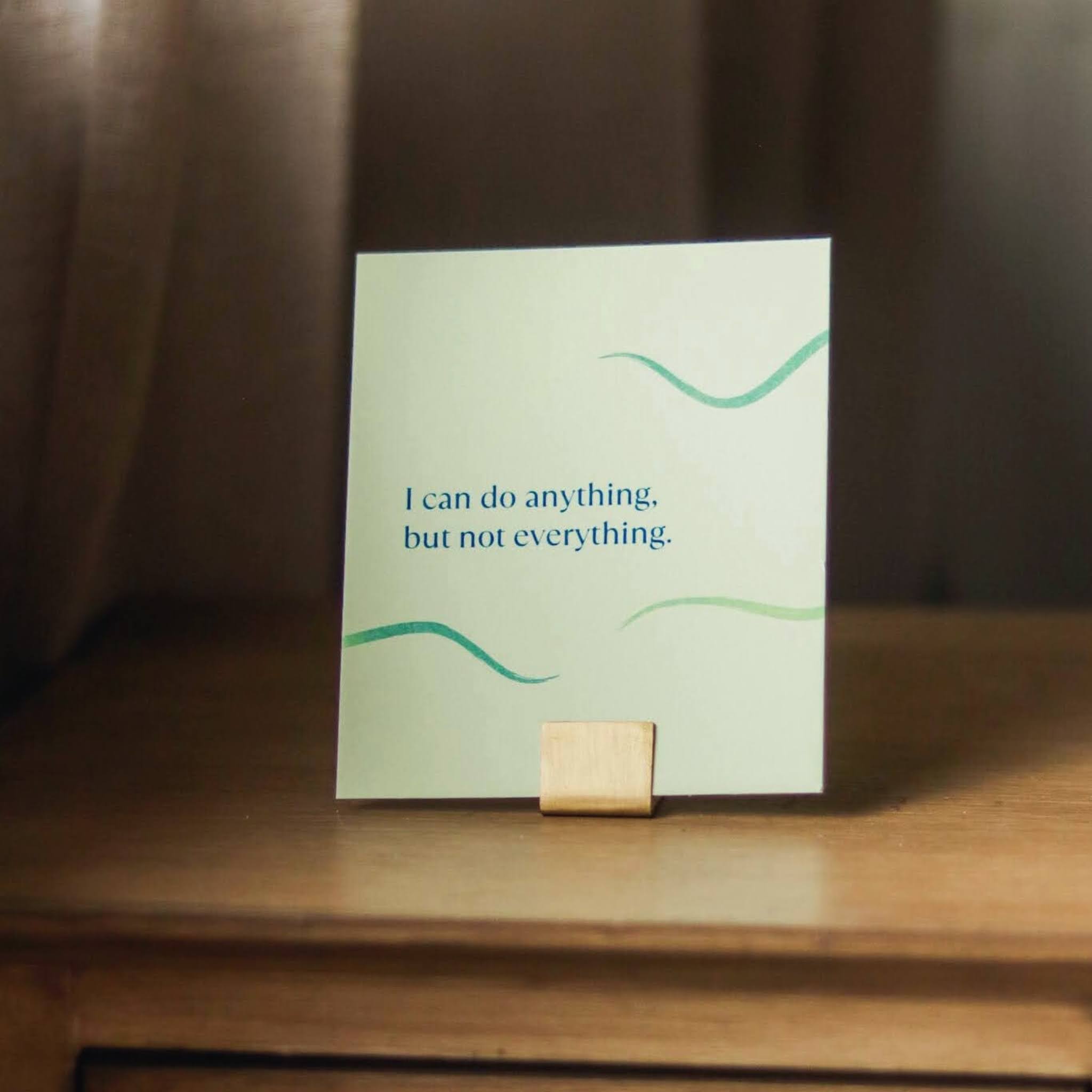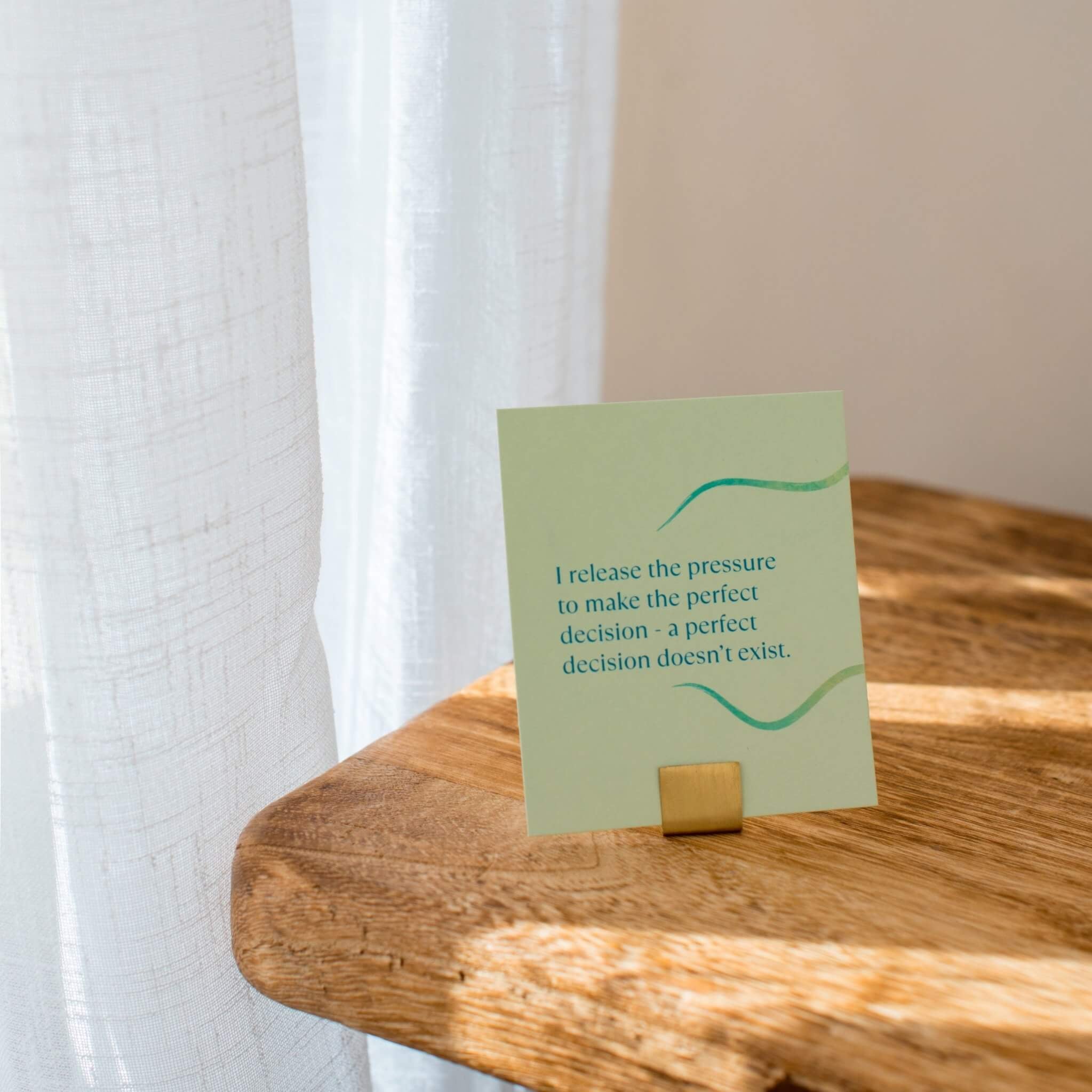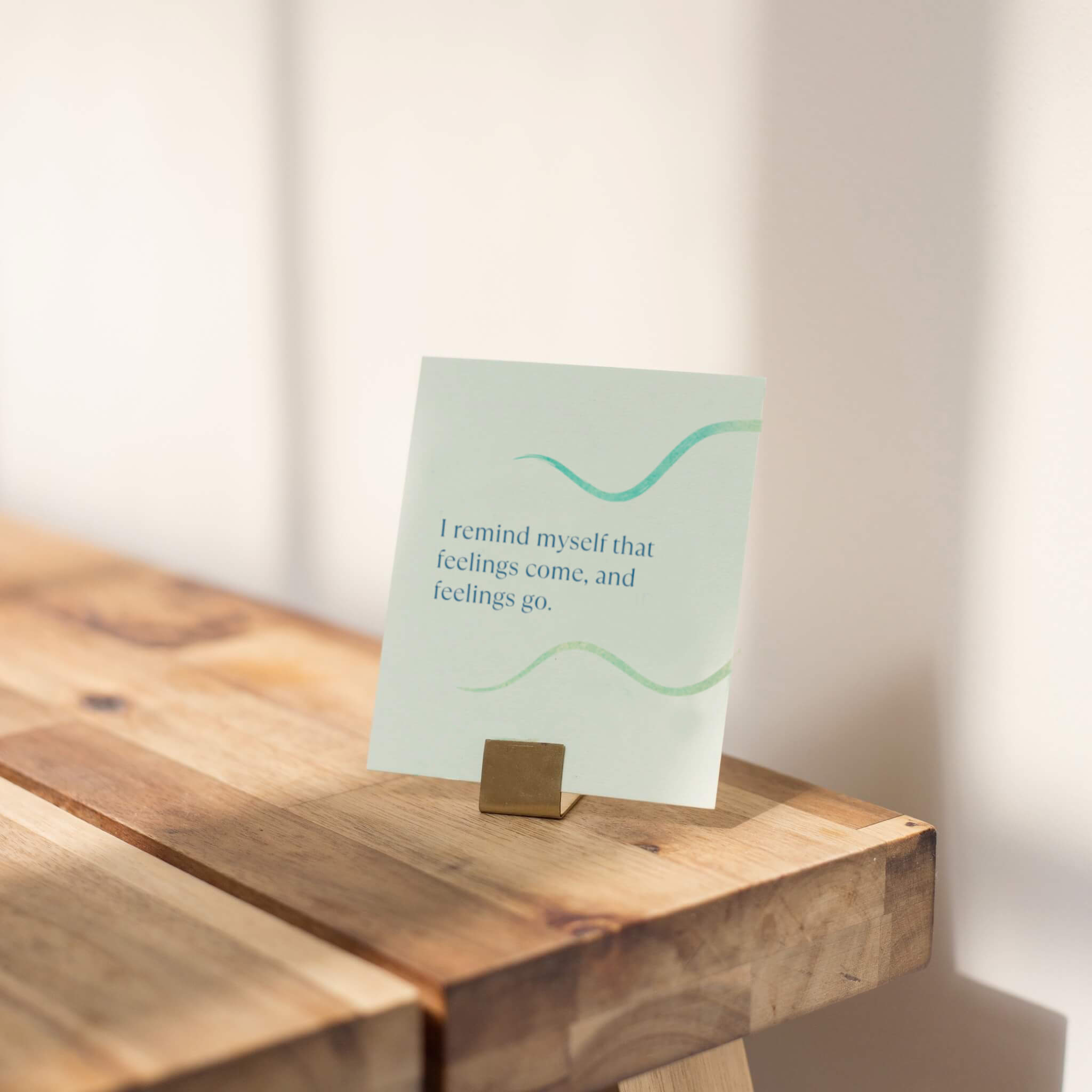Last updated: October 15, 2025 | By Rachel Smith, DipBSoM
Quick Answer
When someone you care about can't sleep, generic "sleep gifts" often miss the mark. Most address relaxation—but if racing thoughts or sleep anxiety is the issue, they need tools that address the real problem.
According to neuroscientist Dr. Olena Santangeli, the most effective gifts target both the anxious thoughts and the pressure around sleep itself.
Our recommendations:
- Sleep Affirmation Cards - CBT-I techniques for in-the-moment help (£13.95)
- The Give Yourself Kindness Journal - For processing emotions before bed (£28.95)
- Lavender Eye Pillow - For physical relaxation and nervous system calming
When someone you love can't sleep, you want to help. But scrolling through generic "sleep gift guides" feels wrong—weighted blankets, sleep masks, chamomile tea. These might help some but if they're lying awake with racing thoughts? If bedtime fills them with anxiety? Those gifts can miss the point entirely.
With the backing of sleep expert Dr. Olena Santangeli, PhD (neuroscientist and sleep consultant) I explored tools that help when sleep issues stem from anxiety and racing thoughts.
Here's what to give someone when the problem isn't that they need to relax. It's that they can't turn their mind off.
Why Most Sleep Gifts Miss the Mark (And What Actually Helps)
But when anxiety is keeping someone awake, the issue isn't relaxation. It's their relationship with sleep itself.

Dr. Olena Santangeli, PhD
Neuroscientist & Sleep Expert (BSc, MSc, PhD Med)
Child & Adult Sleep Consultant
What's Really Keeping Them Awake
Understanding what they're struggling with helps you choose gifts that actually help.
Signs it's sleep anxiety :
- Mind races the moment they lie down
- They dread bedtime or feel anxious as evening approaches
- They judge themselves for being awake ("Why can't I just sleep?")
- Thoughts spin about tomorrow's tasks or replay the day's events
- They feel pressure to sleep "perfectly"
- Even when exhausted, they can't seem to fall asleep
If this sounds like them, they don't need another sleep mask. They need tools that work with their anxious mind.
Evidence-Based Gifts (Recommended by Sleep Experts)
These aren't just products—they're tools based on research and endorsed by sleep experts and therapists.
Sleep Affirmation Cards
Why this gift works:
When someone's lying awake at 2am with racing thoughts, they need something they can actually do in that moment. Not a reminder to "just relax" (impossible when anxious). Actual techniques.
These cards provide specific approaches from cognitive behavioral therapy for insomnia (CBT-I)—the gold-standard treatment for sleep anxiety. They're designed to keep by the bedside and use when thoughts won't stop.
- Practical techniques, not just mantras - Includes breath work instructions (breathe in for 5, out for 7), thought management strategies, and visualisation exercises
- Addresses the pressure around sleep - "I release any pressure to have a perfect night's sleep" and "It's okay that on some days my sleep is better than on others. It is normal"
- Gives racing thoughts somewhere to go - "I can imagine moving racing thoughts from me to the bedside table. They can wait until the morning"
- Reduces self-judgment - "In the quiet of the night, I can speak to myself with kindness, the same kindness I would give to a friend"
- Normalises struggle - "It's normal that on some days it will take me longer to get to sleep than on others"

Dr. Olena Santangeli, PhD
Neuroscientist & Sleep Expert
"The sleep cards are fantastic. I particularly like how they foster positive thinking, relaxation, and self-compassion, which are key in managing sleep and stress. They wonderfully echo the principles of cognitive-behavioral therapy for insomnia and could be used as an additional tool in conquering anxiety surrounding insomnia. These cards also promote mindfulness and self-care, offering hope and support to those struggling with sleep amid life's chaos, making them a very good tool for better rest."
Who this gift is for: Someone who lies awake with racing thoughts, judges themselves for not sleeping, feels pressure around bedtime, or has tried "everything" but still struggles.
The Give Yourself Kindness Journal
Why this gift works:
Often, racing thoughts at night are the brain's way of trying to process emotions from the day. If you process them before lying down, you're less likely to process them at 2am.
Dr. Santangeli highlights that evening journaling can "facilitate a more profound processing of emotions, aiding in stress reduction and anxiety management." A study in Psychology & Health found that expressive writing before bed helps with sleep difficulties specifically because it creates "mental space for relaxation."
- 90 varied prompts - Never repetitive; every day is different so it stays engaging
- Designed for emotional processing, not task lists - Helps you acknowledge how you felt today, which is what prevents rumination at night
- Self-compassion integrated throughout - Reduces the pressure and self-judgment that fuel sleep anxiety
- Undated format - No guilt if they miss days when sleep is really difficult; they can return to it anytime
- Takes 5-10 minutes - Not overwhelming when already tired
- Validates all emotions - No toxic positivity; explicitly recognizes that difficult emotions are normal and deserve attention

Dr. Chris Germer, PhD
Clinical Psychologist, Harvard Medical School
Co-developer of Mindful Self-Compassion program (taught to 250,000+ people worldwide)
"A warm invitation to make friends with your emotions and yourself!"

Professor Willem Kuyken, PhD, DClinPsy
Ritblat Professor of Mindfulness and Psychological Science, University of Oxford
Top 1% of most cited scientists worldwide
"Rachel has curated the experience to make the writing intrinsically rewarding and the journal something to treasure. Writing can be creative, beautiful, resourcing, but it can also invoke an inner critic, rumination and procrastination. Rachel has curated the experience to make the writing intrinsically rewarding."
Who this gift is for: Someone whose stress or emotions keep them awake, who needs to process the day before bed, or who benefits from structure and guidance in their evening routine.
Lavender Eye Pillow
Why this gift works:
While the cards and journal address the mental and emotional aspects of sleep anxiety, physical relaxation matters too. This eye pillow works on multiple levels:
- Gentle weight soothes the nervous system - The light pressure signals safety to your body
- Blocks out light completely - Darkness is essential for melatonin production
- Natural lavender scent - Research shows lavender has genuine calming properties
- Eases facial tension - Many people hold stress in their face and eyes without realizing it
- Creates a bedtime ritual - The act of placing it signals to your brain: "It's time to rest now"
Best combined with: Sleep cards or journal—this addresses the physical while those address the mental/emotional. Together they create comprehensive support.
Who this gift is for: Anyone struggling with sleep, especially effective when combined with other tools. Also perfect for meditation or daytime rest.
Complete Sleep Support Collection
Why a combination works better:
Sleep anxiety needs support at different points—not just one tool for one moment. Someone struggling with sleep needs:
- Evening processing → Journal (prevents rumination later)
- In-the-moment techniques → Cards (when lying awake at 2am)
- Physical relaxation → Eye pillow (nervous system calming)
Different tools for different needs. Together, they address the full picture.
Best for: Someone really struggling with sleep, significant occasions (birthdays, holidays), or when you want to provide comprehensive support.
How to Combine Gifts for Maximum Support
One tool is helpful. Multiple tools create a system of support.
Strategic pairing based on their specific struggle:
If racing thoughts are the main issue:
Sleep Cards (immediate techniques) + Eye Pillow (physical calming)
Why: Cards address the thoughts, eye pillow helps the body relax
If stress and emotions are keeping them awake:
Journal (evening processing) + Sleep Cards (nighttime support)
Why: Journal prevents rumination by processing before bed, cards provide backup if thoughts still appear
For comprehensive support:
All three (Journal + Cards + Eye Pillow)
Why: Addresses mental, emotional, and physical aspects of sleep anxiety
Other Evidence-Based Sleep Gifts
If you're looking beyond our tools (or want to combine them with something else), here are options backed by research:
Books on Sleep and Anxiety
- "Say Good Night to Insomnia" by Dr. Gregg Jacobs - The book version of the CBT-I program used in clinical settings
- "Overcoming Insomnia" by Colin Espie - CBT-I based approach from a sleep researcher
Tools for Nervous System Regulation
- Weighted blanket - The gentle pressure activates the parasympathetic nervous system (your body's calming mode). Choose 10% of their body weight.
- White noise machine - Consistent sound reduces alertness to random noises that might wake them. Look for one with varied sound options.
Sleep Gifts to Avoid (That Can Make Things Worse)
Some well-meaning gifts can accidentally increase sleep anxiety. Avoid:
- ❌ "Sleep better" tea samplers - Can imply it's a simple fix, increasing pressure when they don't work
- ❌ Sleep trackers - Often INCREASE anxiety about sleep ("I only got 4 hours of deep sleep!")
What to Say When Giving the Gift
The words you use matter as much as the gift itself. Here's how to present it with care:
Try saying:
- "I know you've been struggling with sleep. I found these tools that are recommended by sleep experts specifically for racing thoughts and anxiety—no pressure to use them perfectly. Just here if they help."
- "I read that these techniques help with the actual worry about sleeping, not just relaxation. A neuroscientist recommended them. I thought they might be useful, and I'm always here if you want to talk."
- "I care about you and wanted to give you something that might support you. There's no expectation about how or when you use this—just know I'm here."
- "This isn't about fixing anything. I just want you to have tools that might make things a bit easier. You deserve support."
Avoid saying:
- ❌ "This will fix your sleep!" - Creates pressure and unrealistic expectations
- ❌ "You just need to try harder with these" - Implies they're not trying enough
- ❌ "Everyone uses these and they work great" - Invalidates their unique struggle
- ❌ "I'm worried about your sleep" - While caring, can feel like criticism
The underlying message should always be: "I see you. I understand this is difficult. You're not alone. Here's something that might help, and I'm here regardless."
A Final Note
Watching someone you love struggle with sleep is painful. You want to help. You want to fix it. But sleep anxiety doesn't resolve with a single gift or a quick solution.
What you can do is provide thoughtful, evidence-based tools and consistent support. Show them, through your actions and your presence, that they matter. That their struggle is real and valid. That they're not alone.
The Give Yourself Kindness sleep tools exist because I worked directly with neuroscientist and sleep expert Dr. Olena Santangeli to understand what actually helps when anxiety is keeping people awake. Not just what sounds nice. What works.
These aren't generic "sleep better" products. They're tools based on cognitive behavioral therapy for insomnia (CBT-I) and self-compassion research. Tools that therapists recommend. Tools that address the real problem: the anxious thoughts and pressure around sleep.
Created with input from sleep experts and clinical psychologists. Endorsed by Dr. Olena Santangeli. Used by people who've tried everything else.
Not because they're perfect. Because they genuinely help.
Pair them with your love, patience, and understanding—and you've given something truly meaningful.
Related reading:
About this page: This content was created by Rachel Smith (DipBSoM), a qualified meditation teacher and creator of Give Yourself Kindness. After experiencing sleep difficulties, she worked with neuroscientist and sleep expert Dr. Olena Santangeli (PhD) to curate evidence-based tools now used by therapists with their clients. The sleep cards and journal recommendations are based on research in CBT-I and self-compassion, and endorsed by clinical professionals.
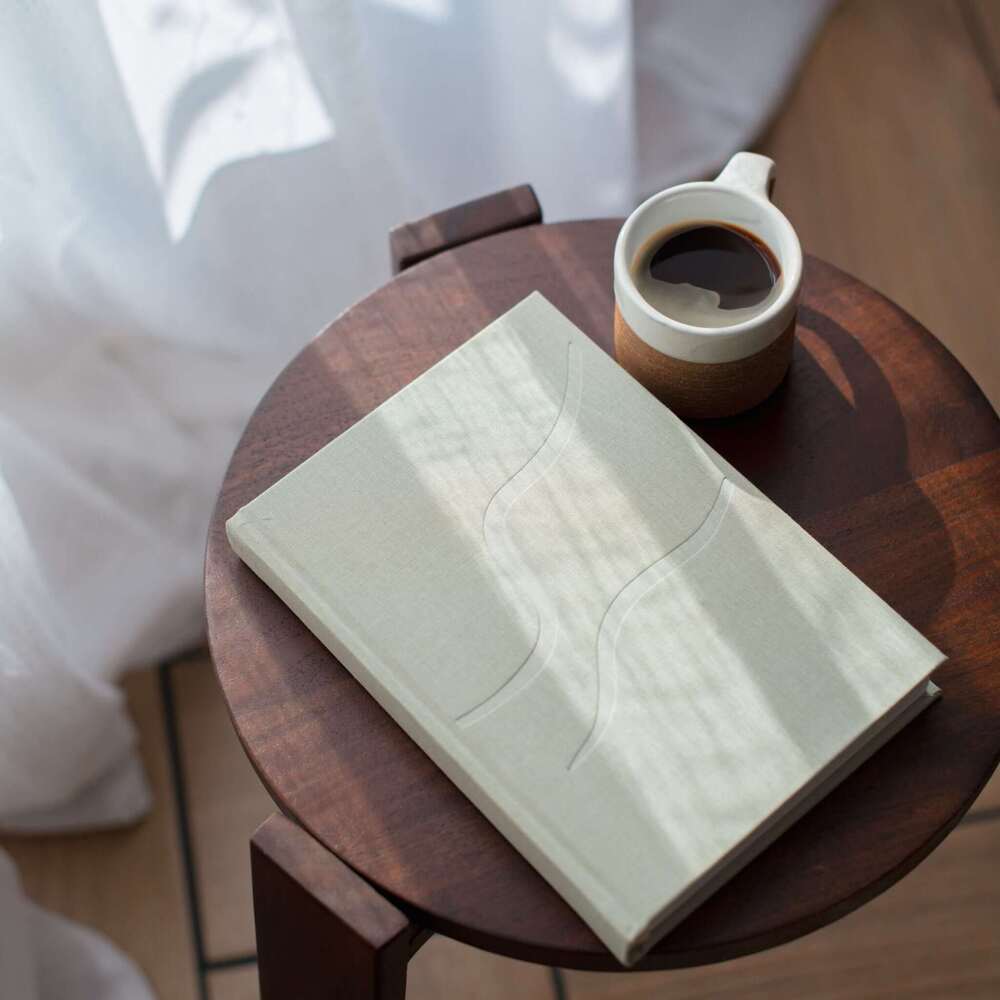
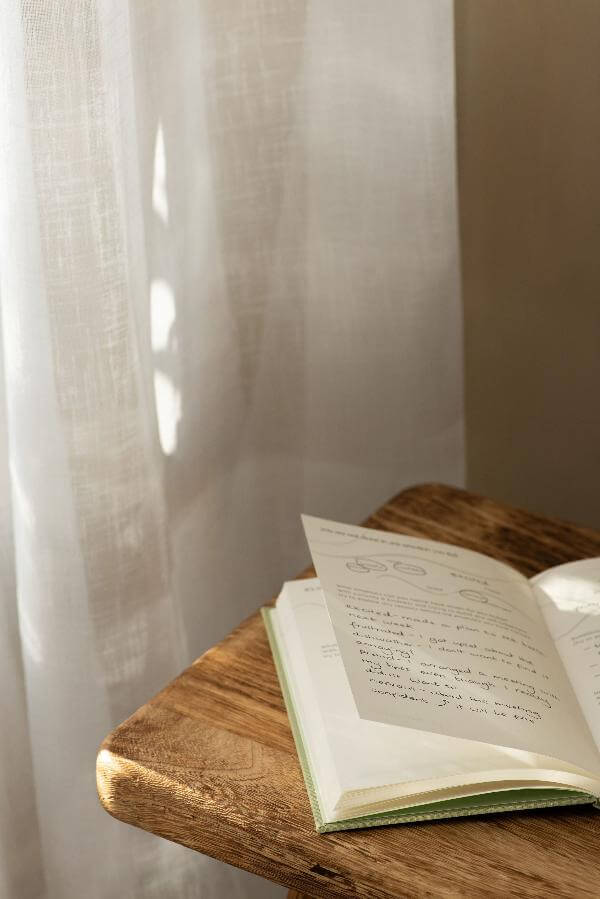
“By far my favourite guided journal that I’ve used!”
There's a lot of journals out there. Most of which include tools that can be repetitive, boring or unhelpful. Give Yourself Kindness is about creating something new.

